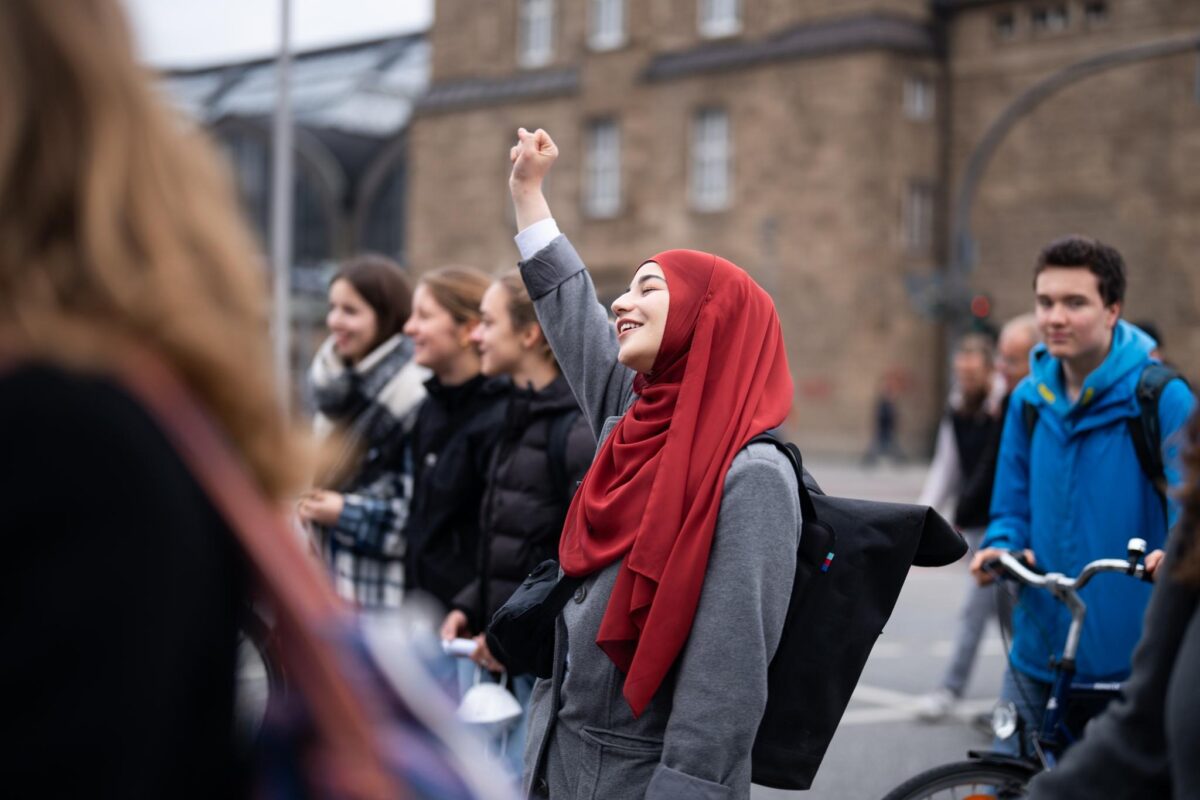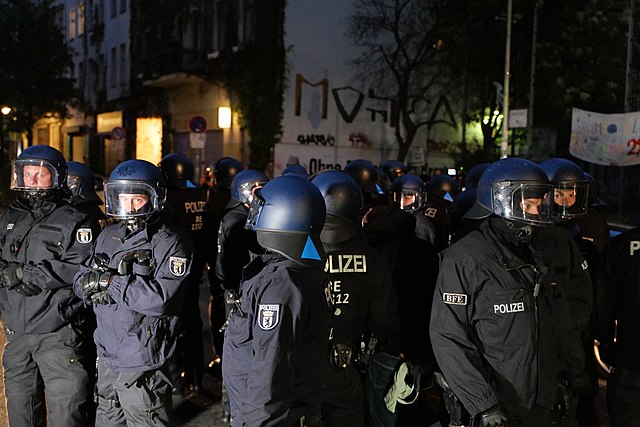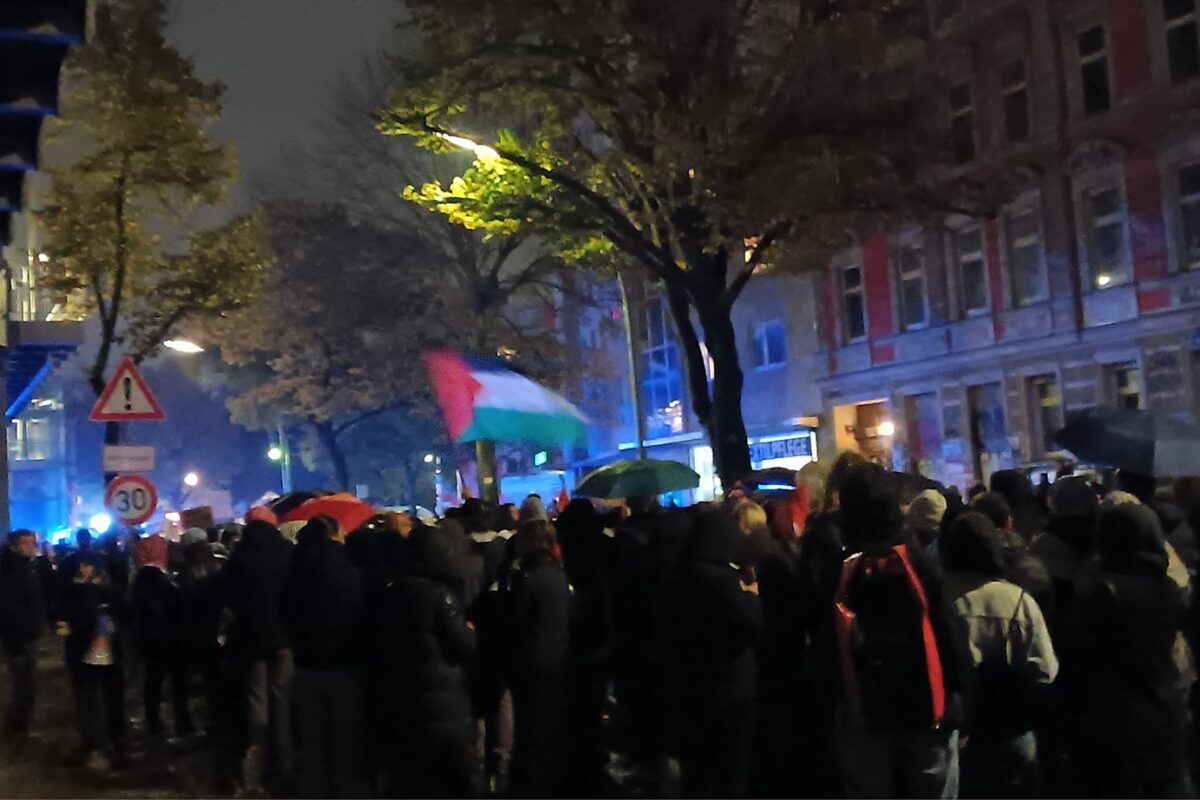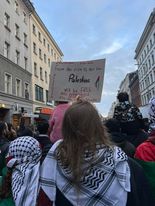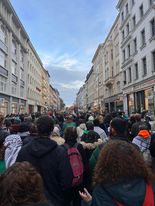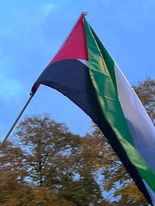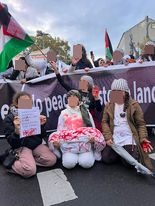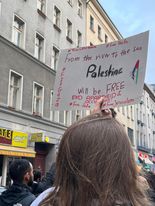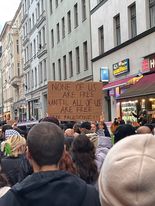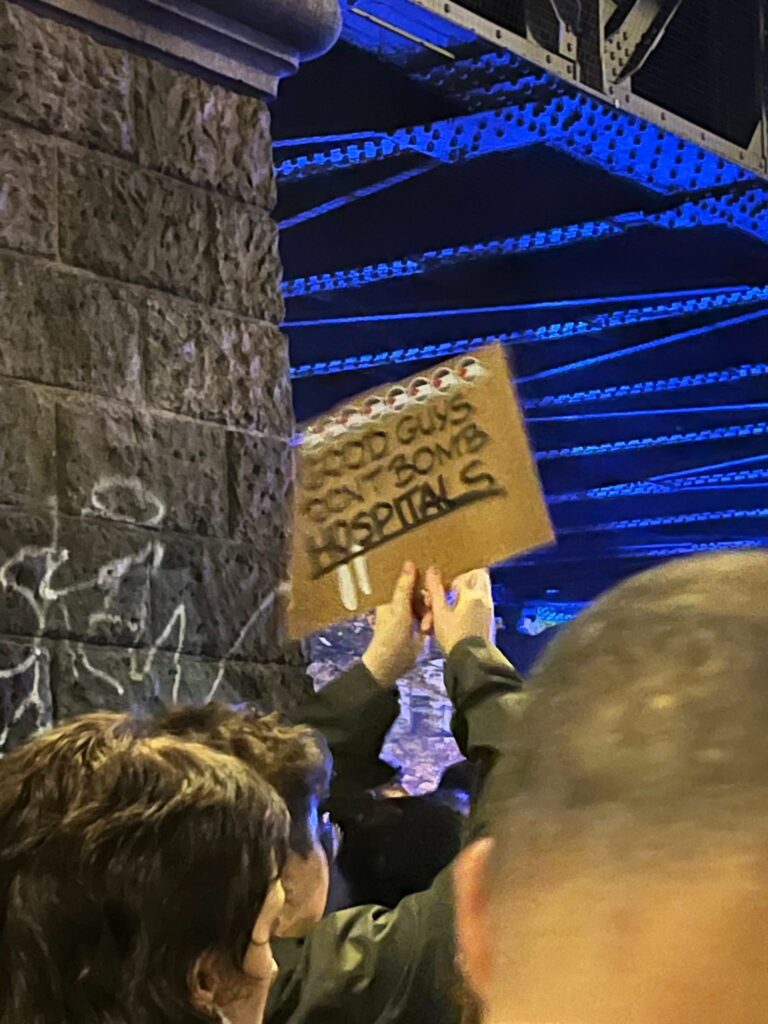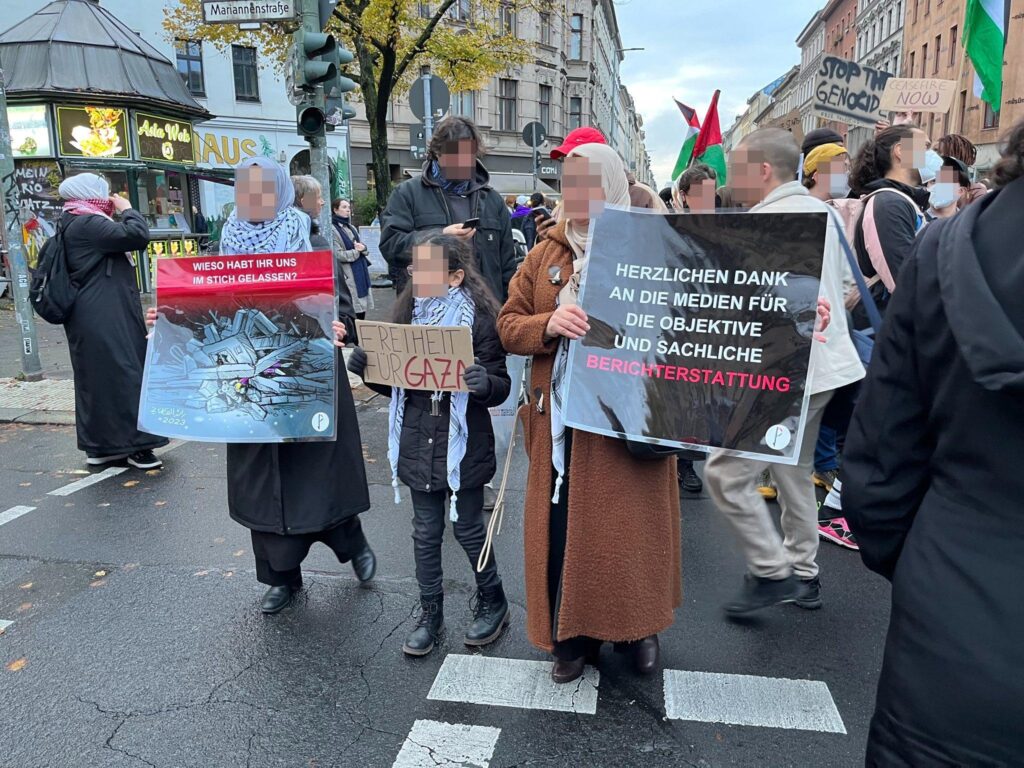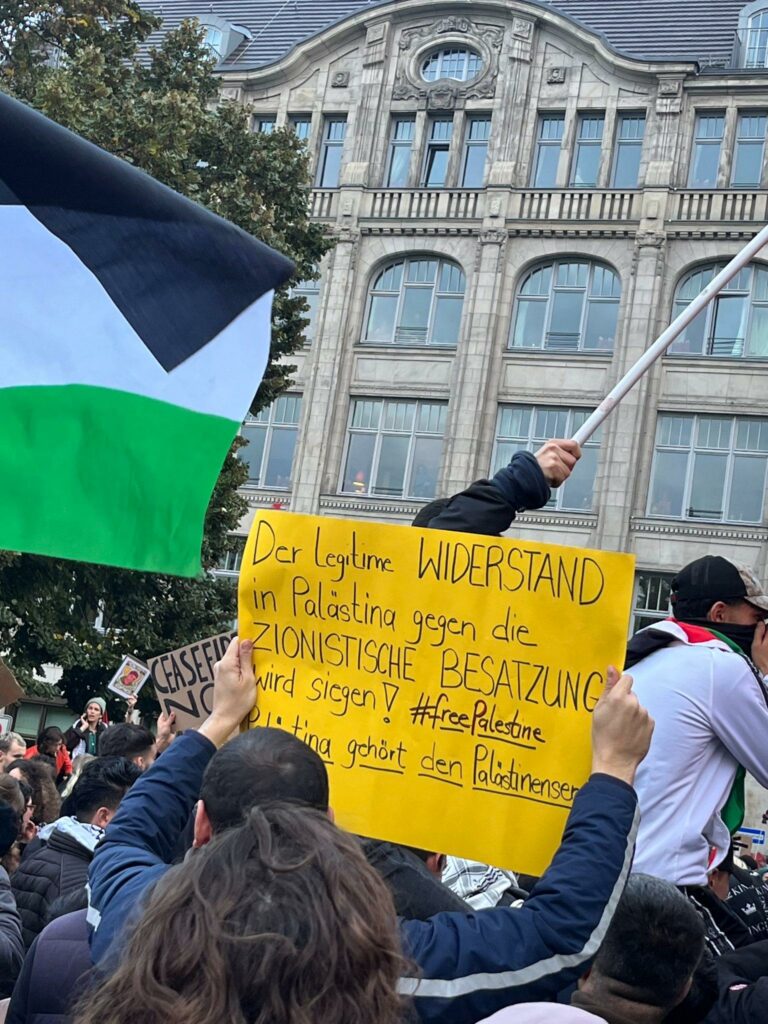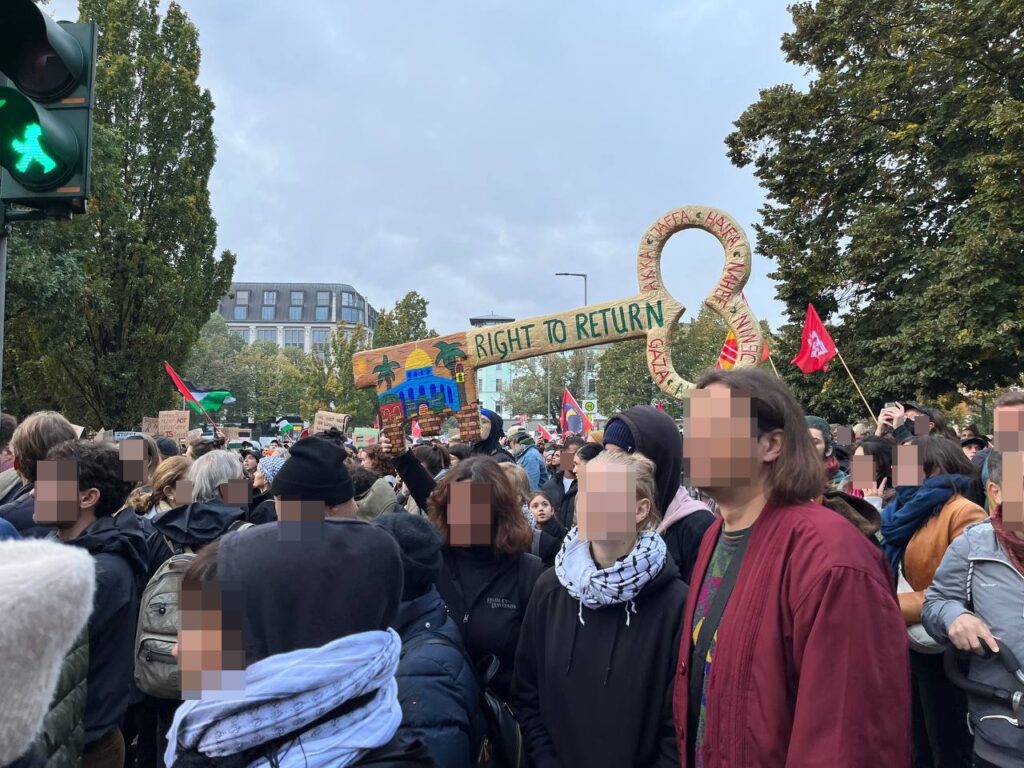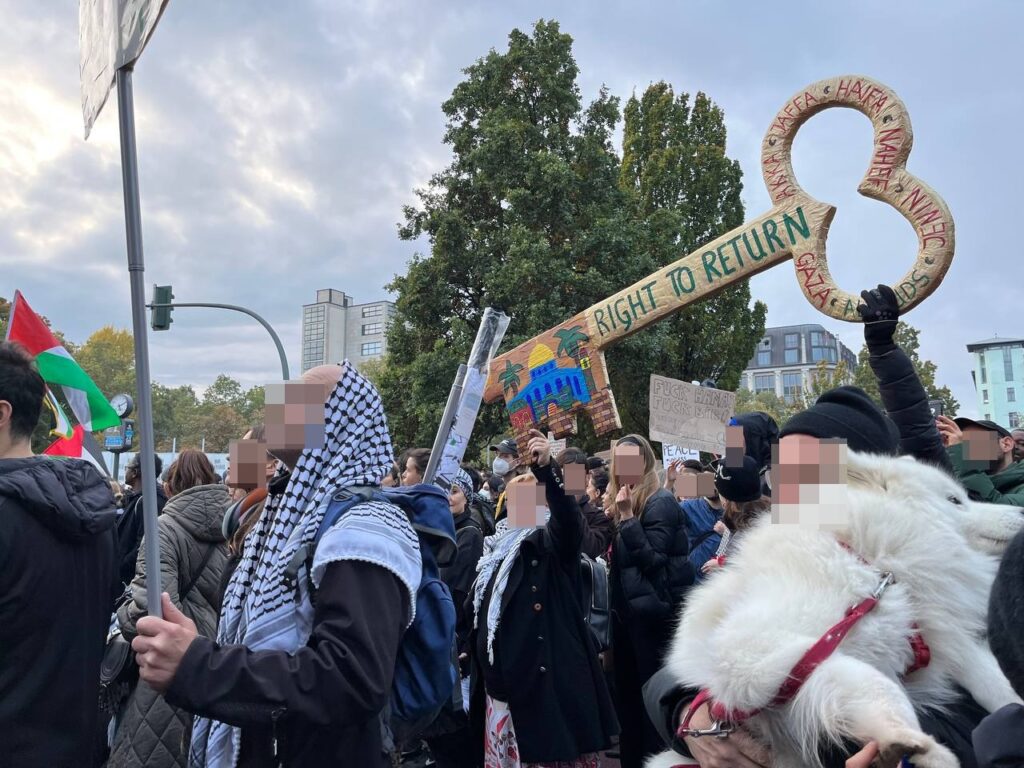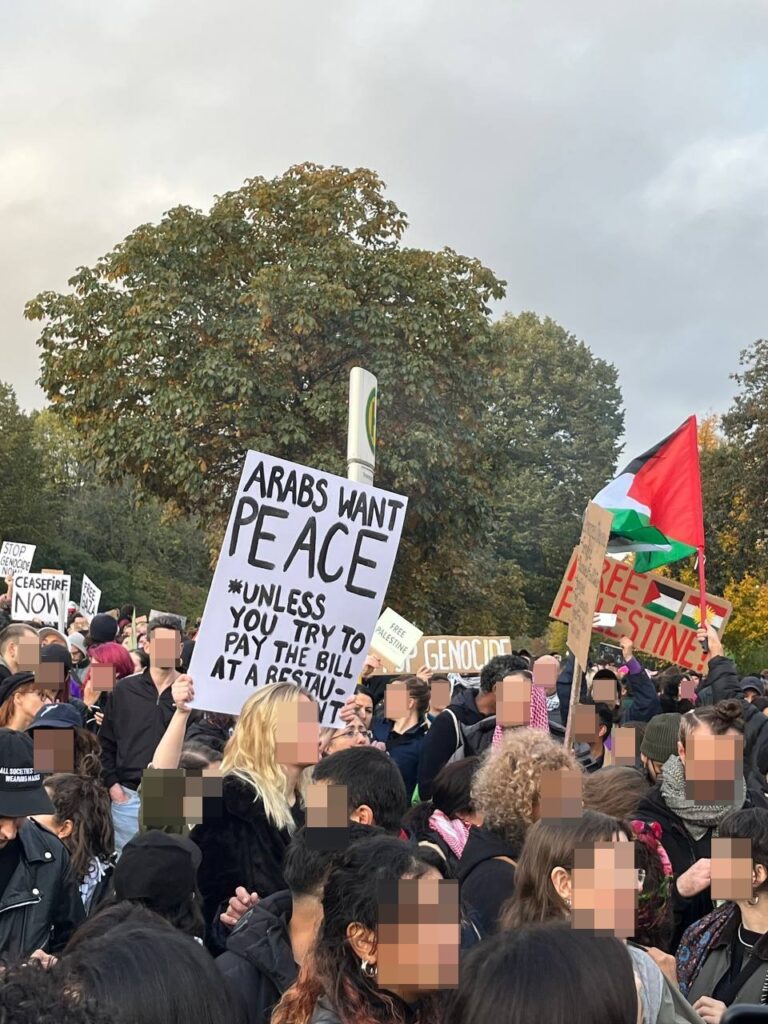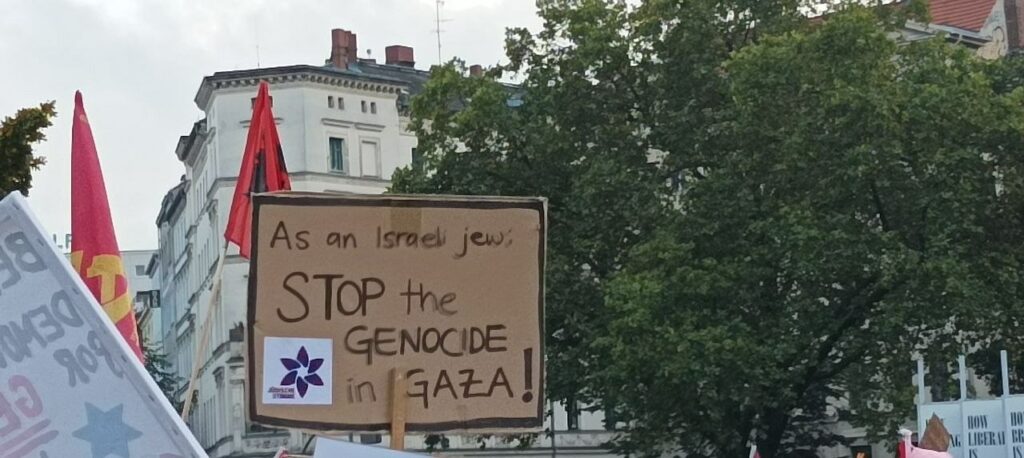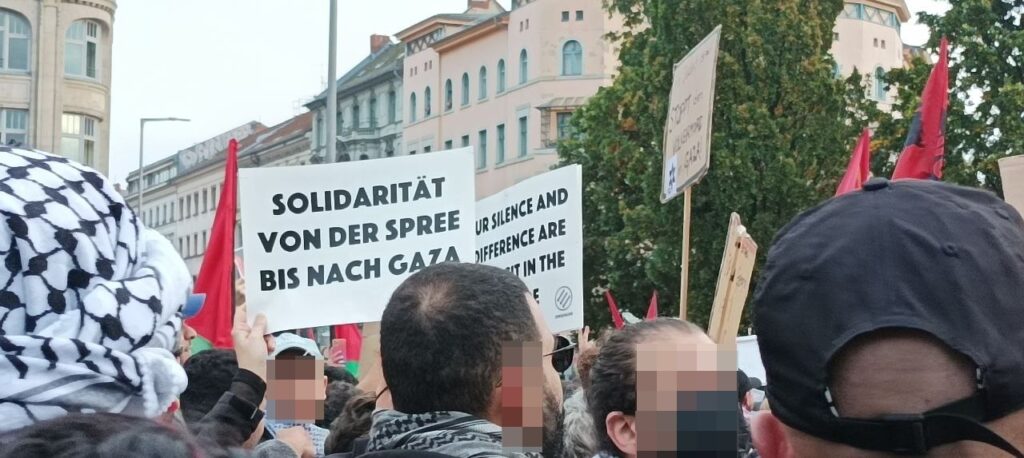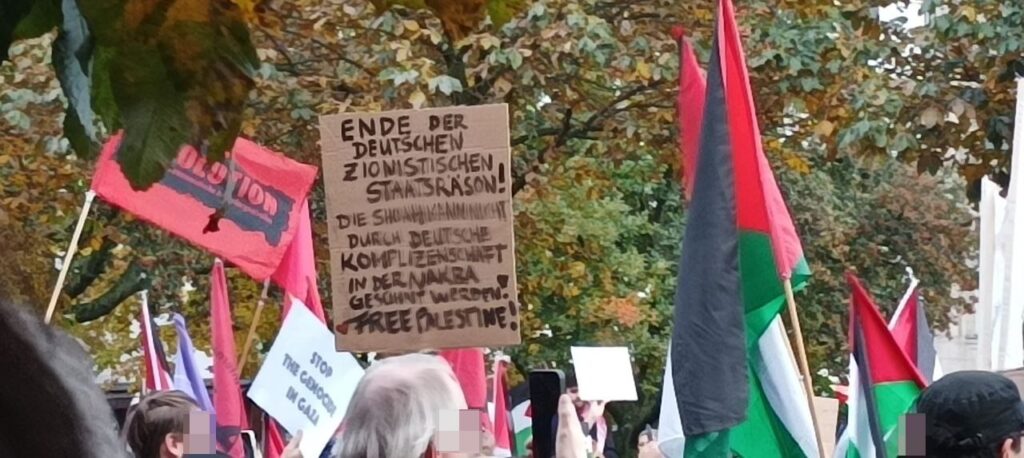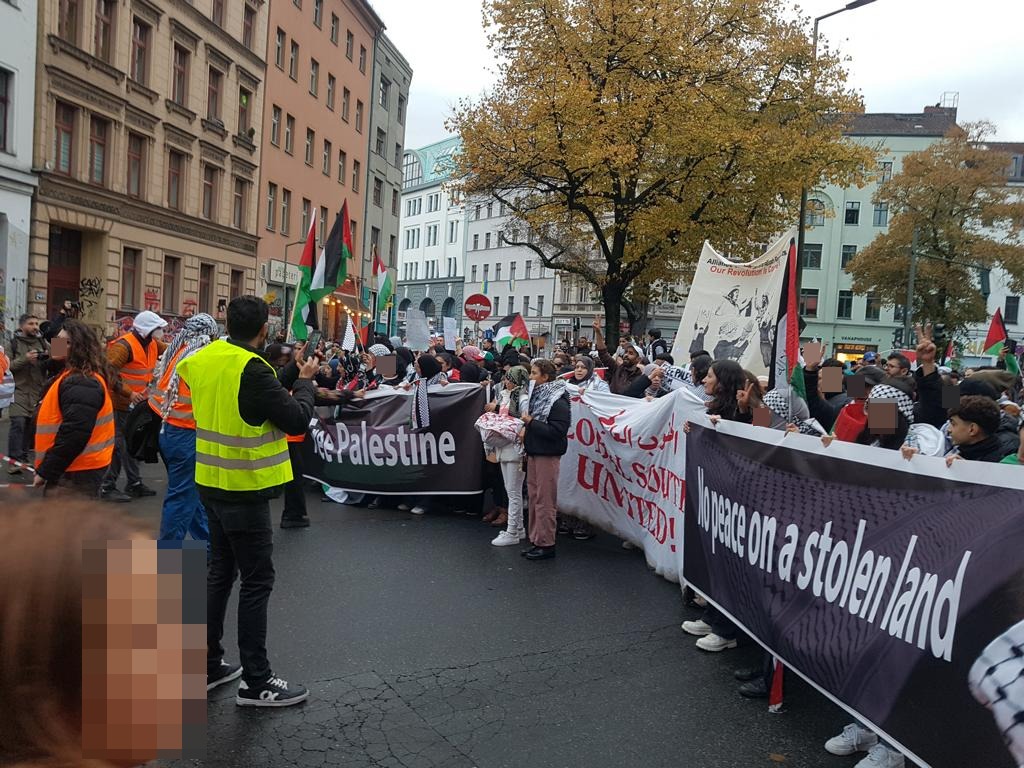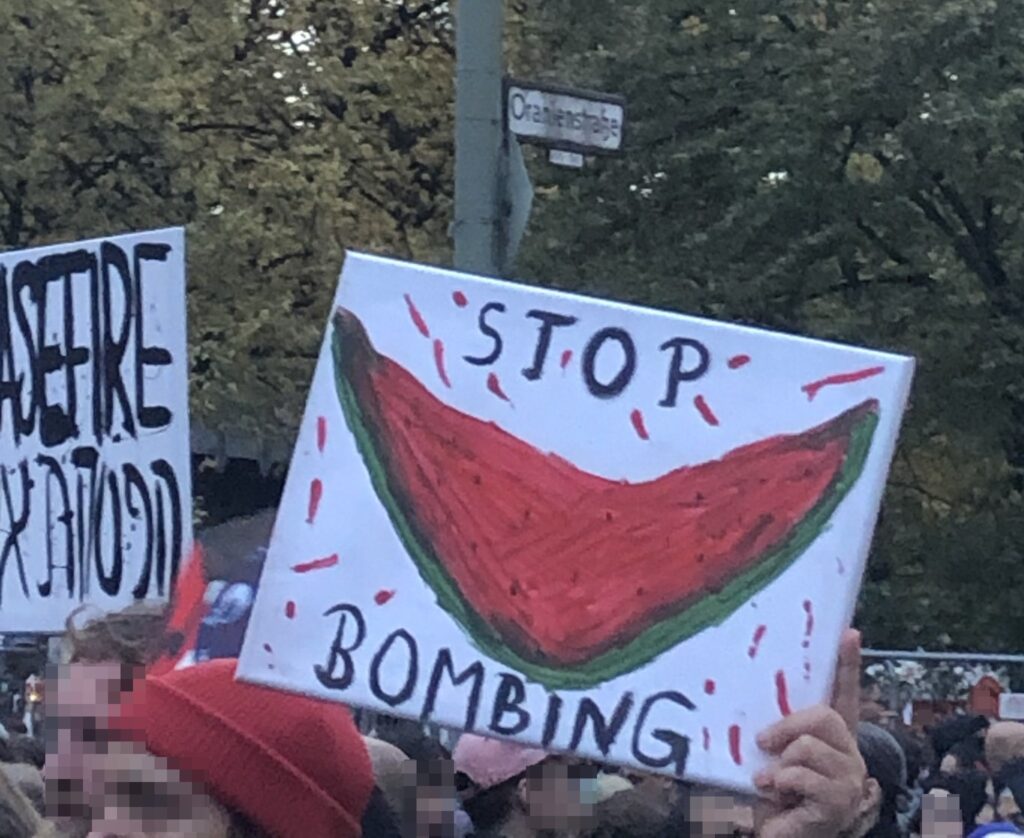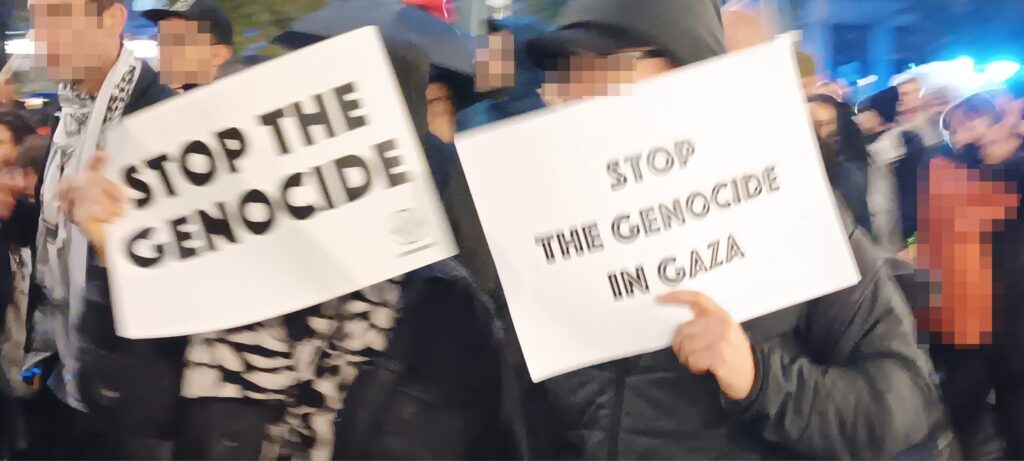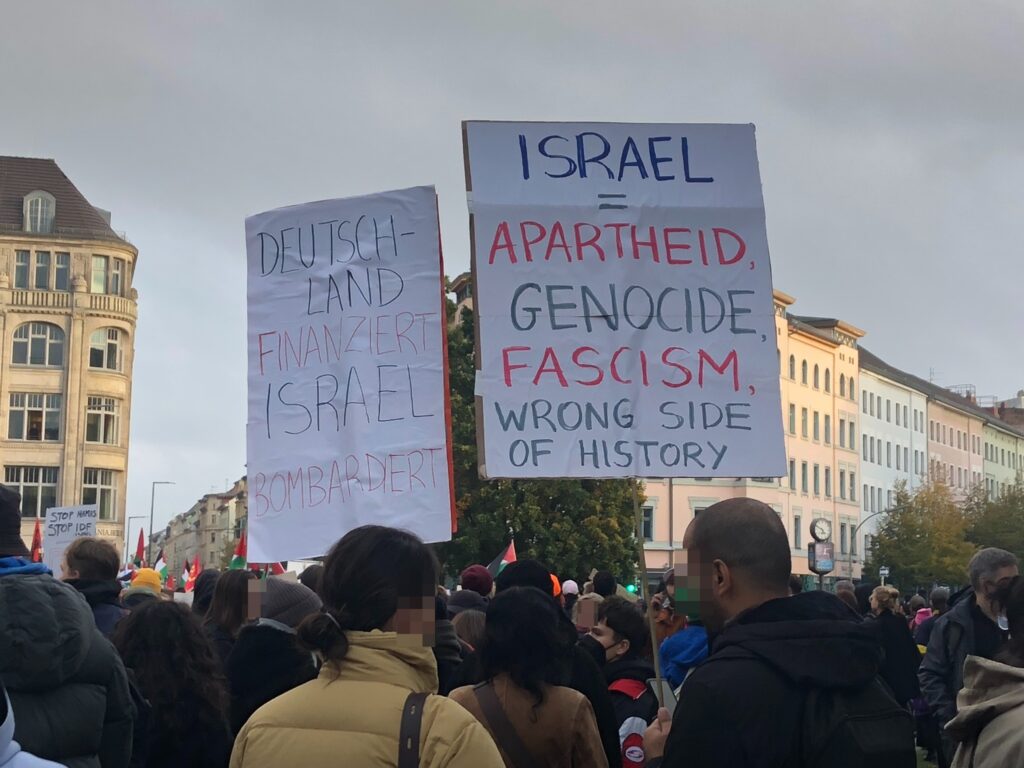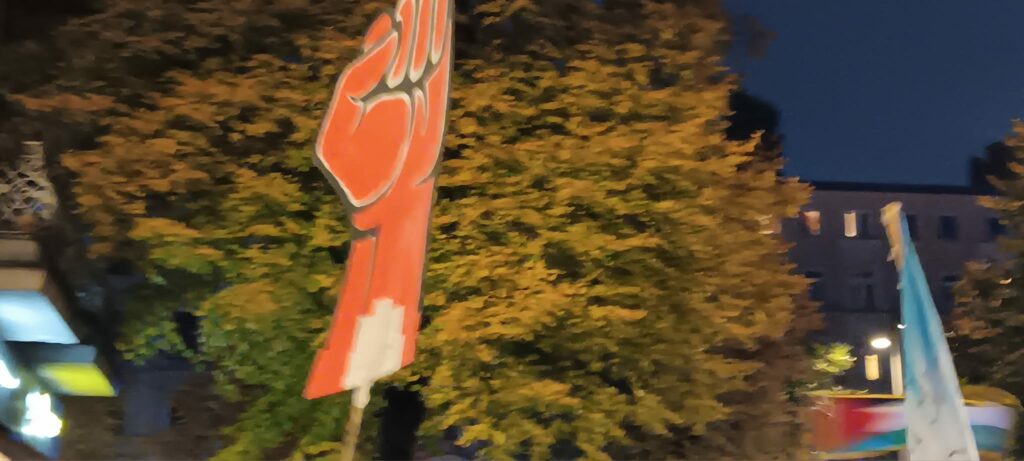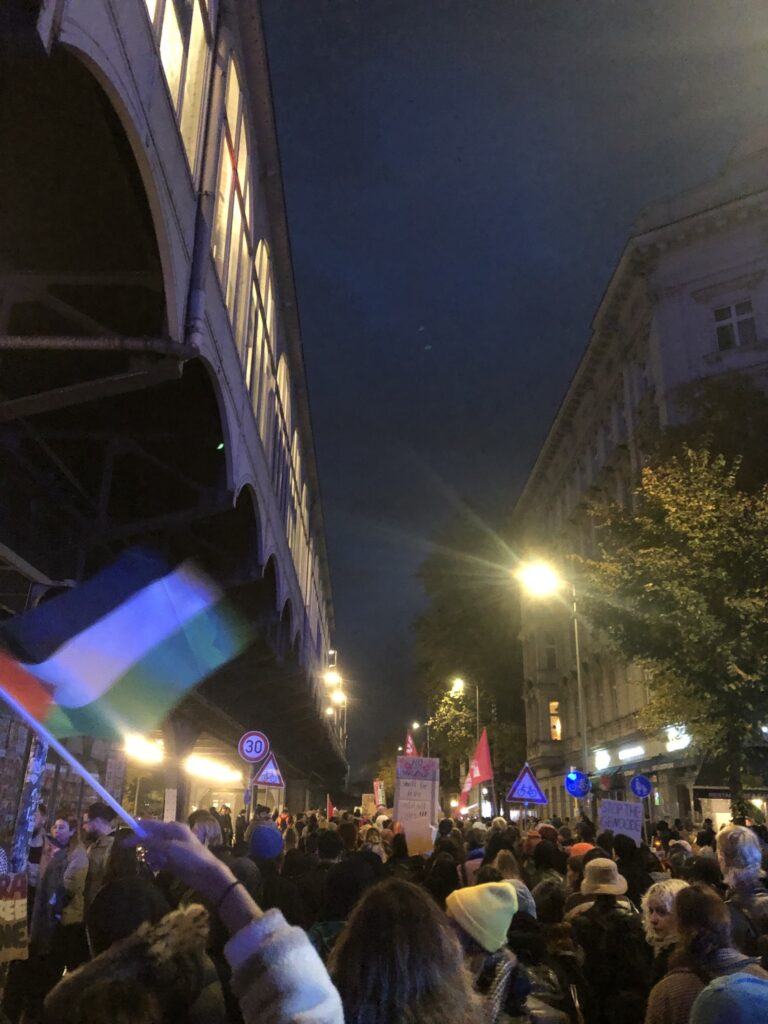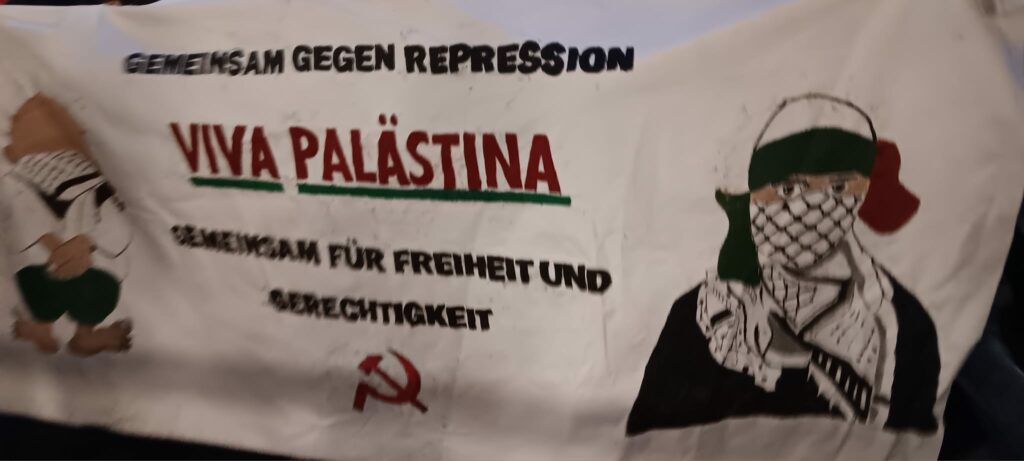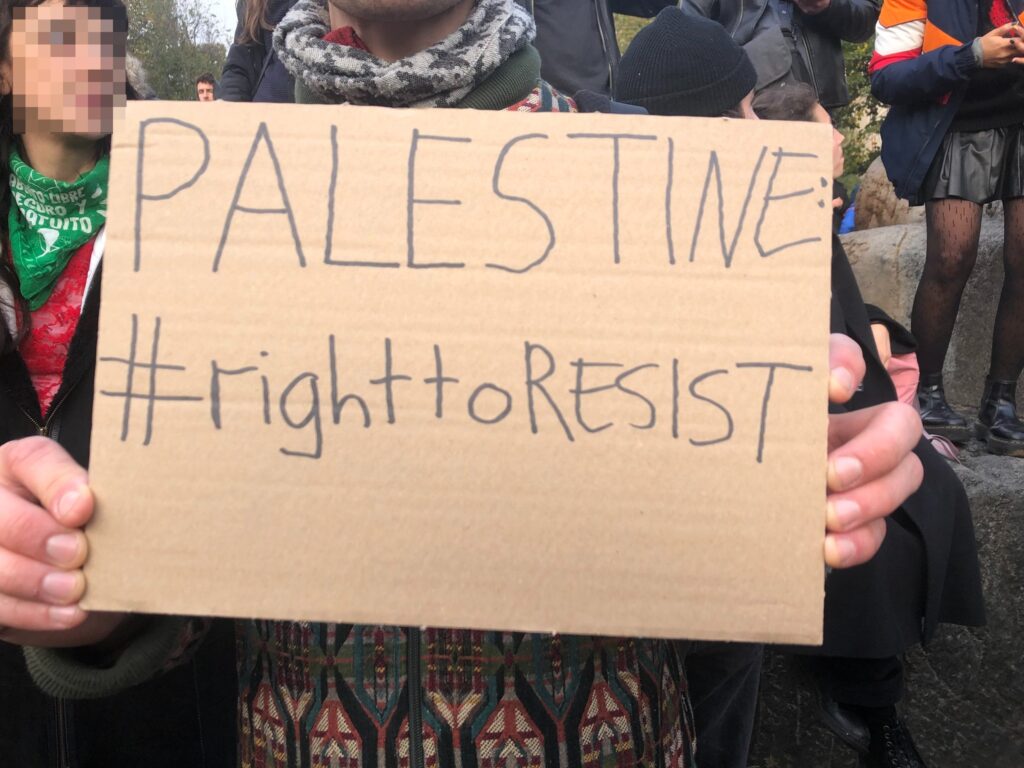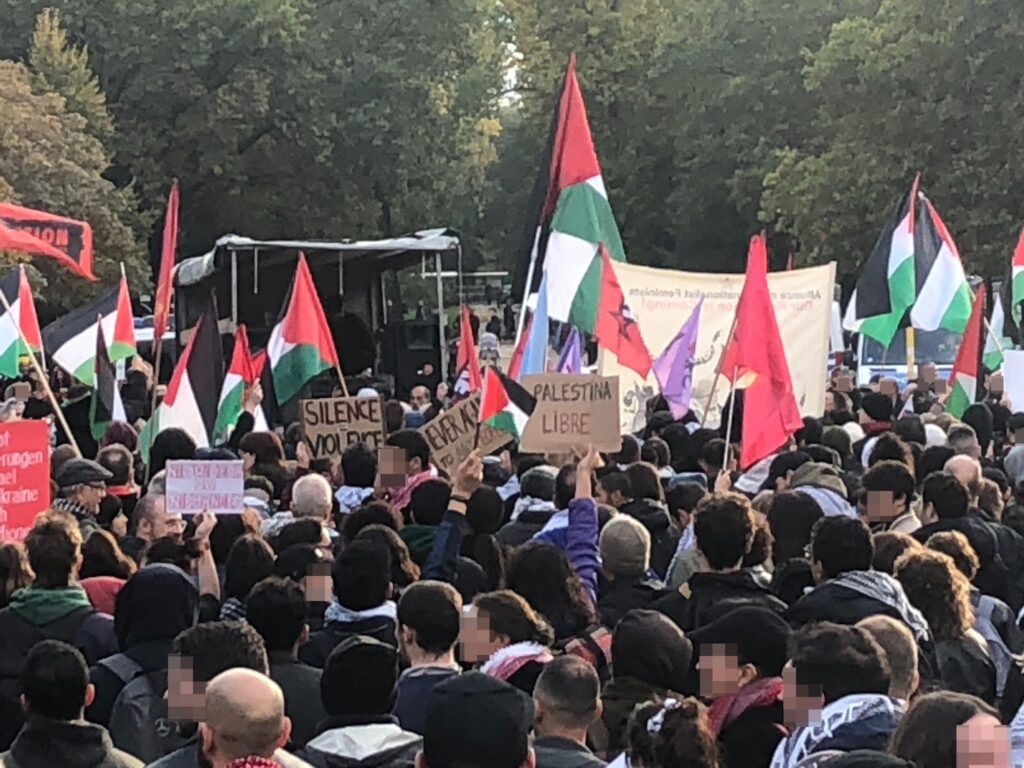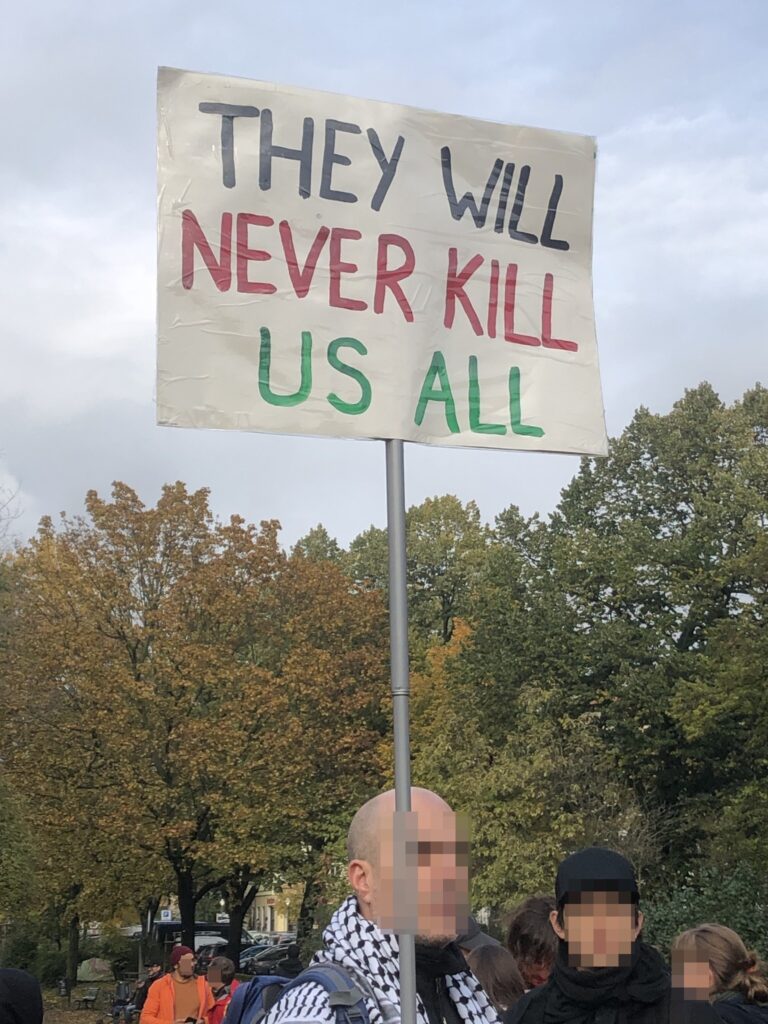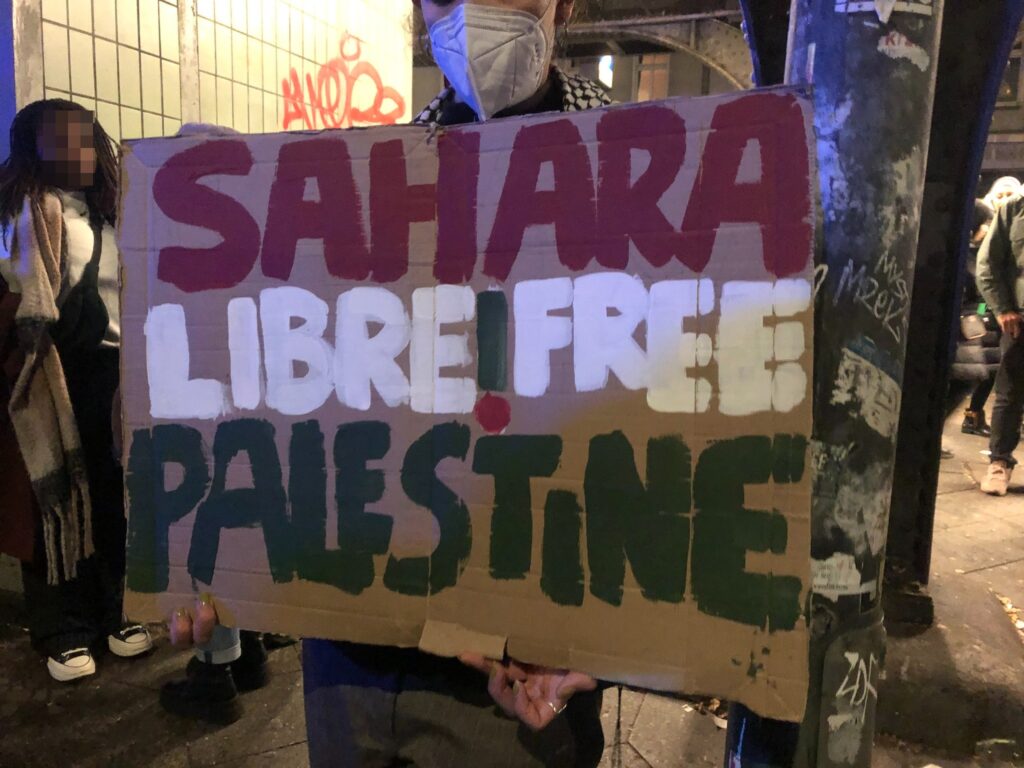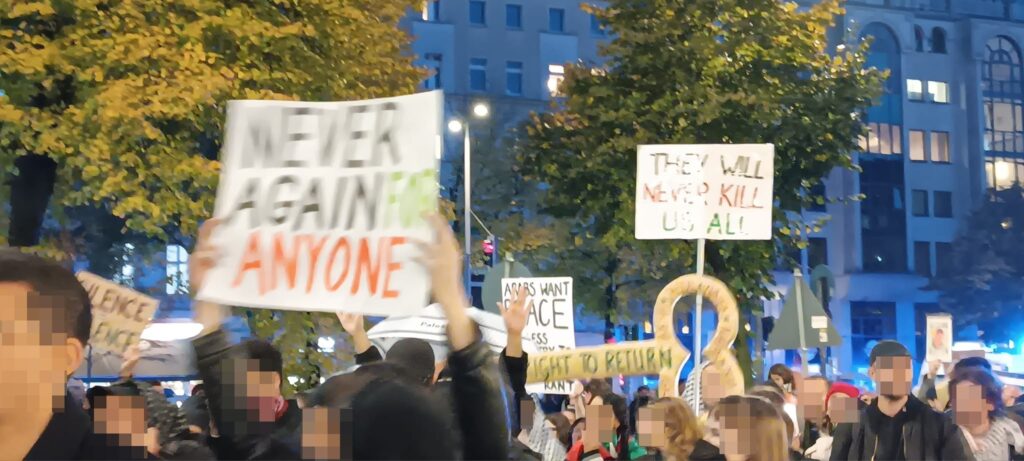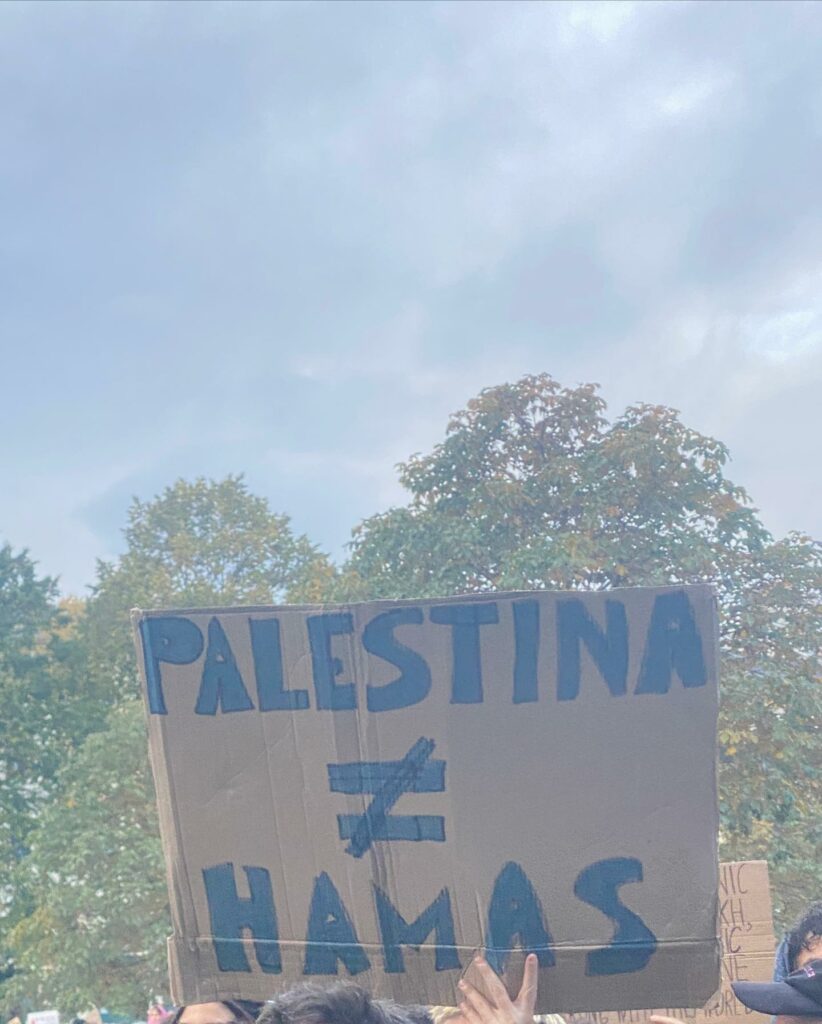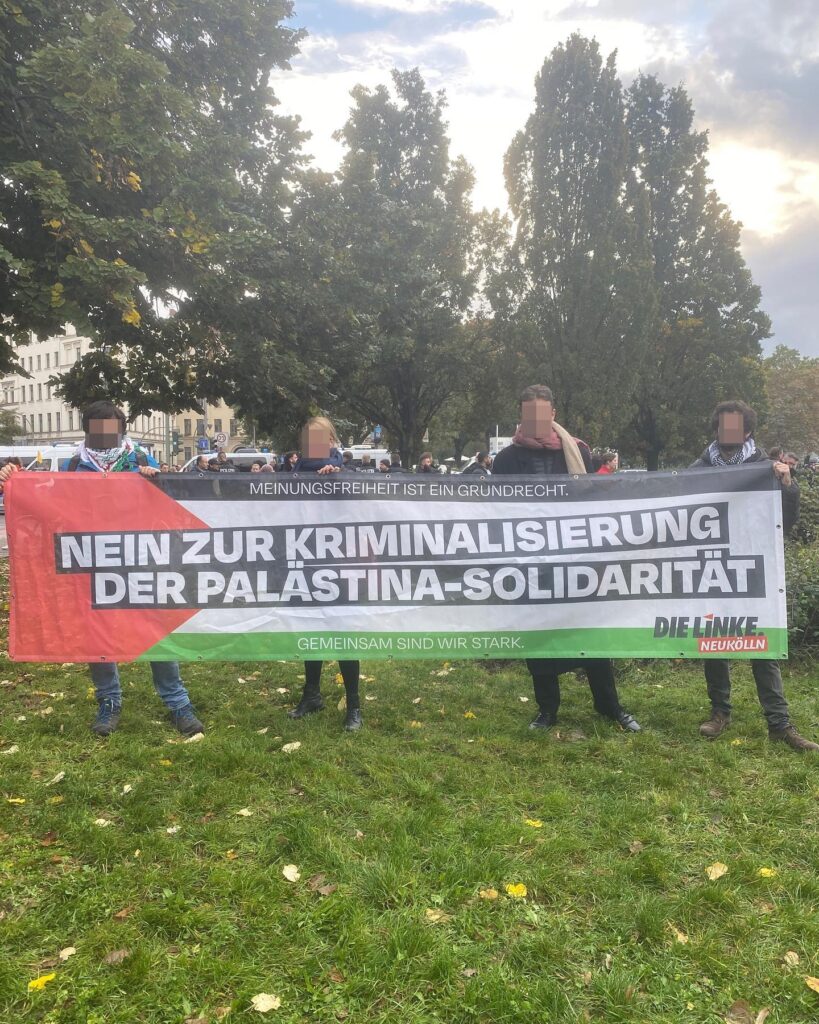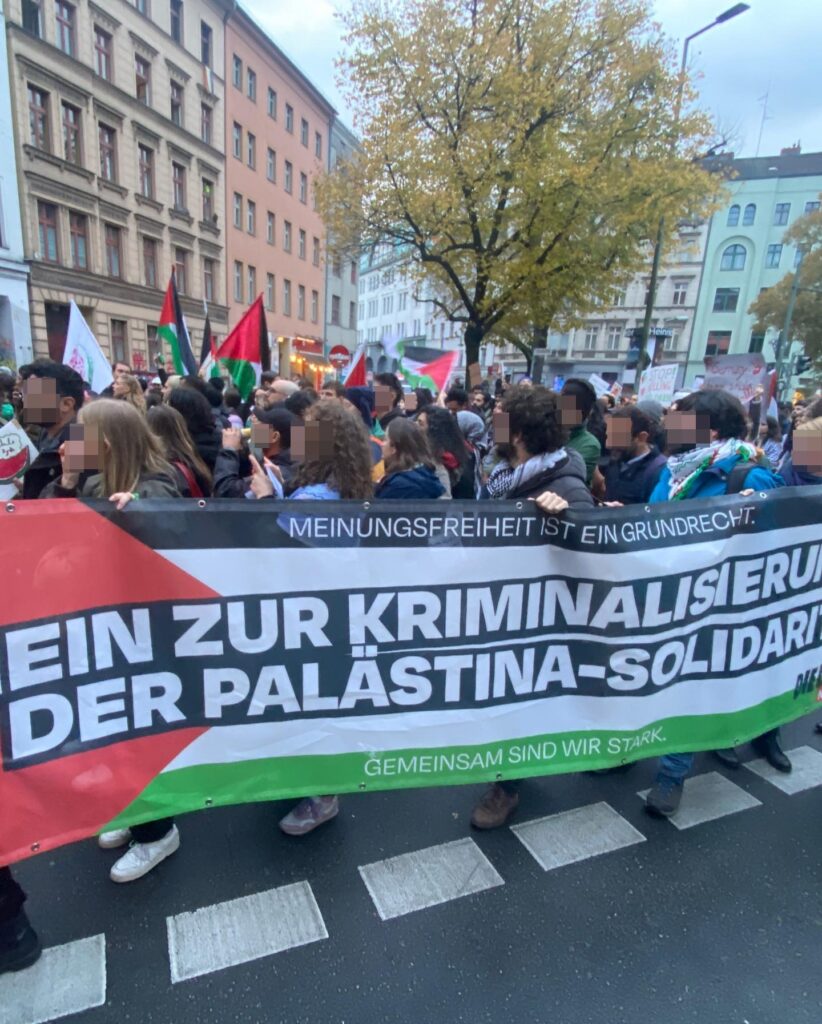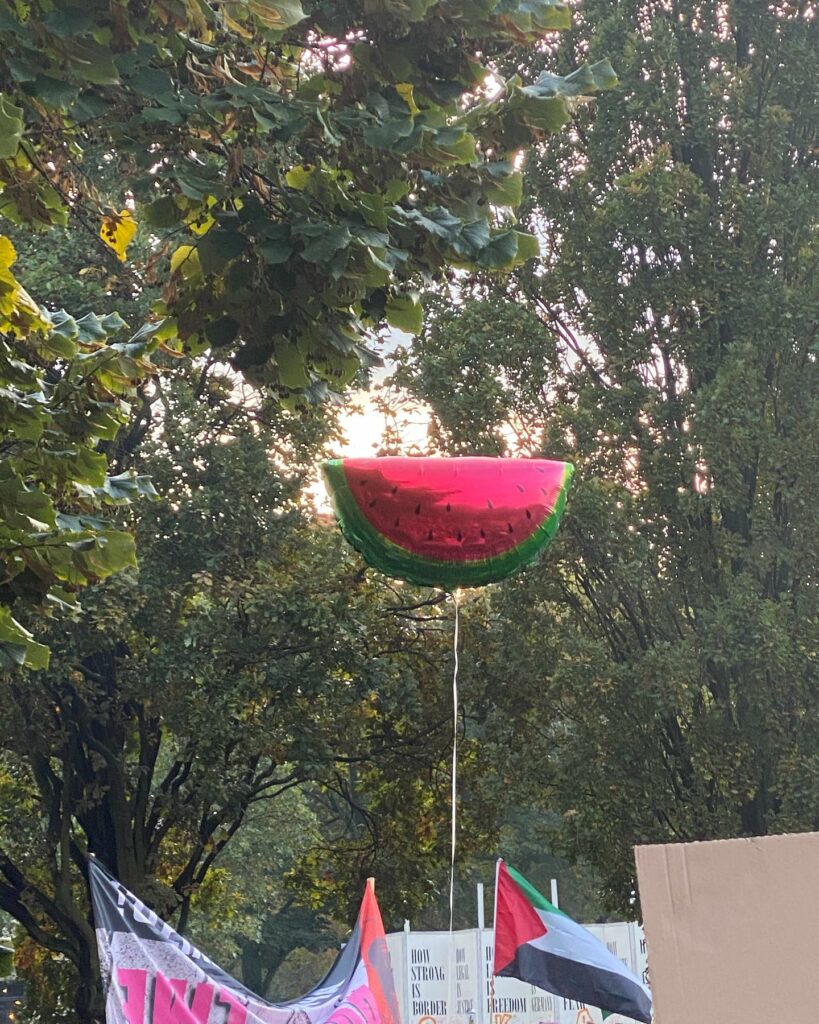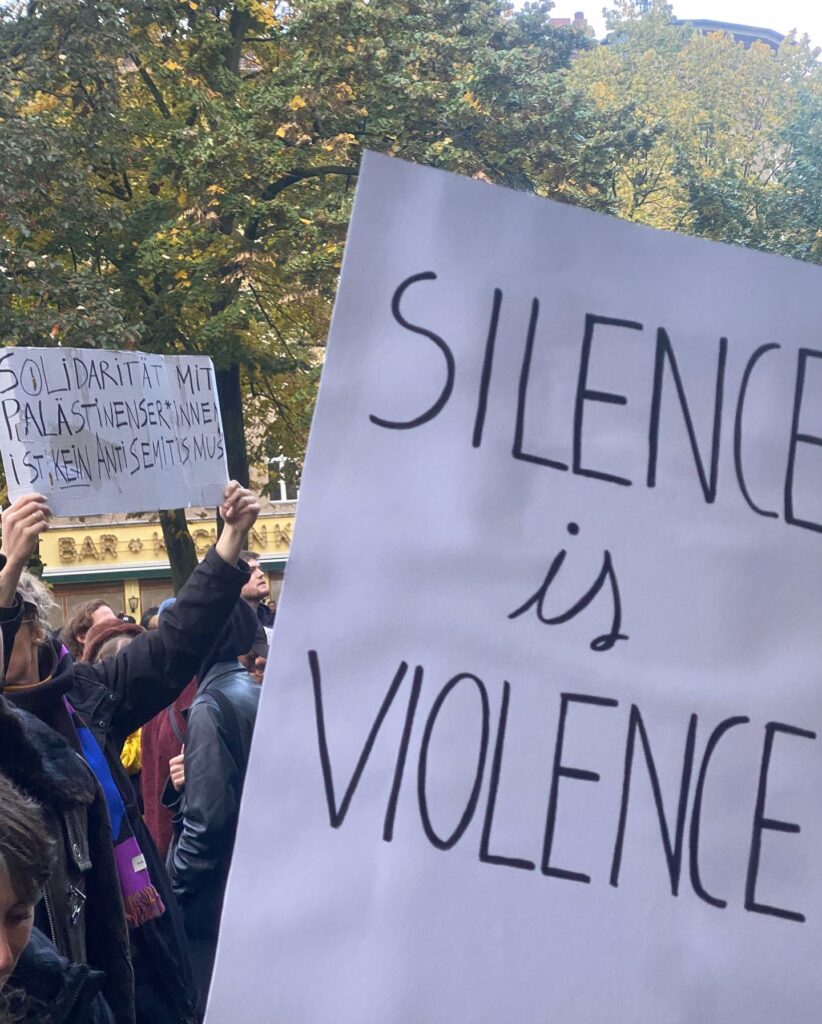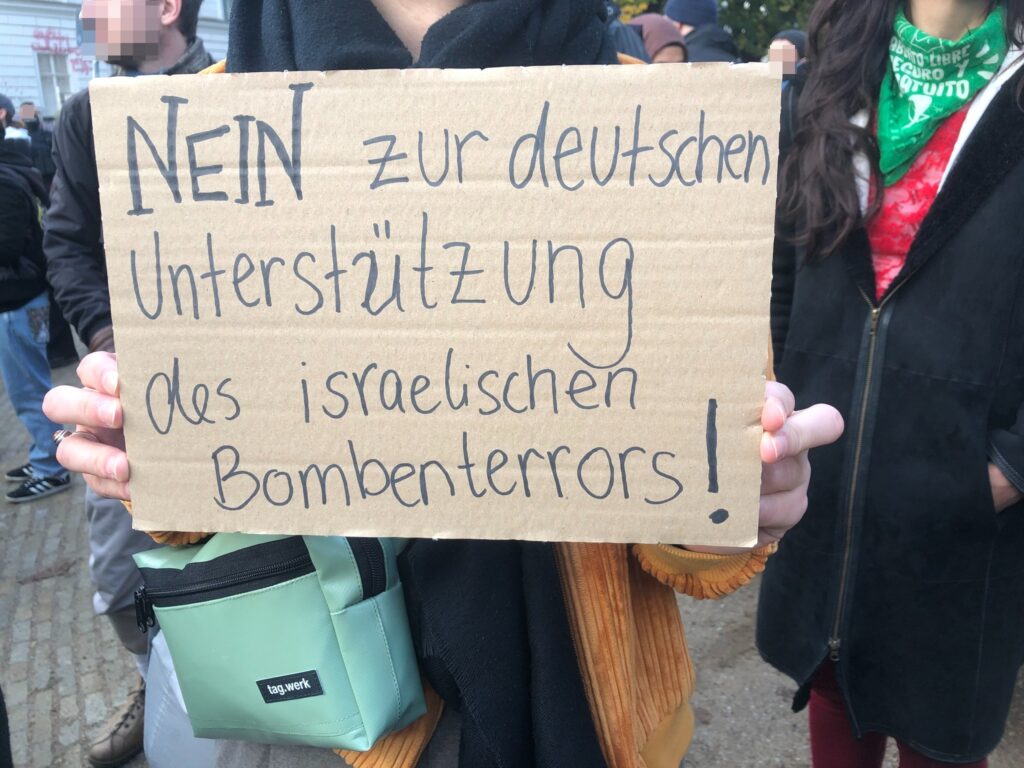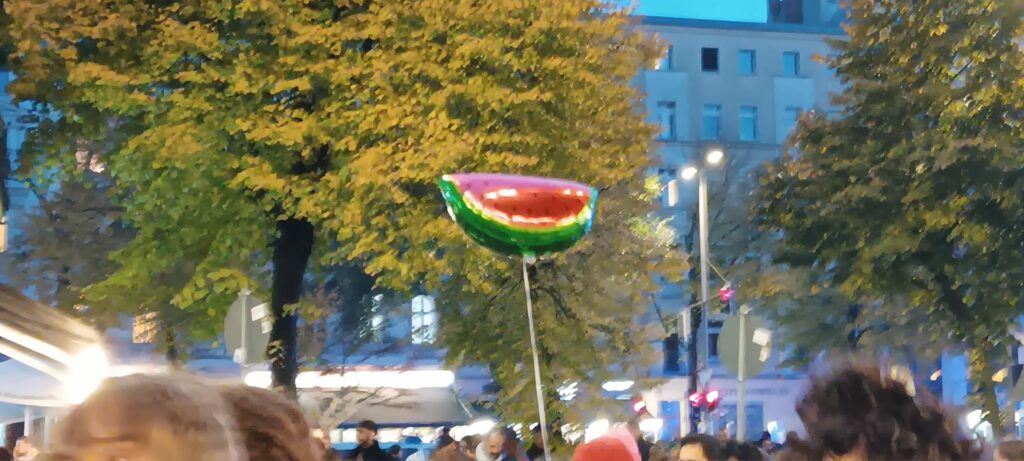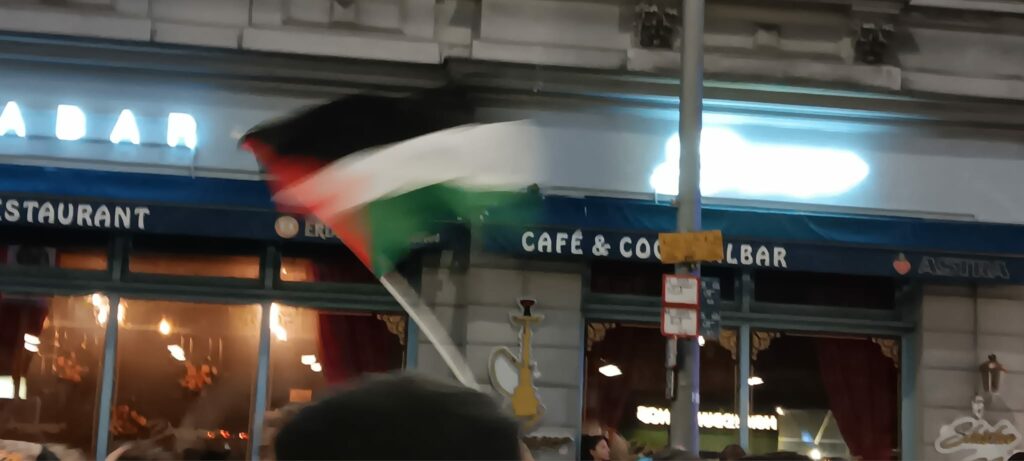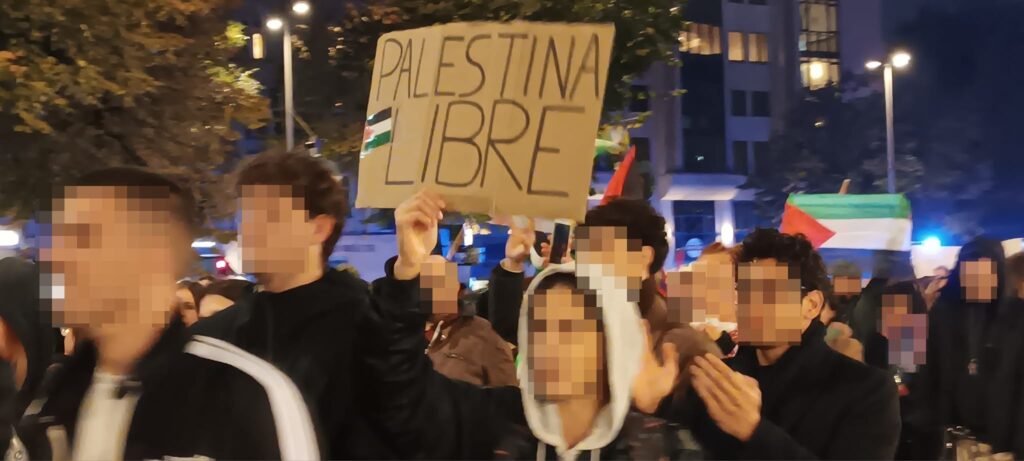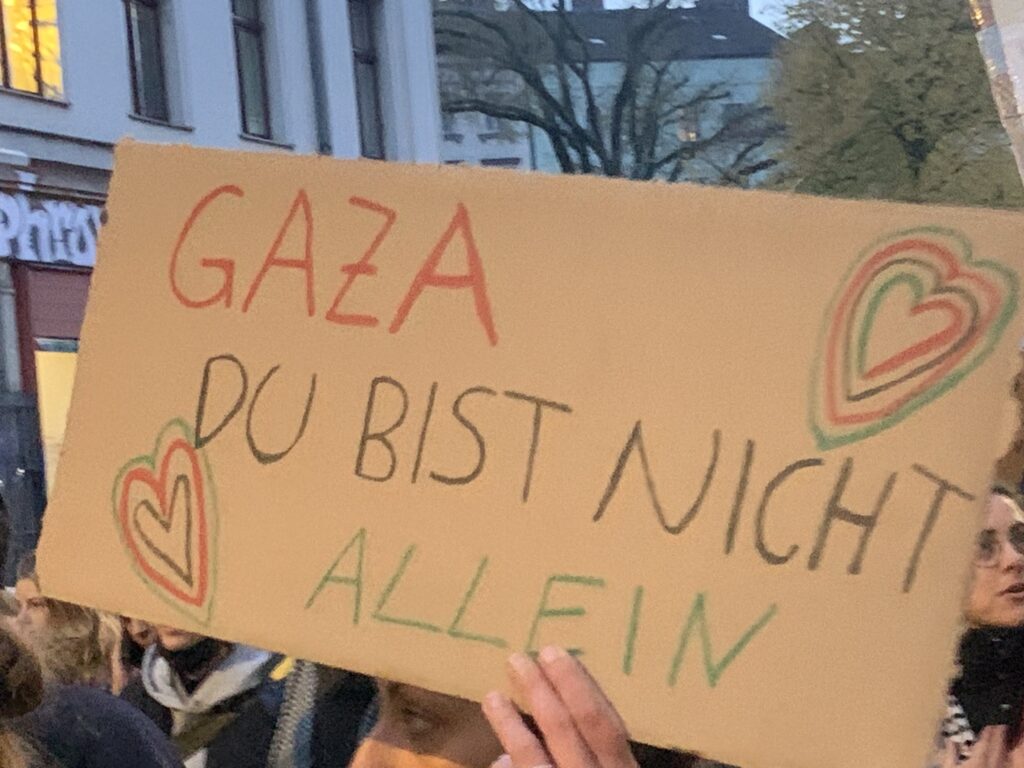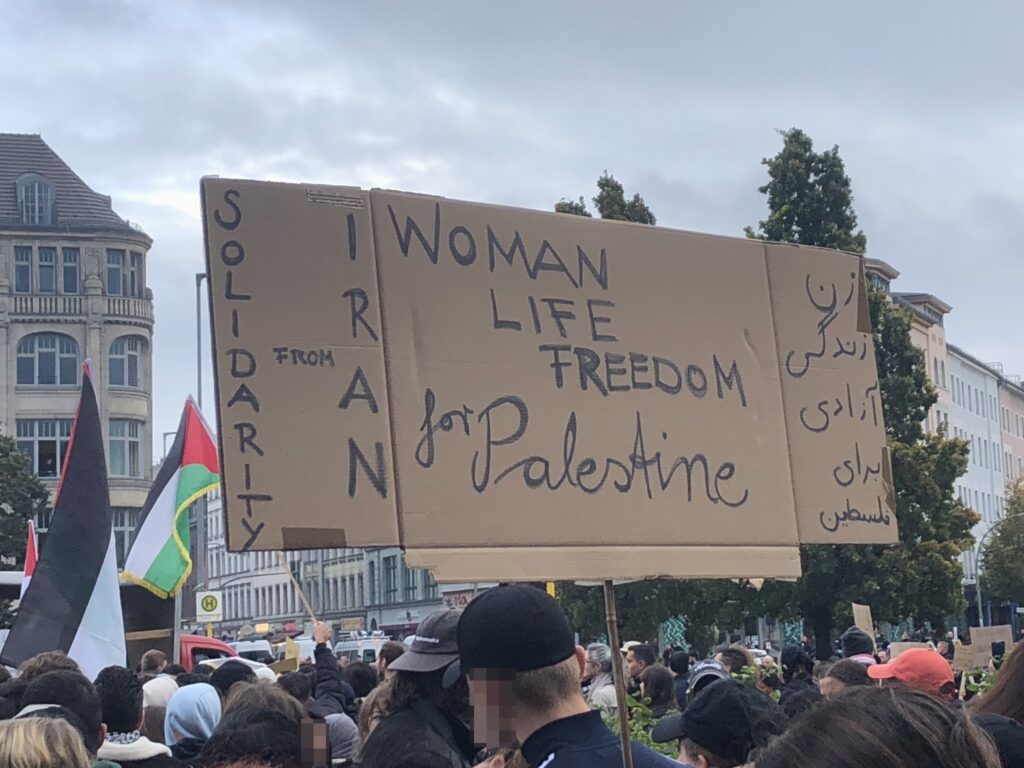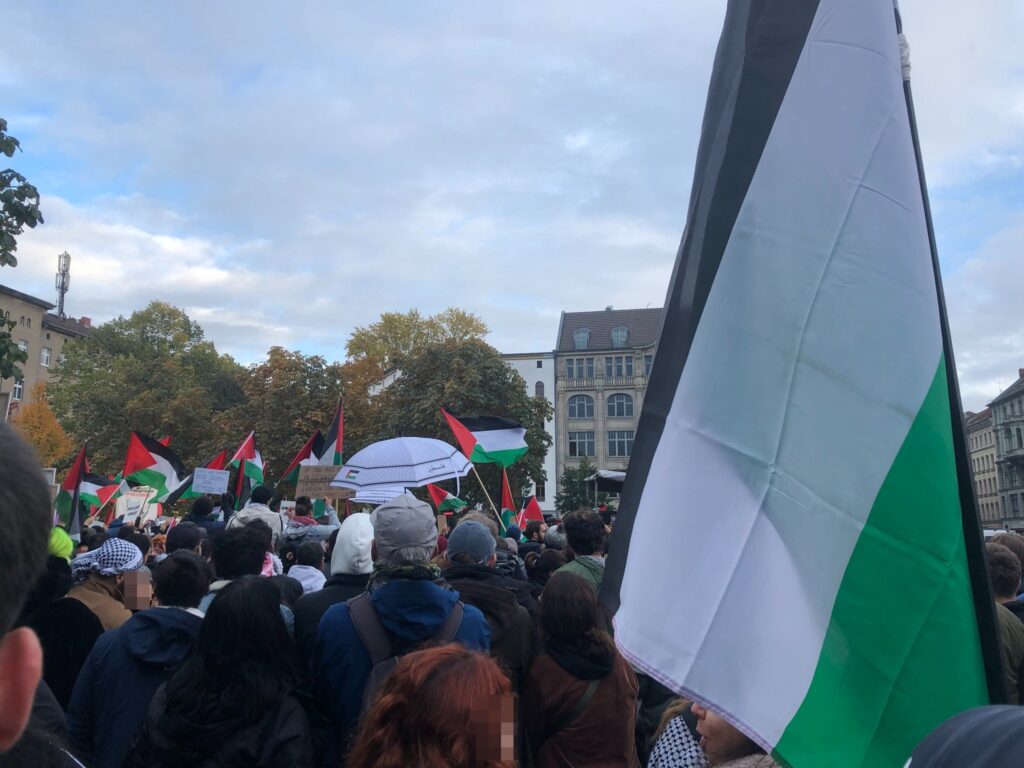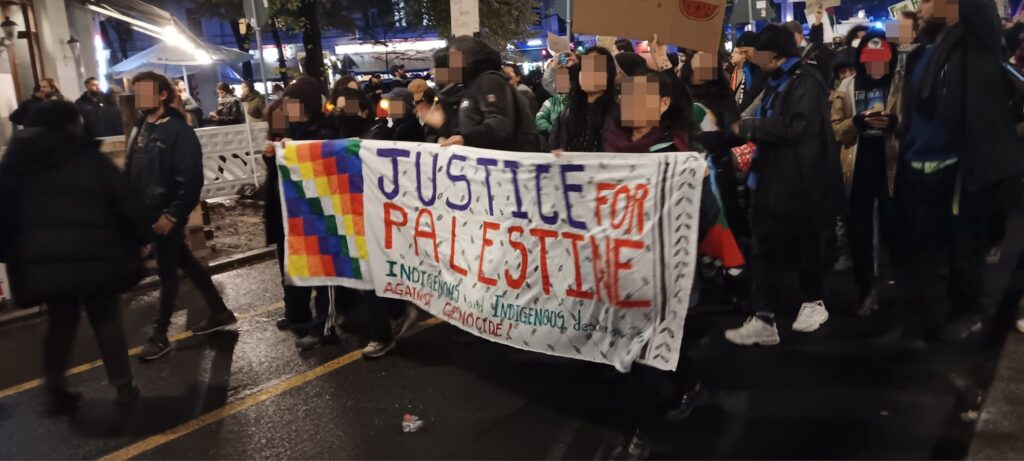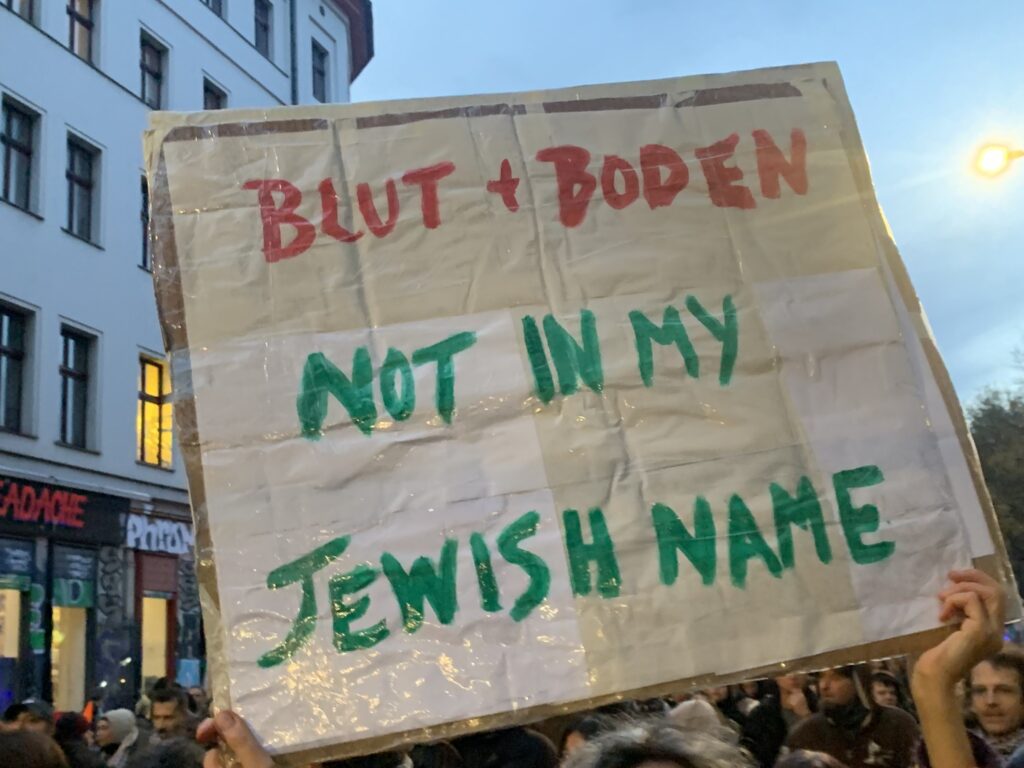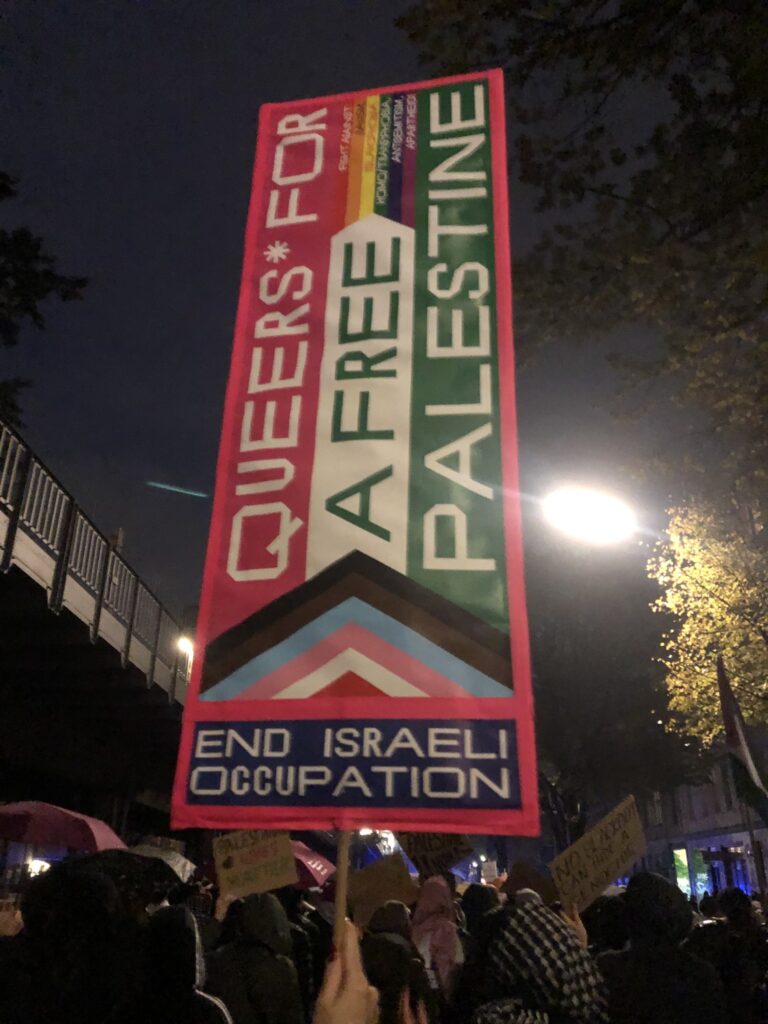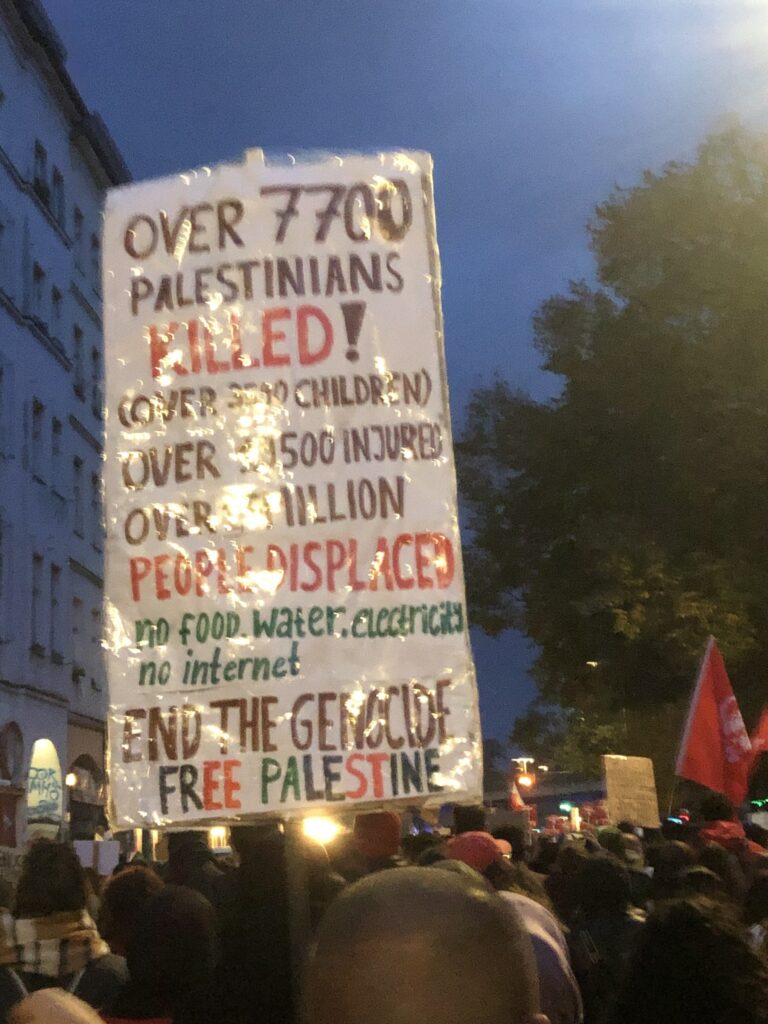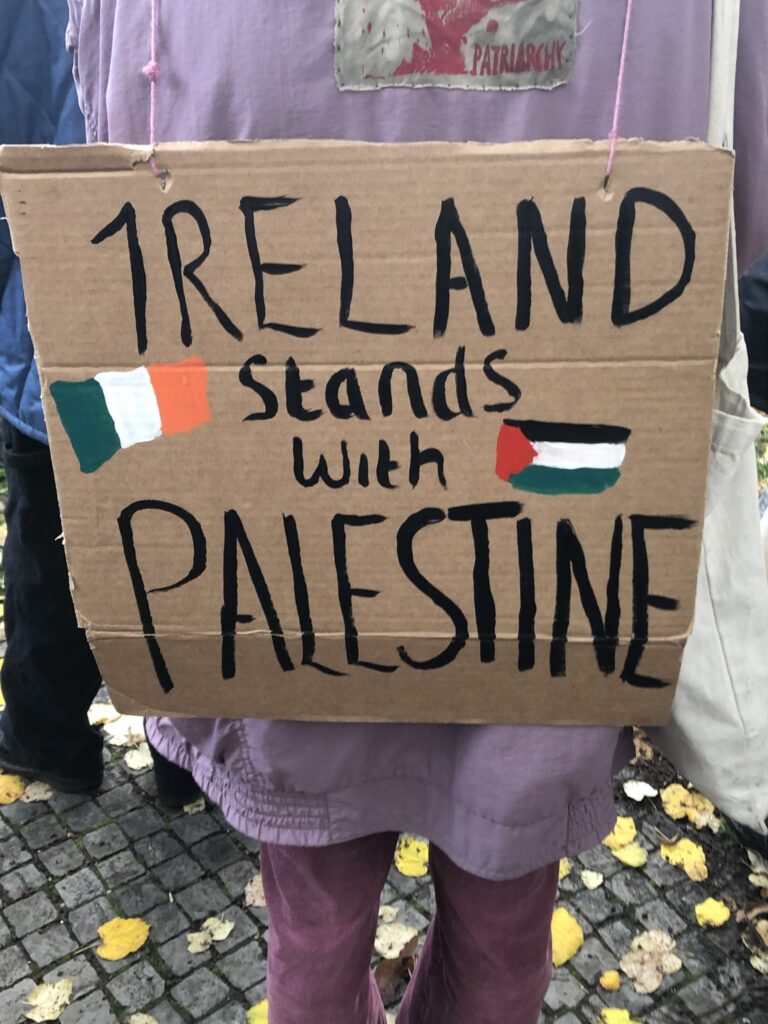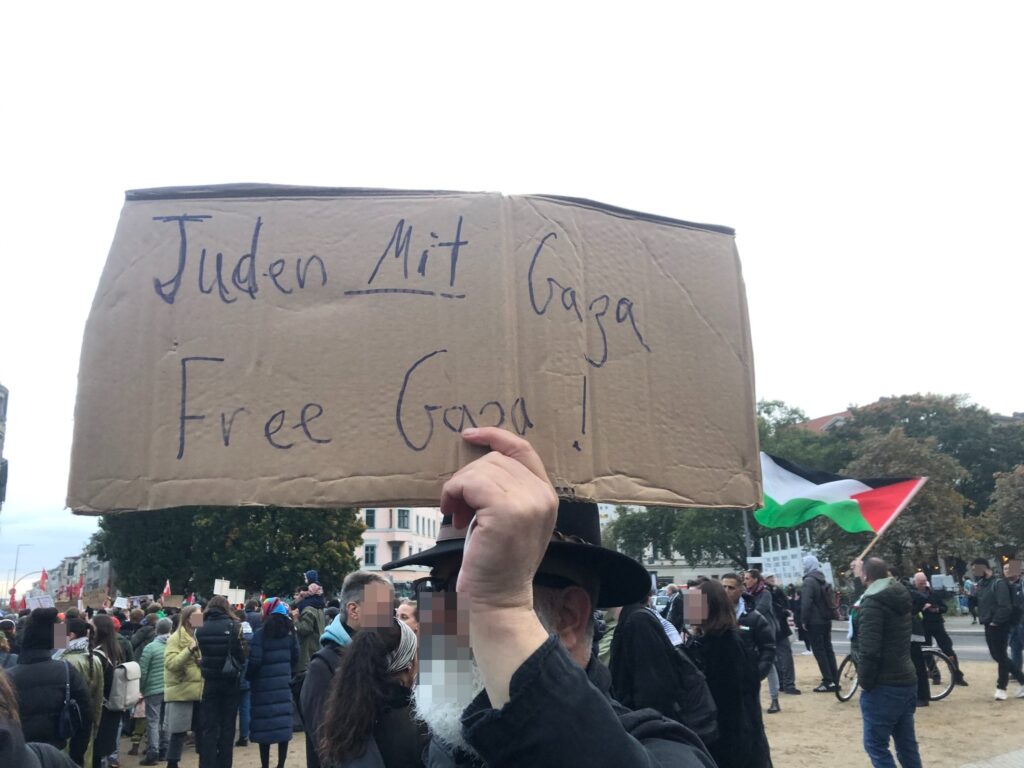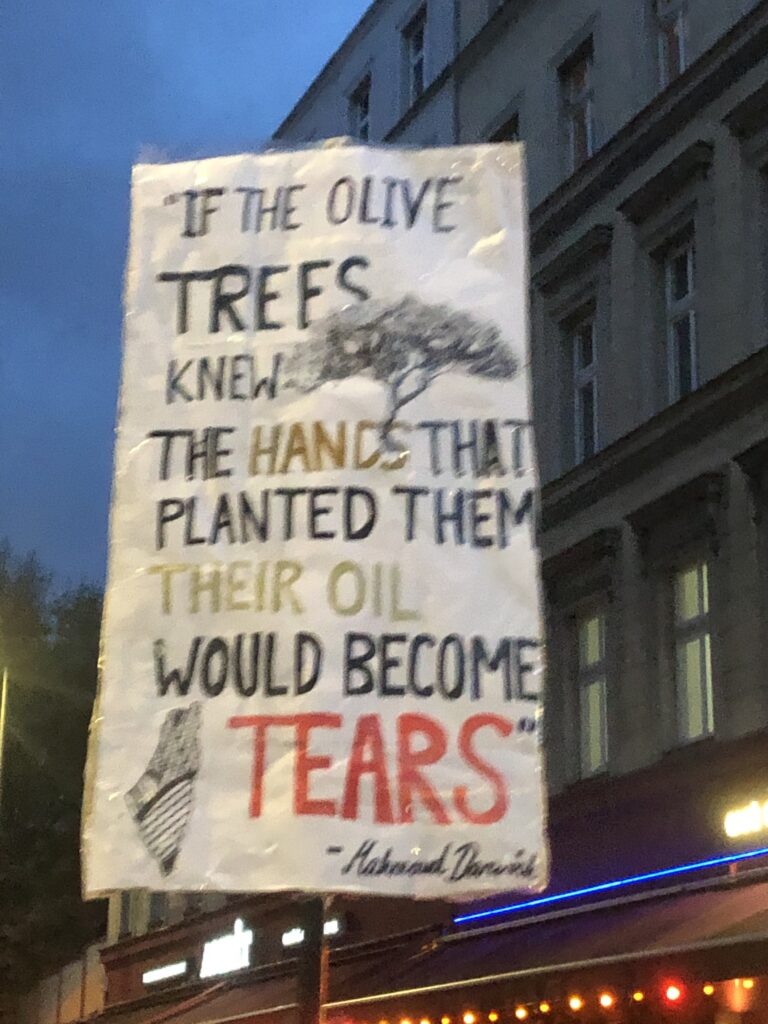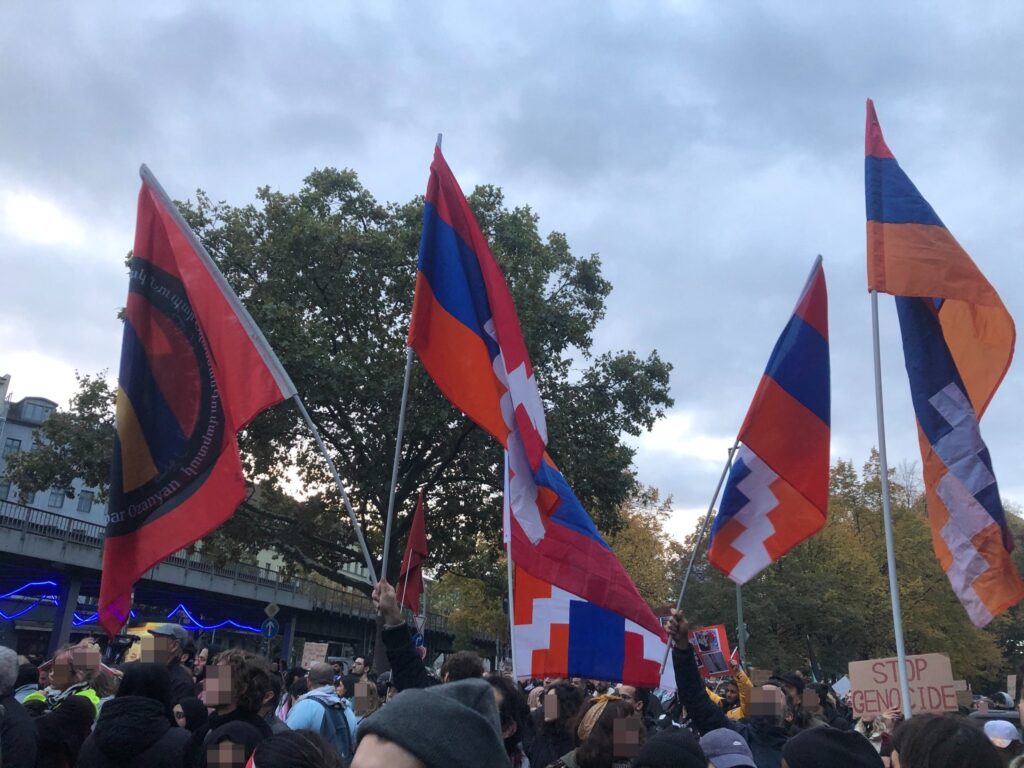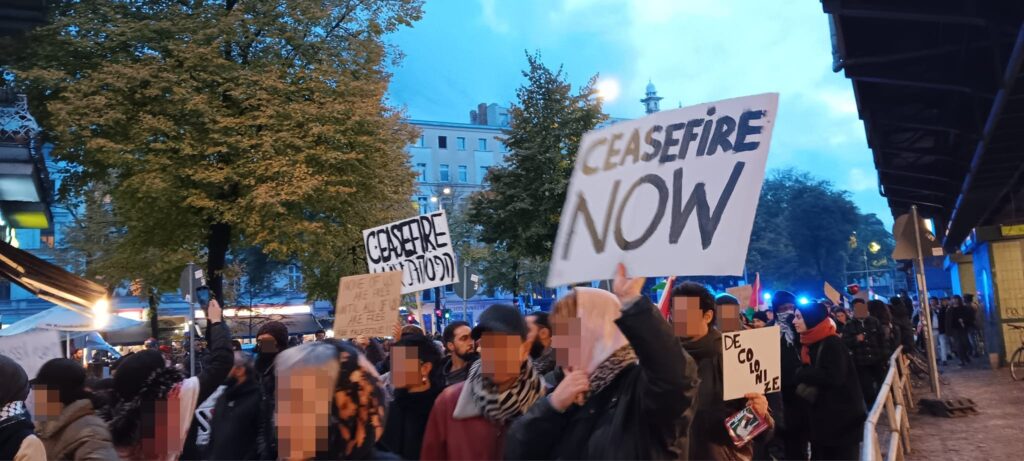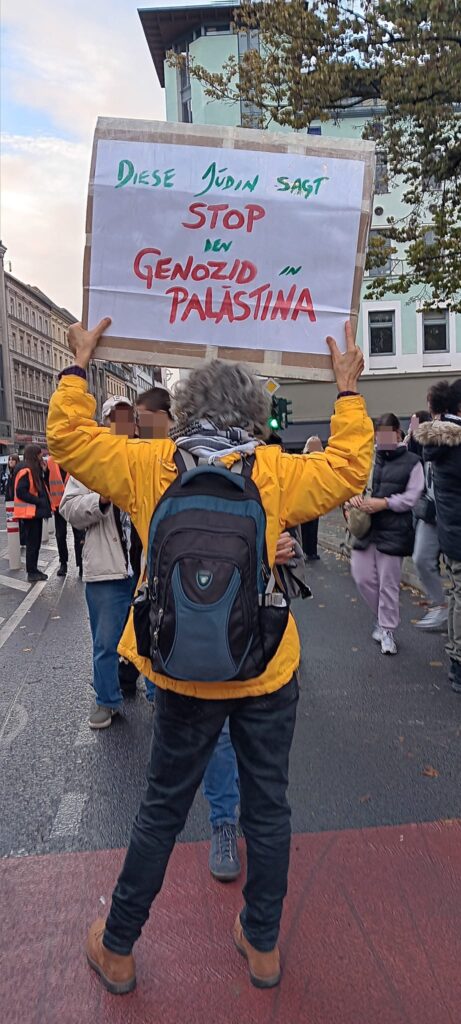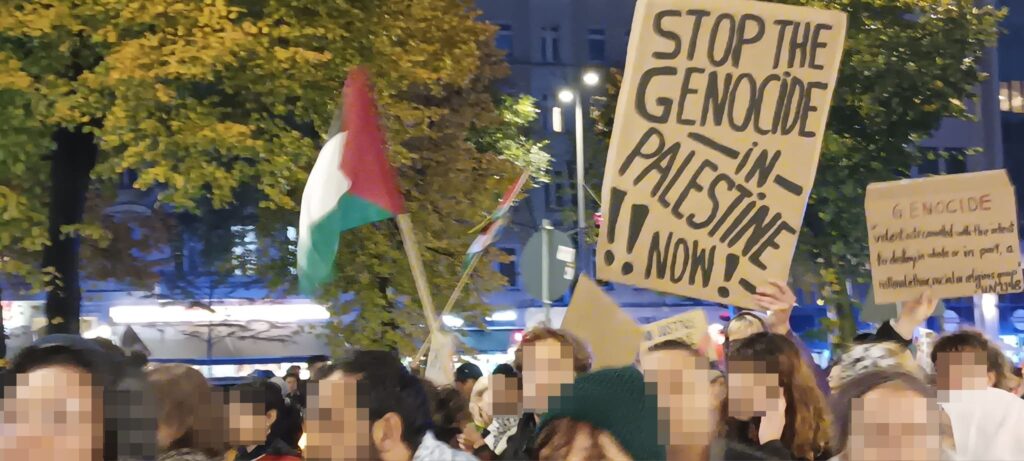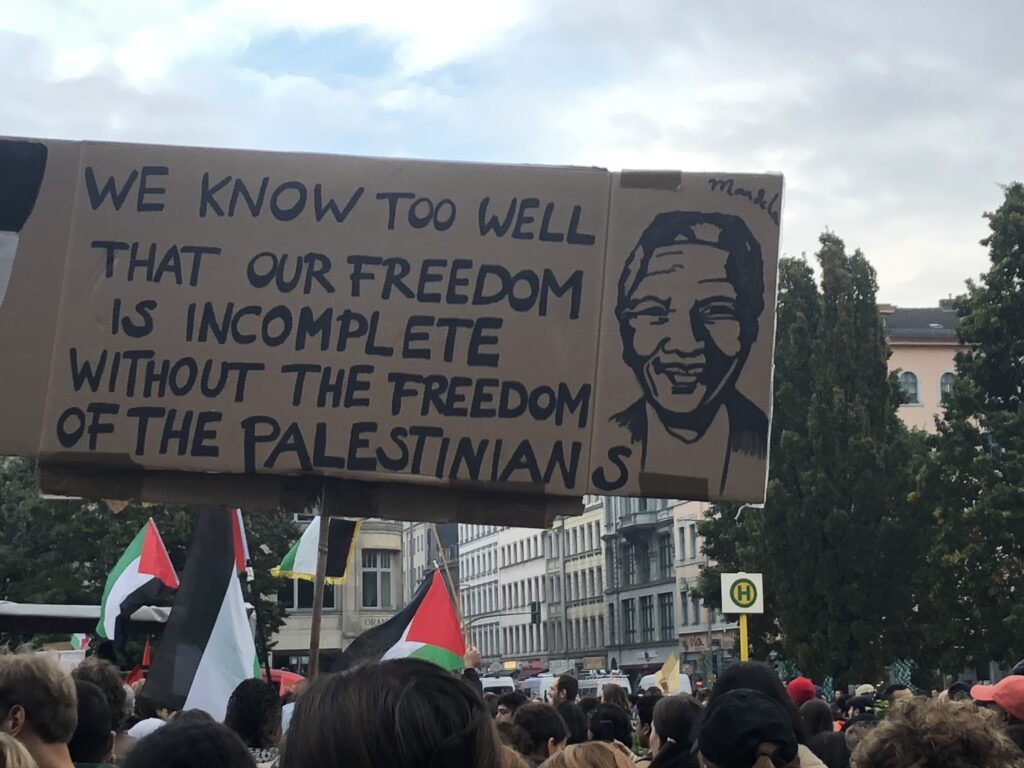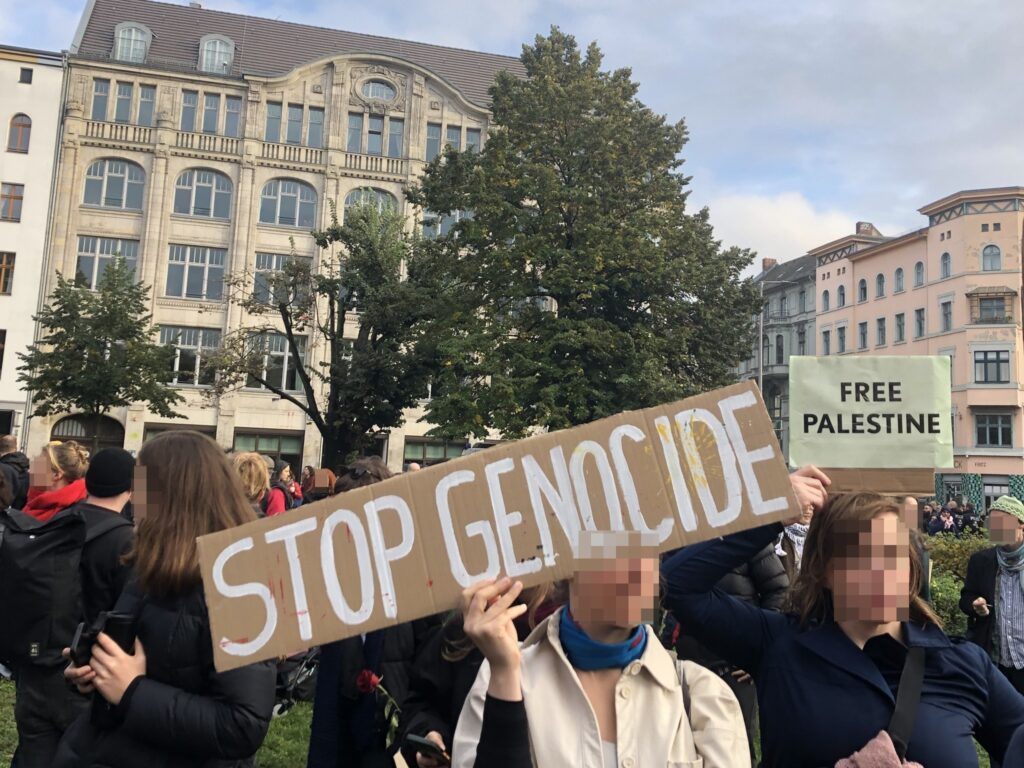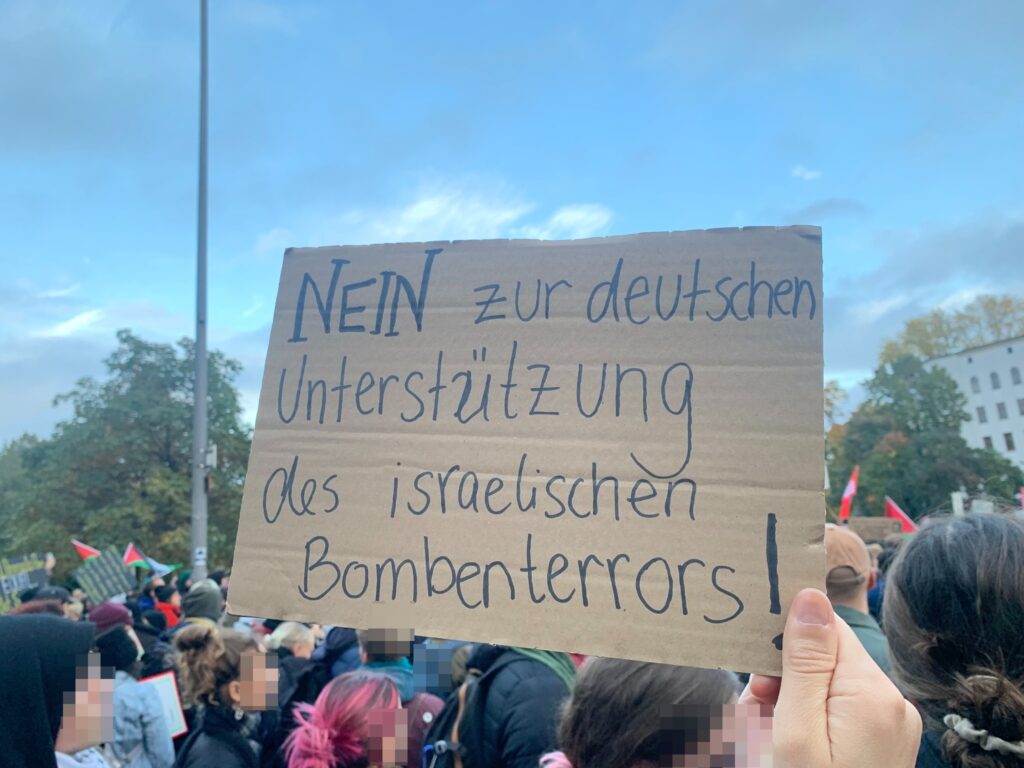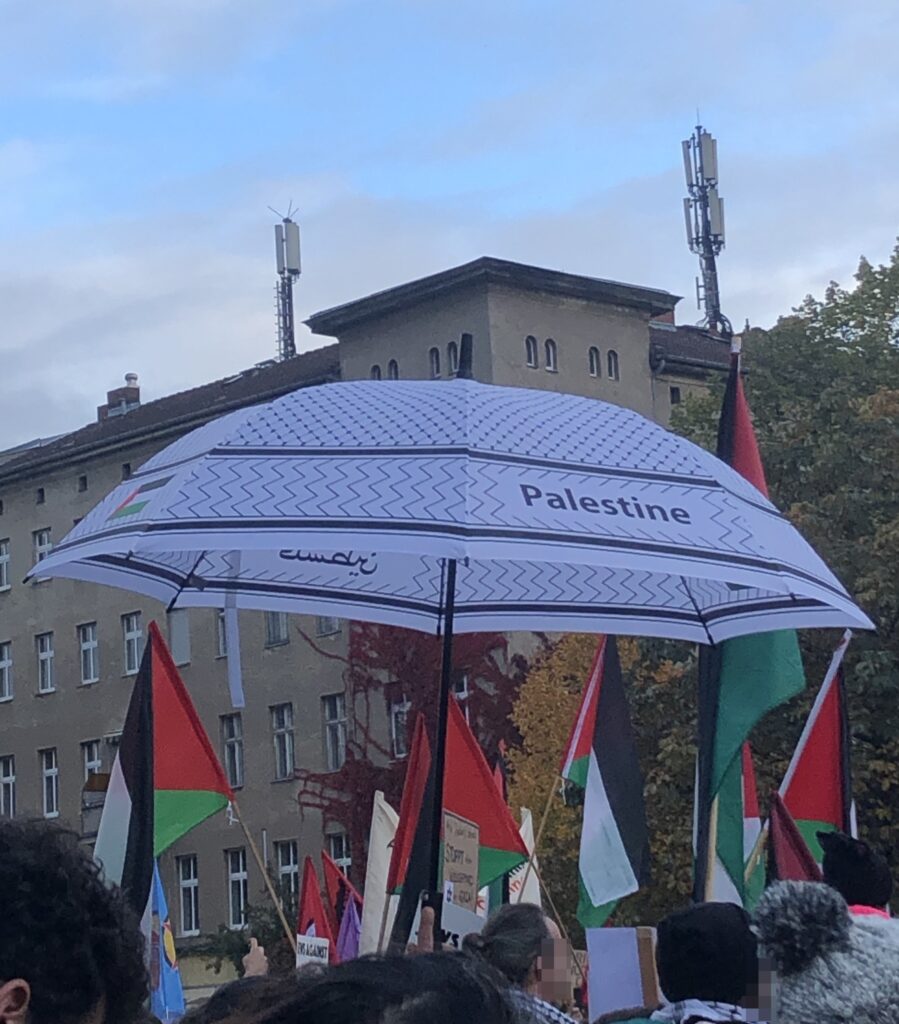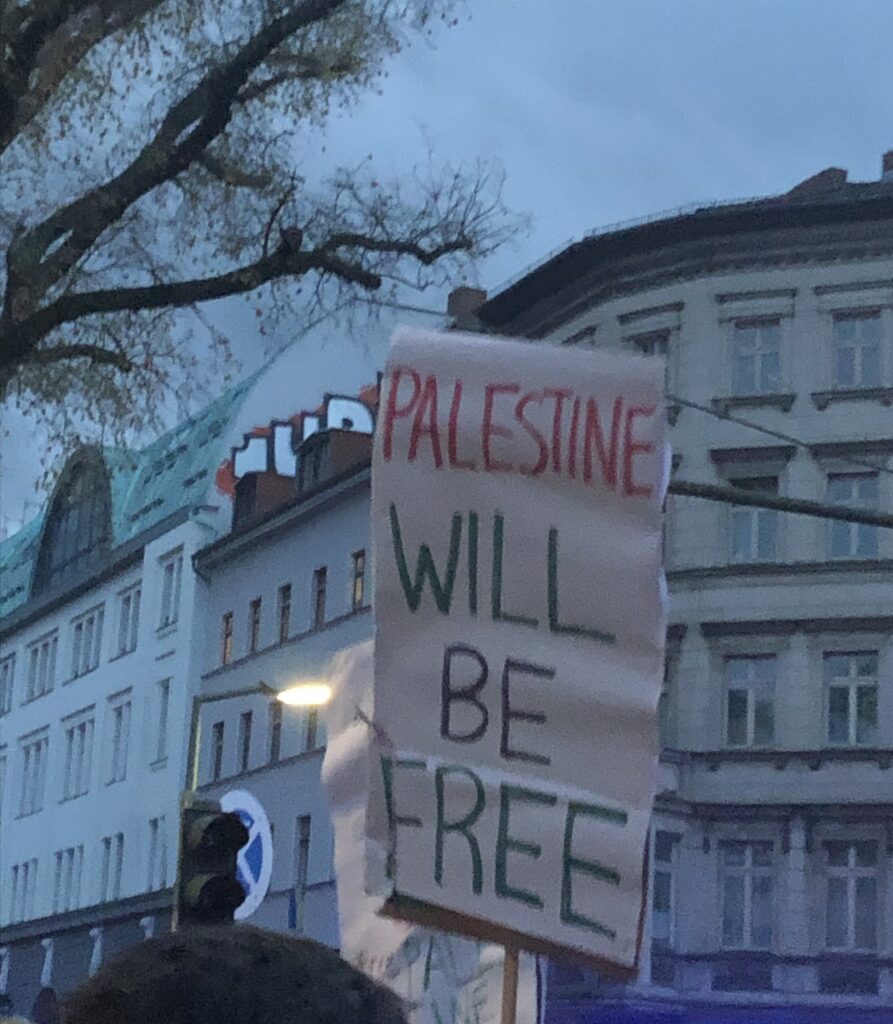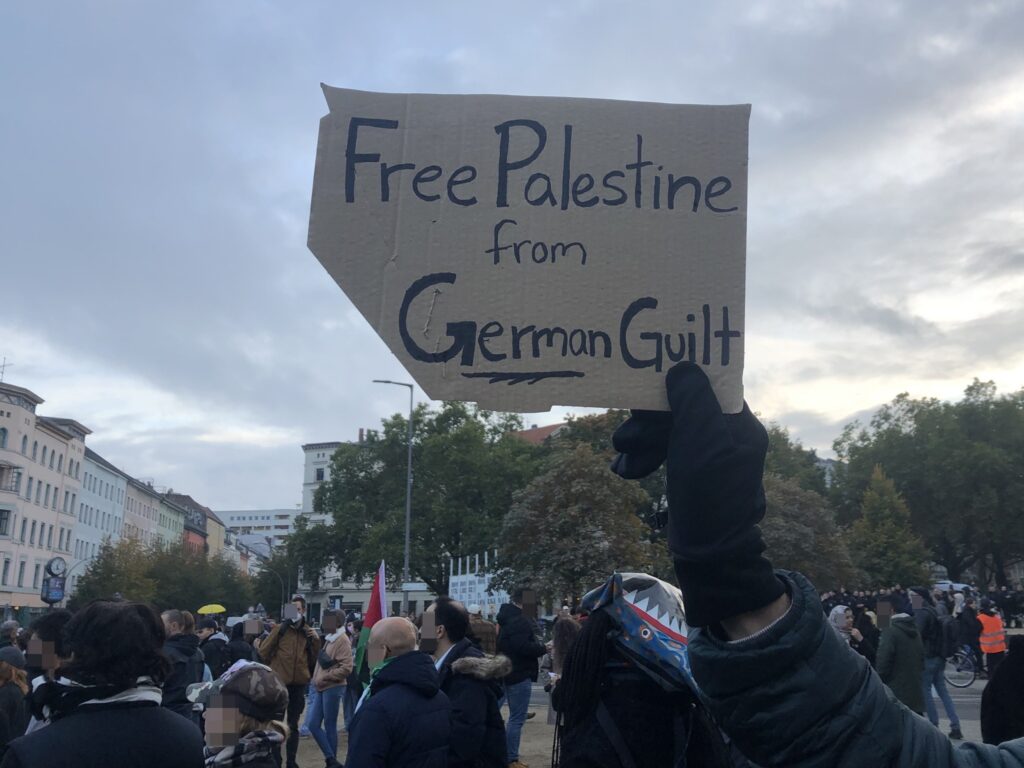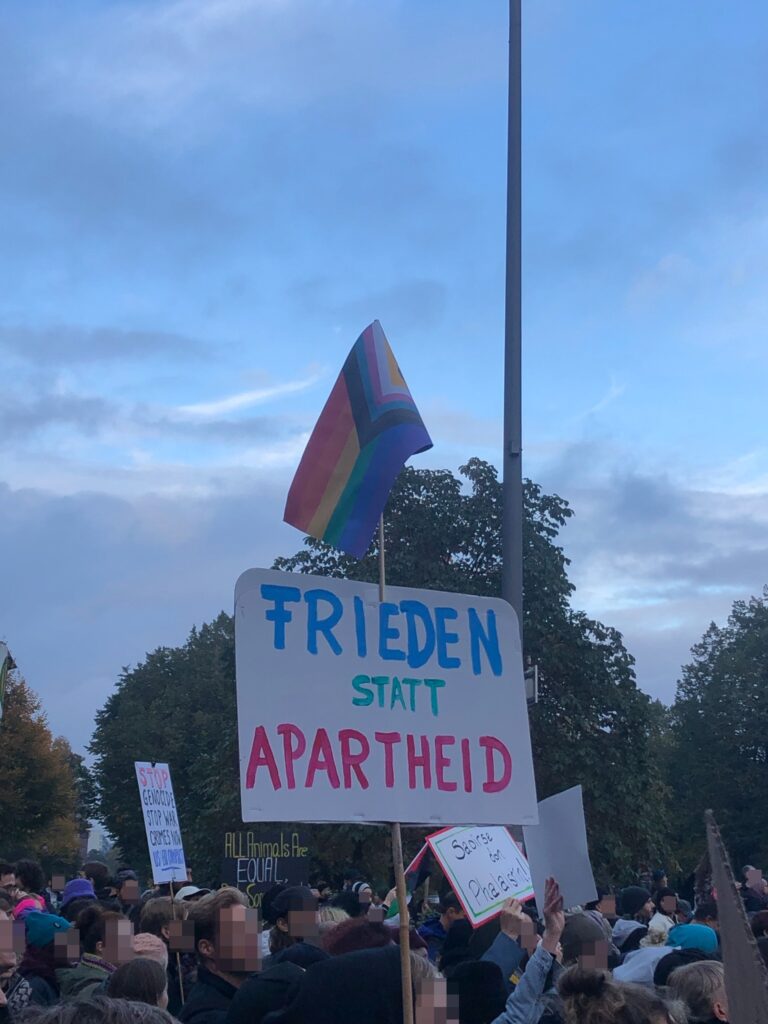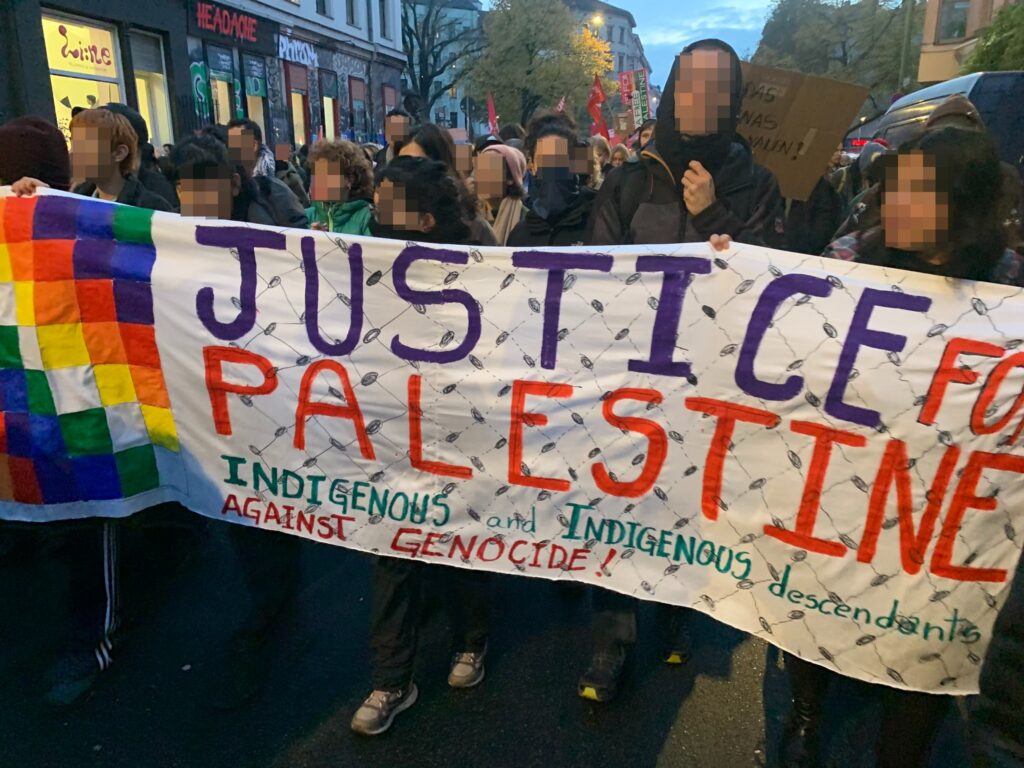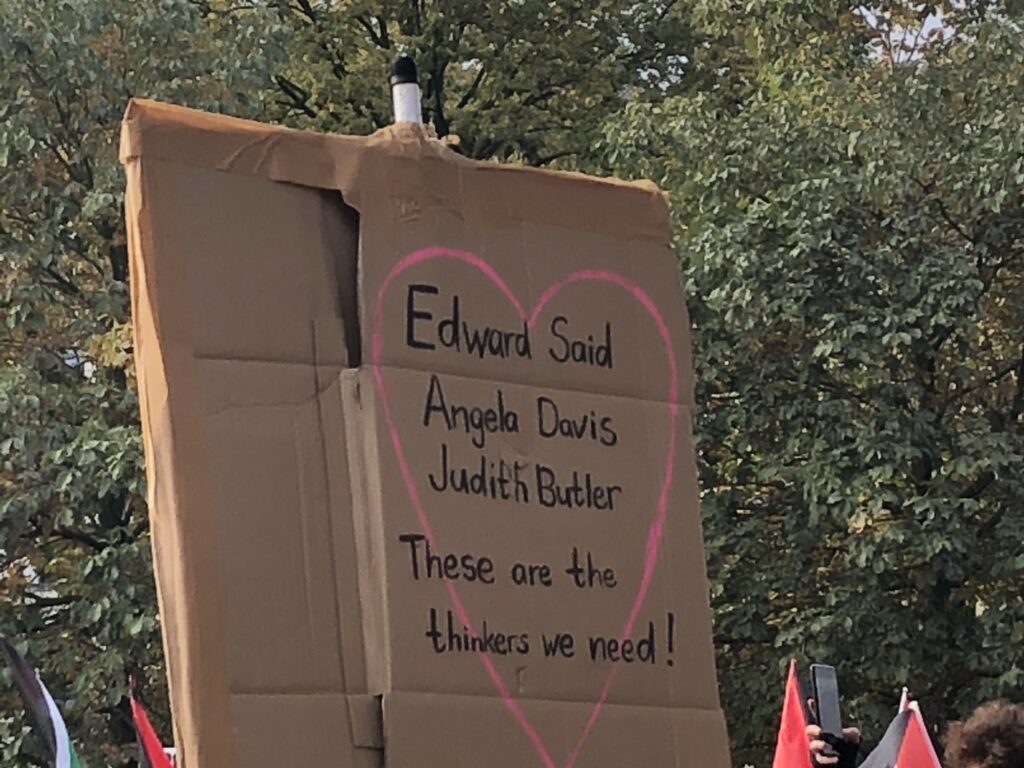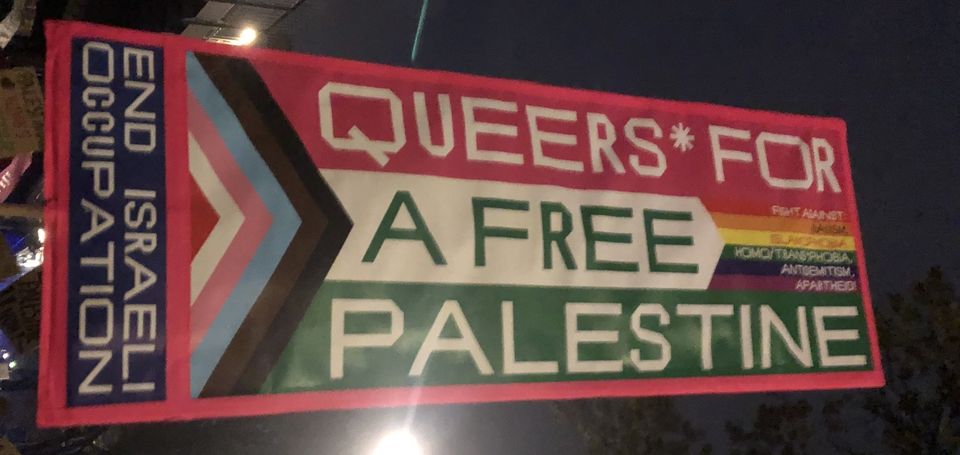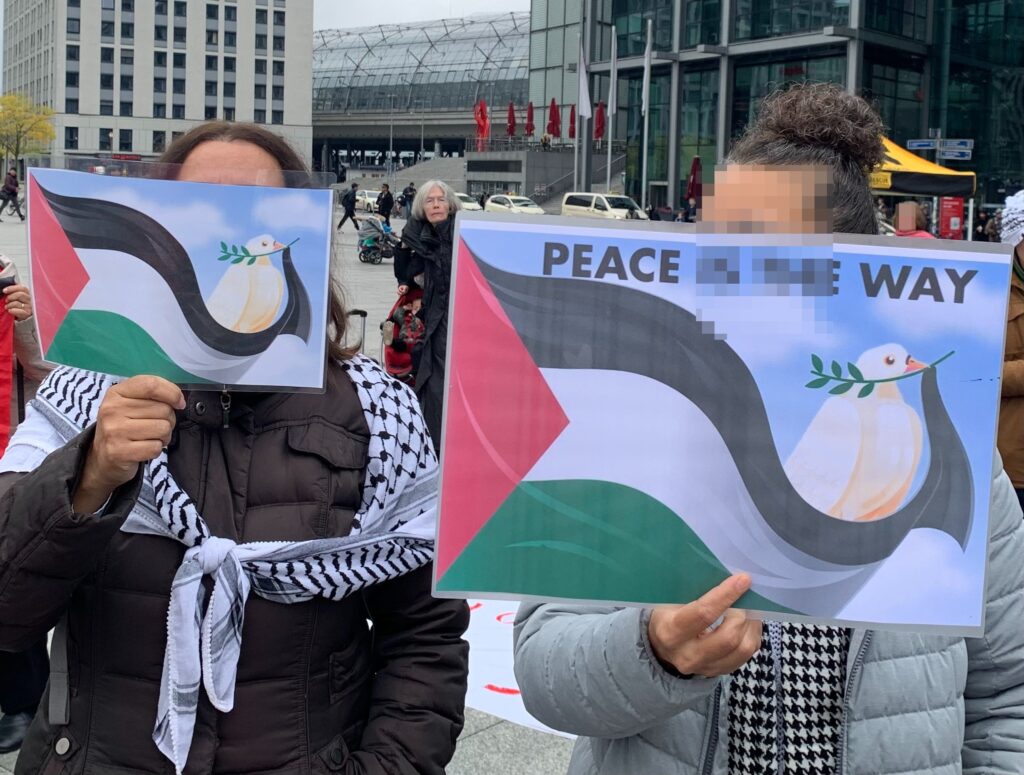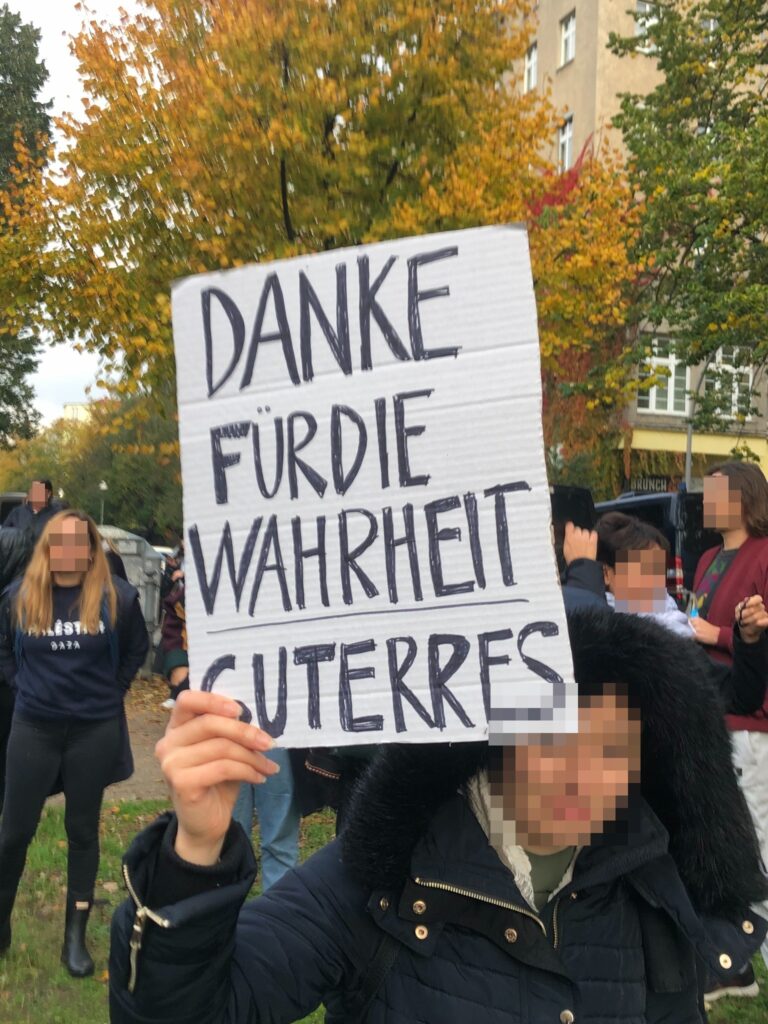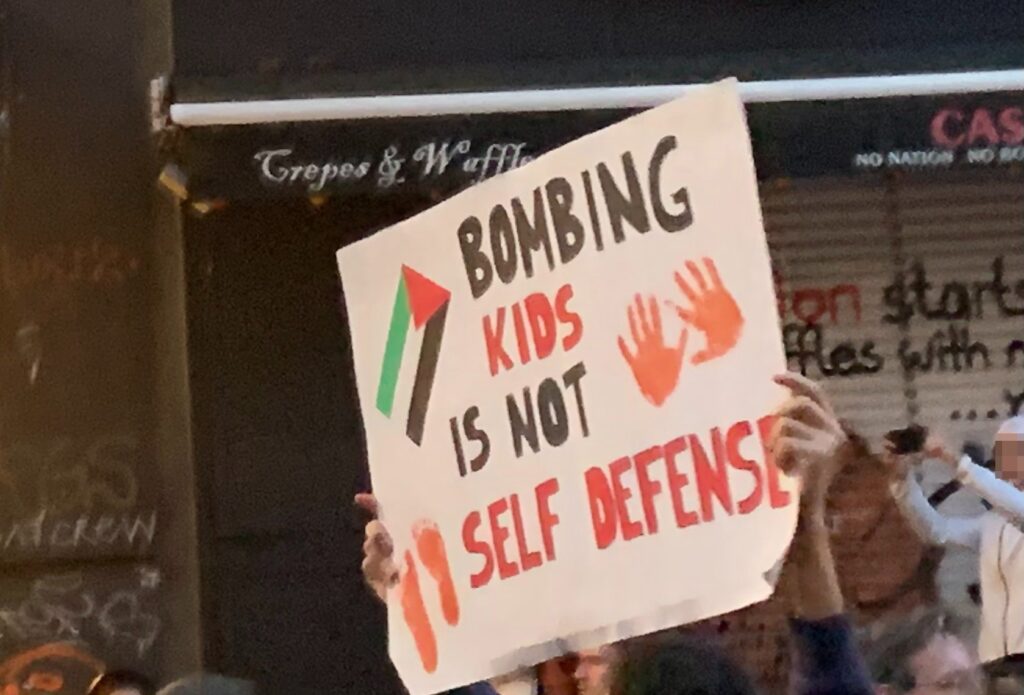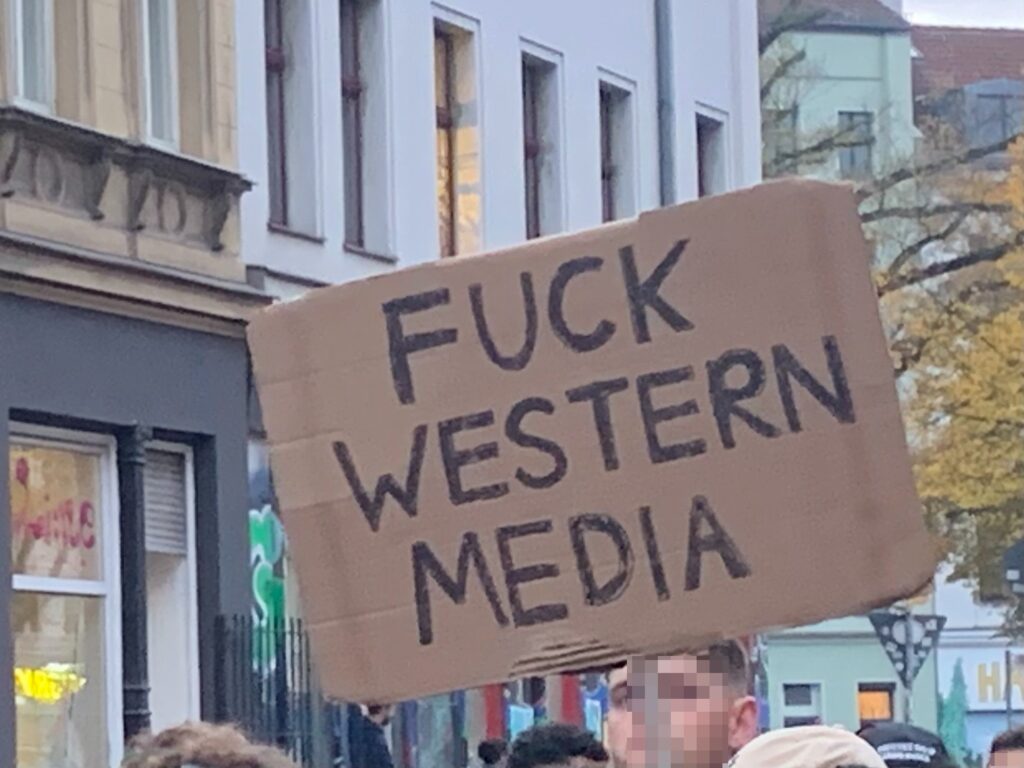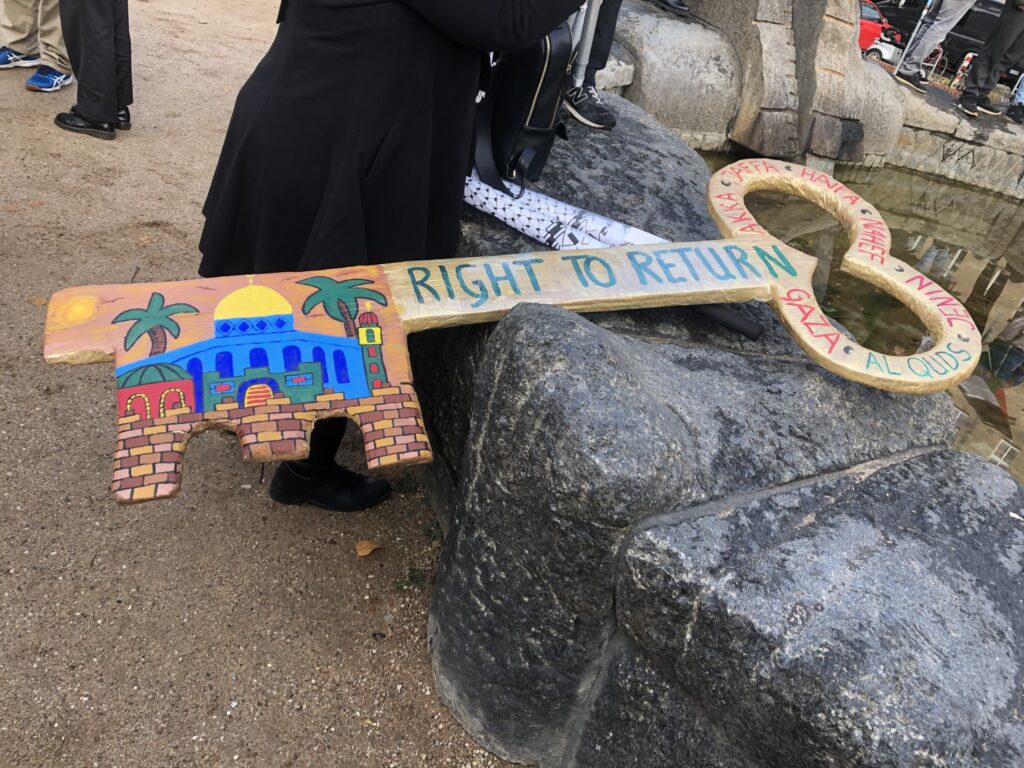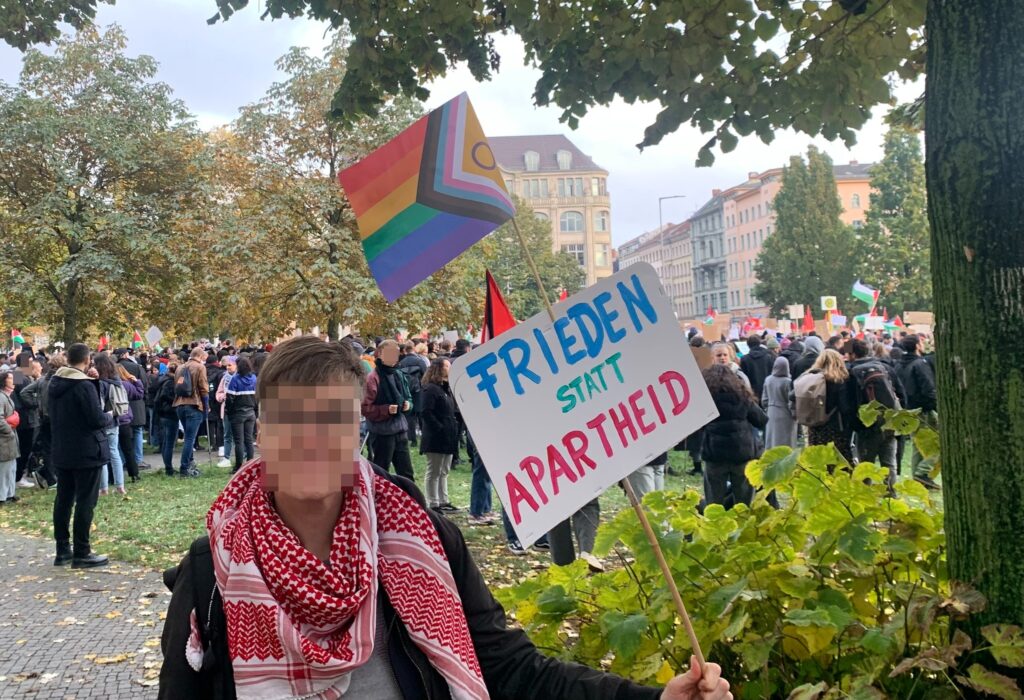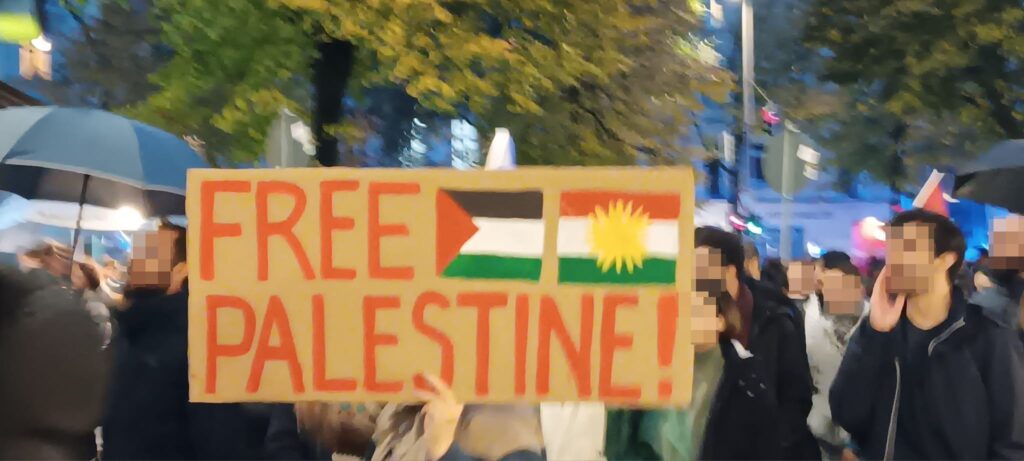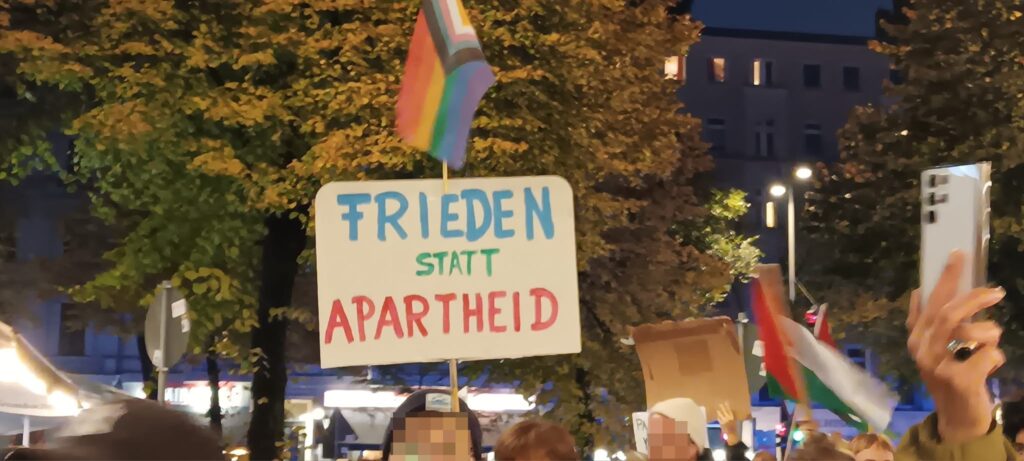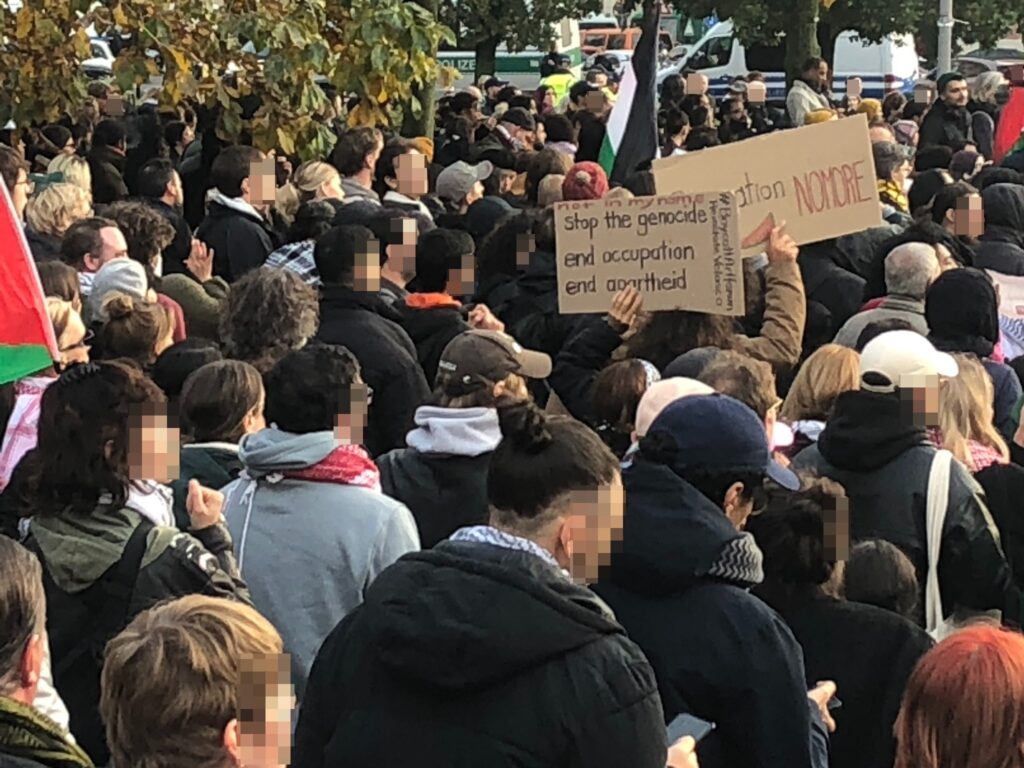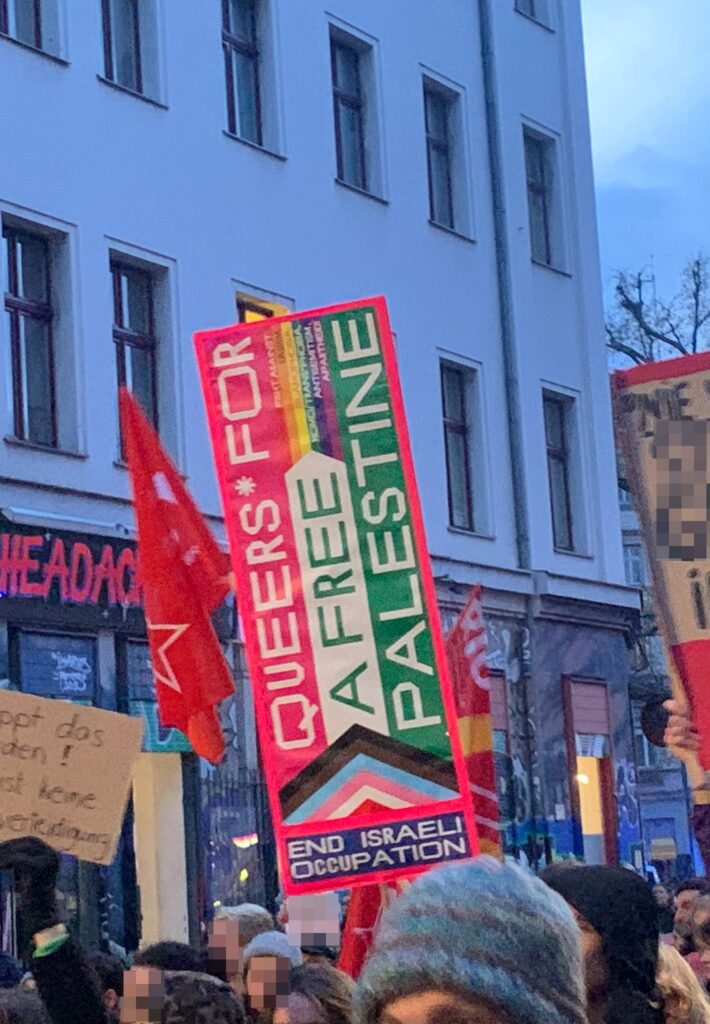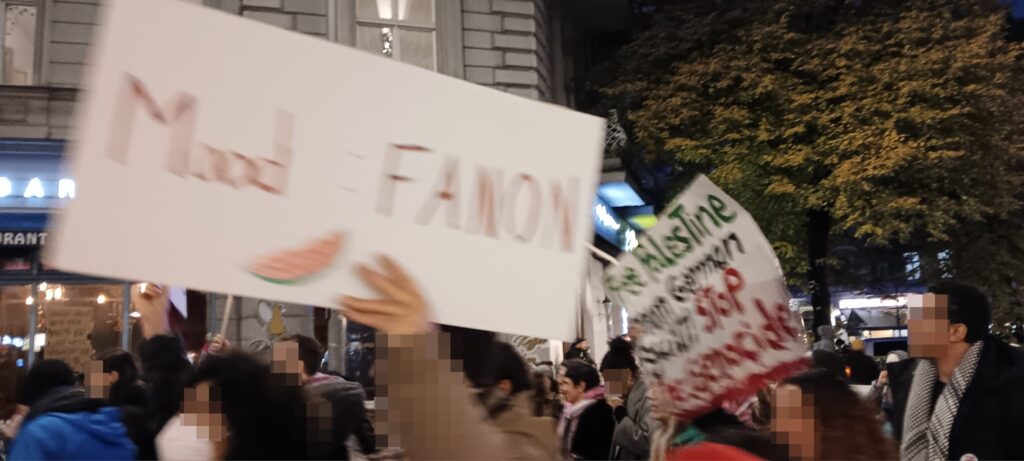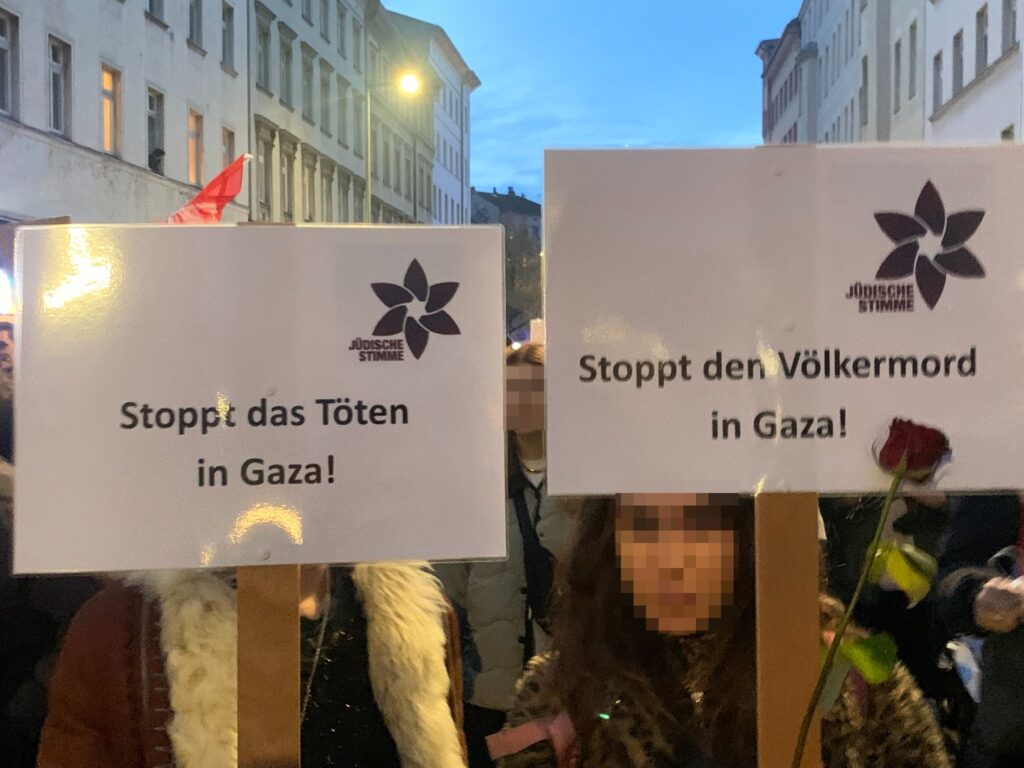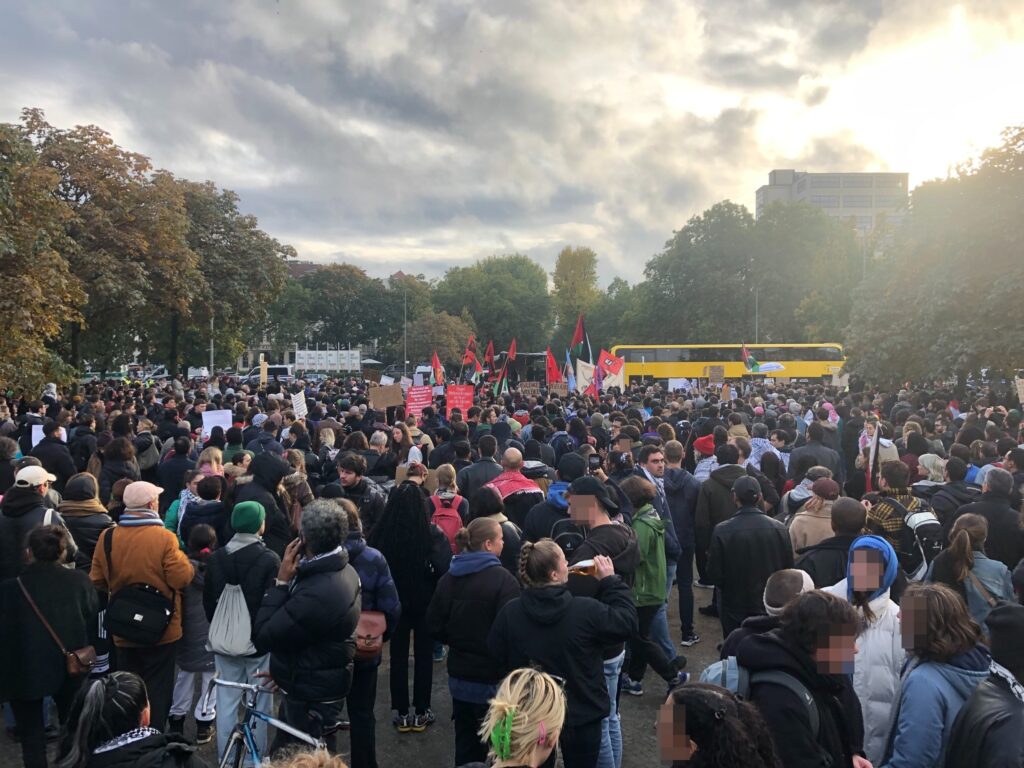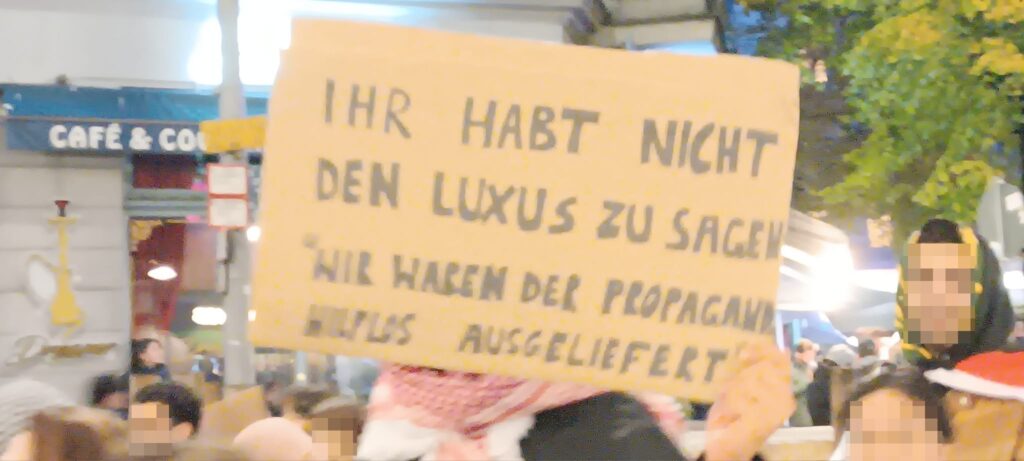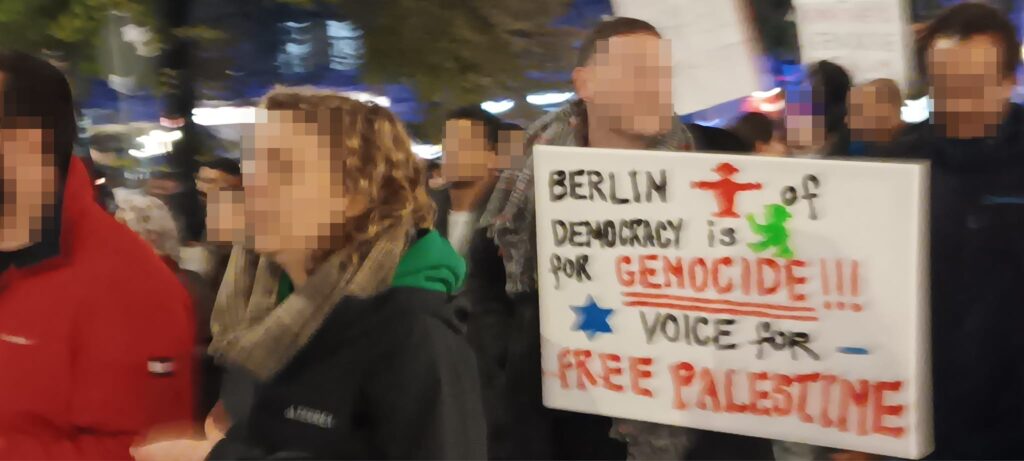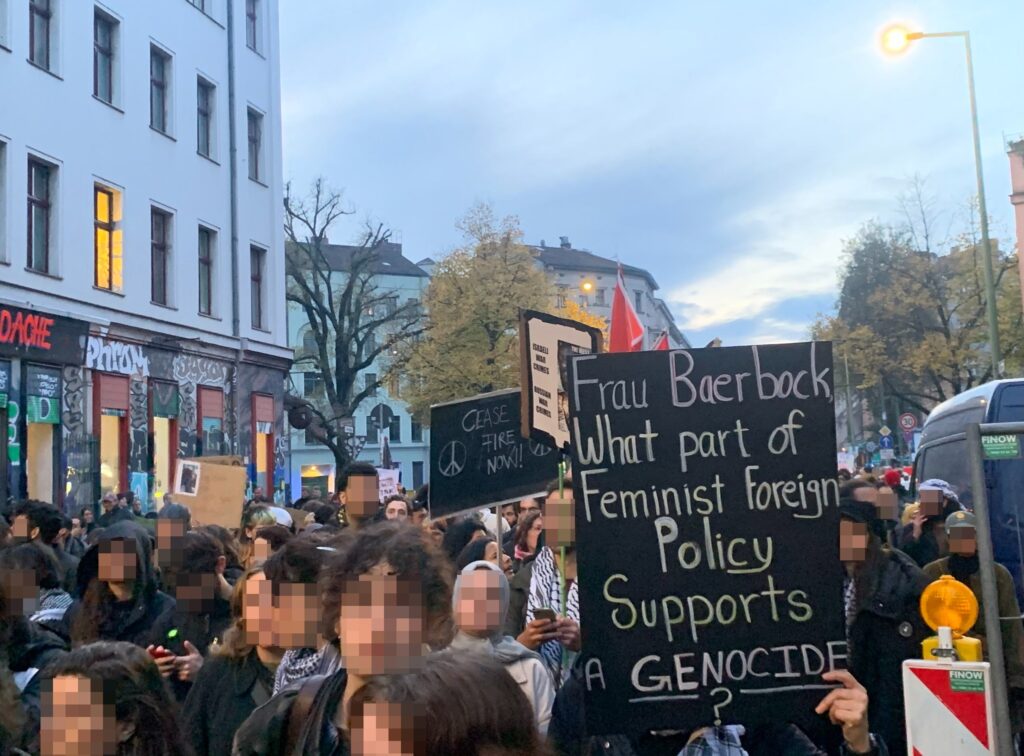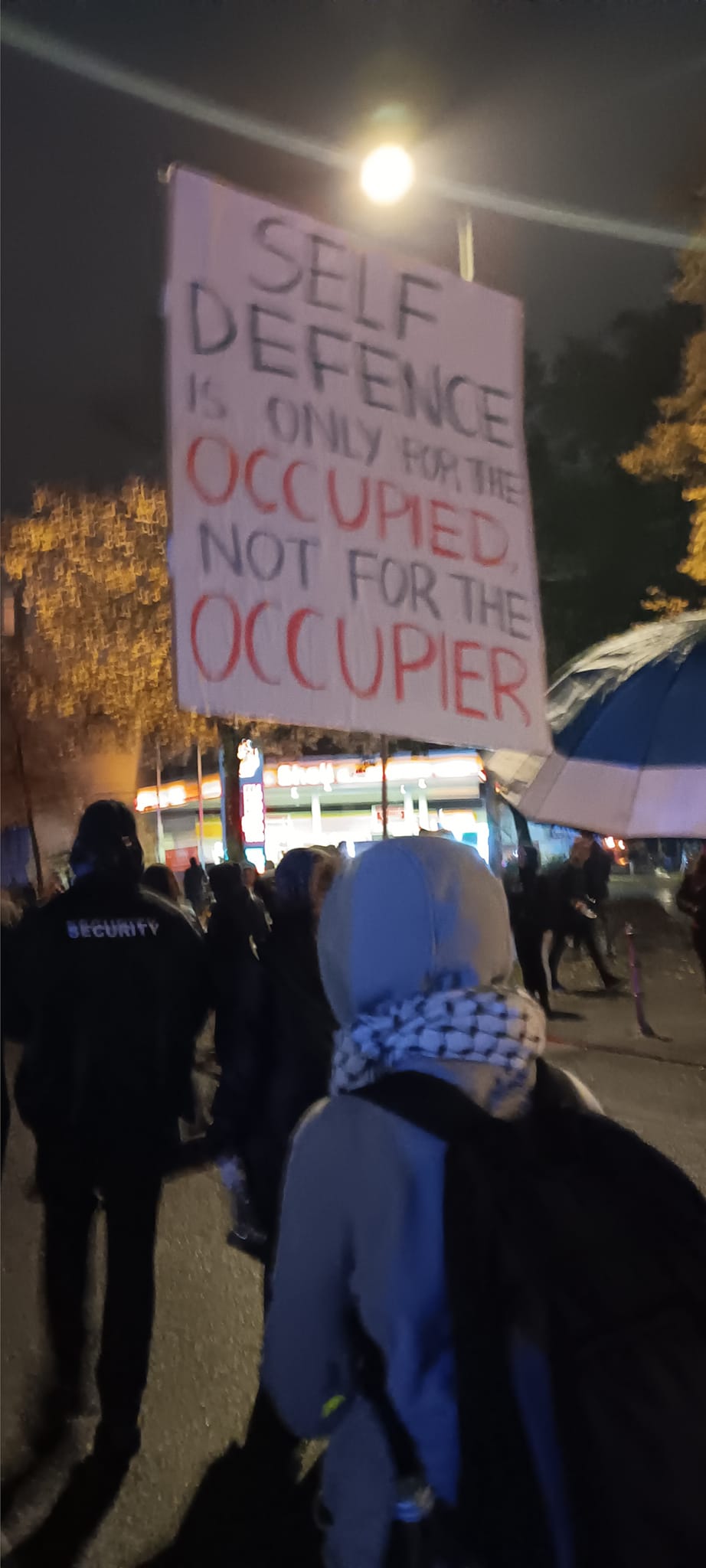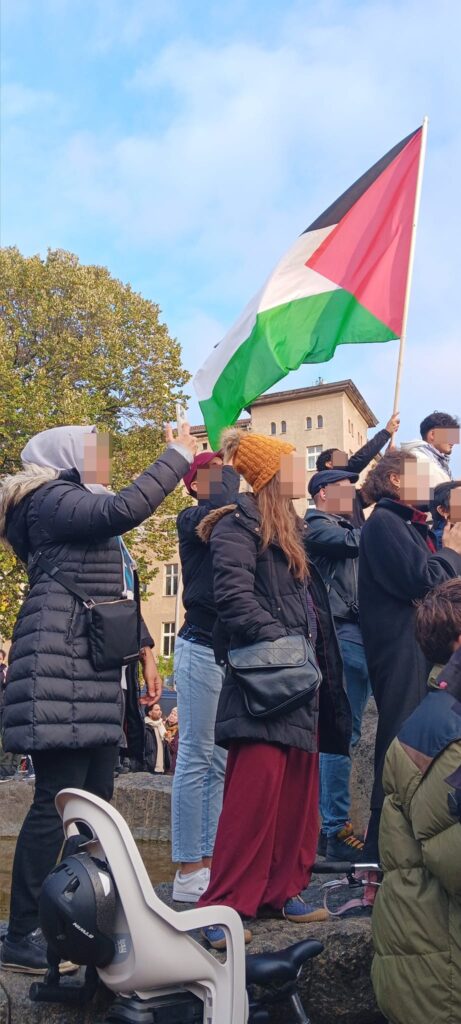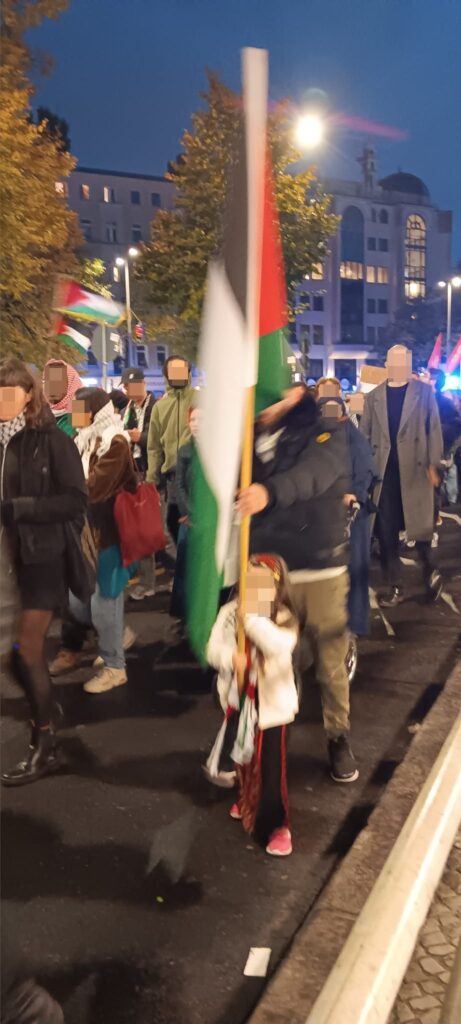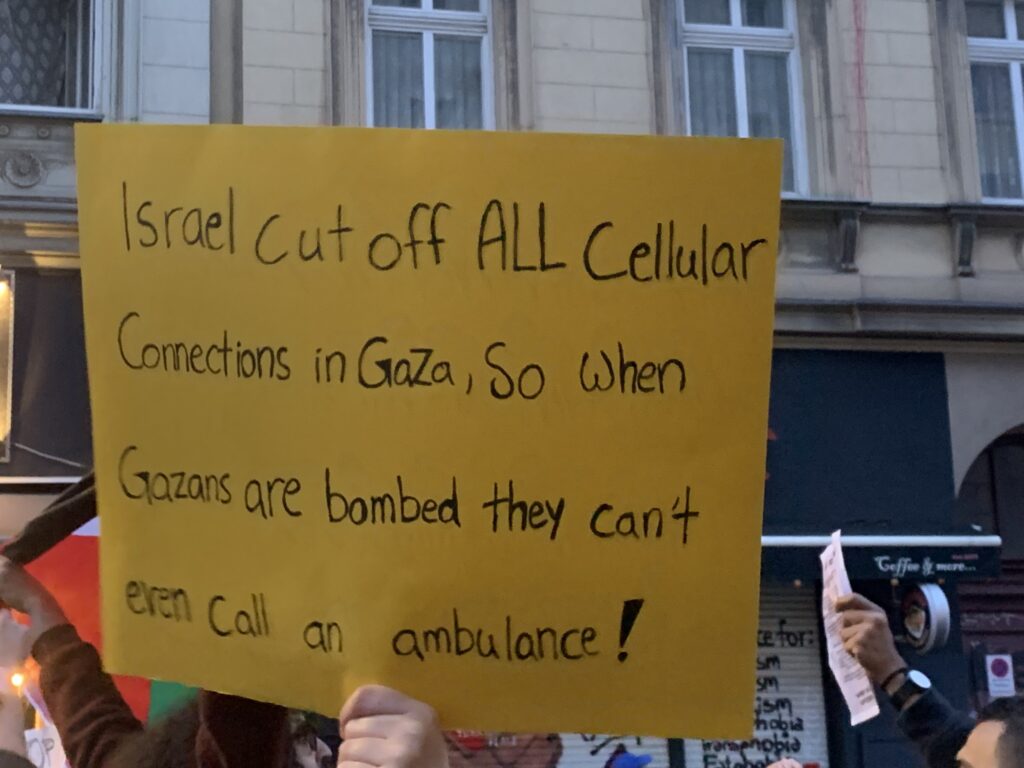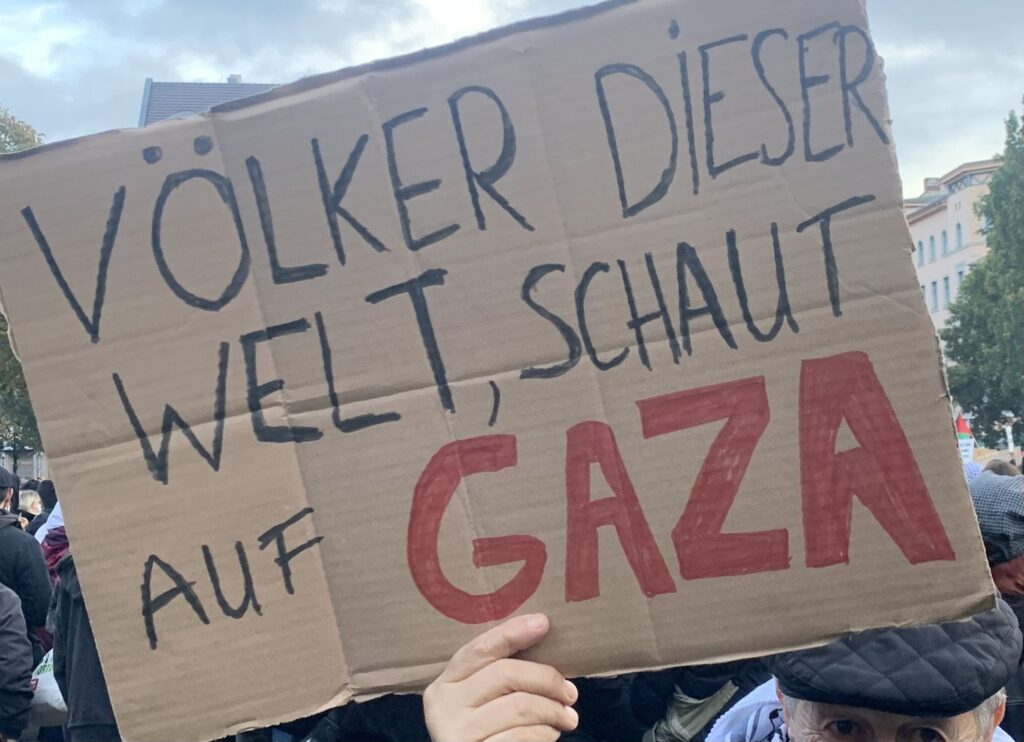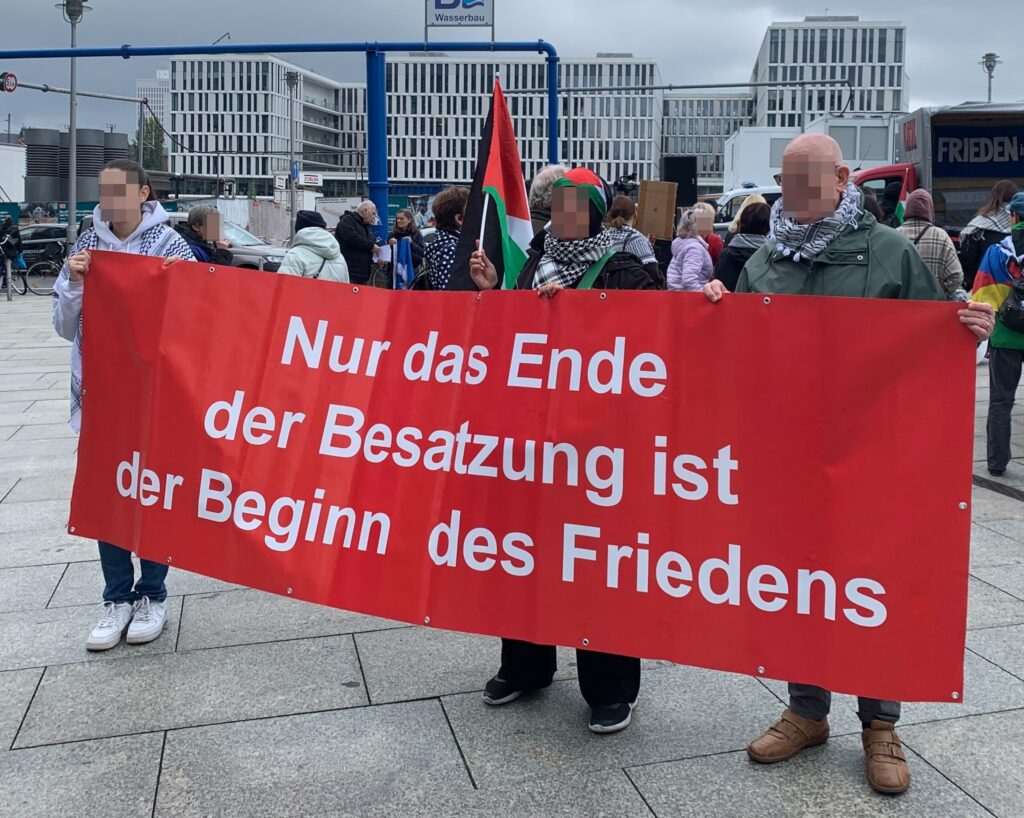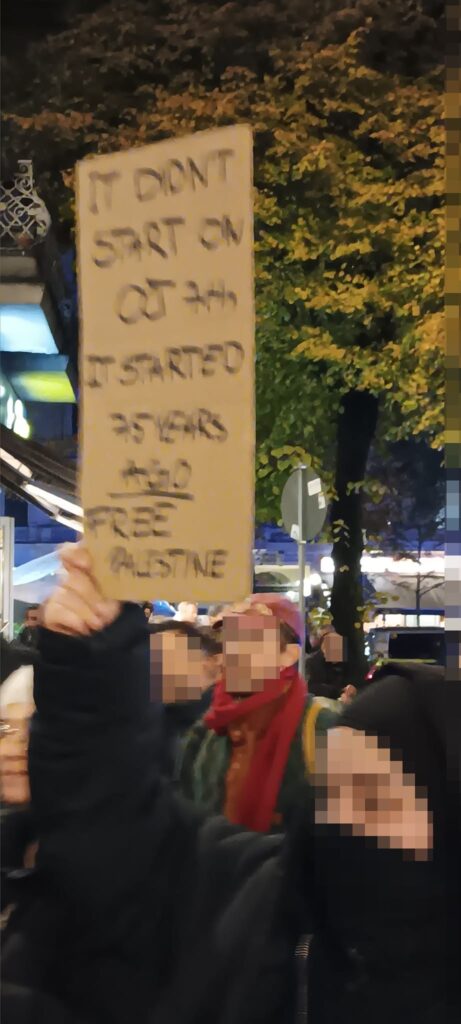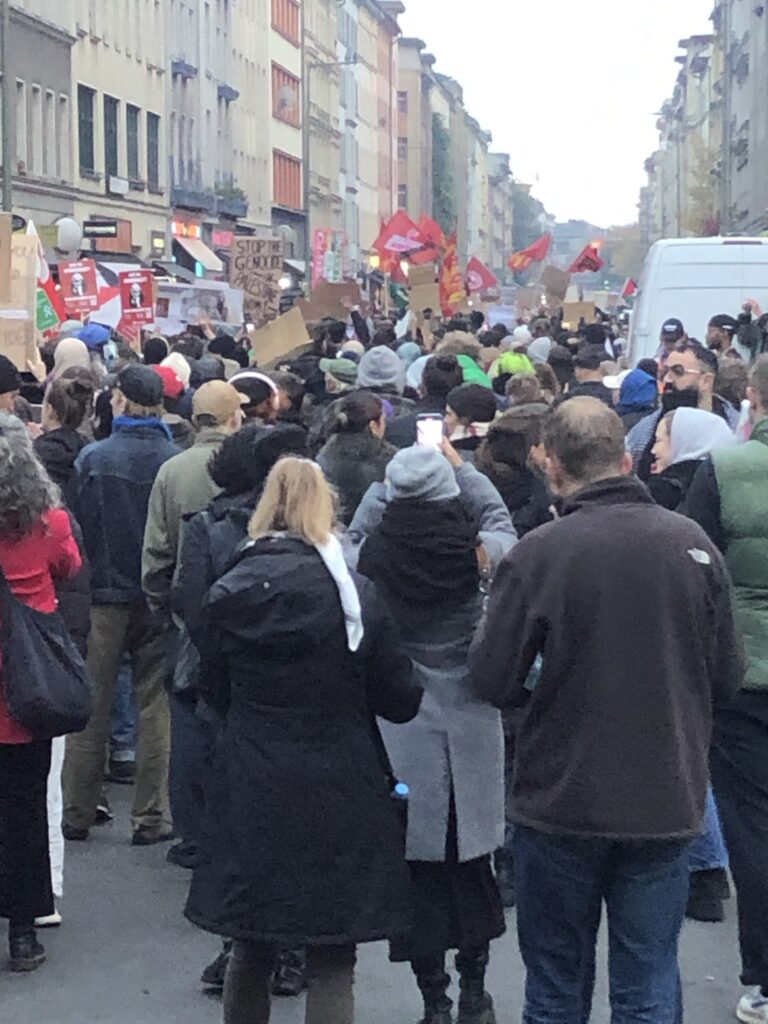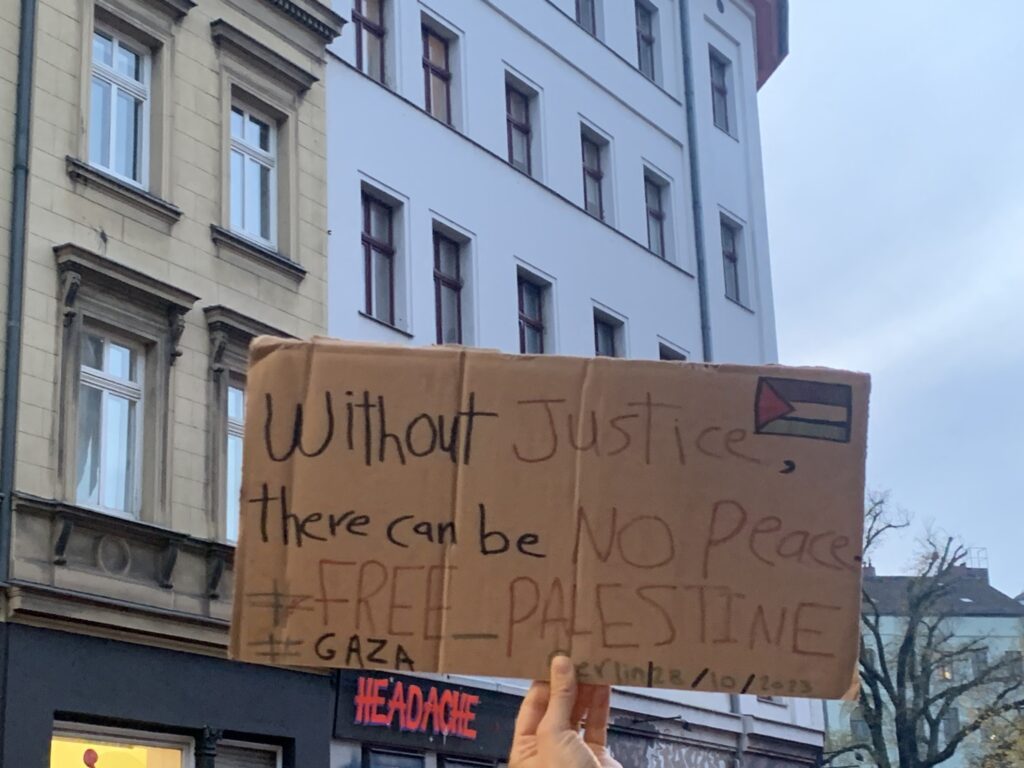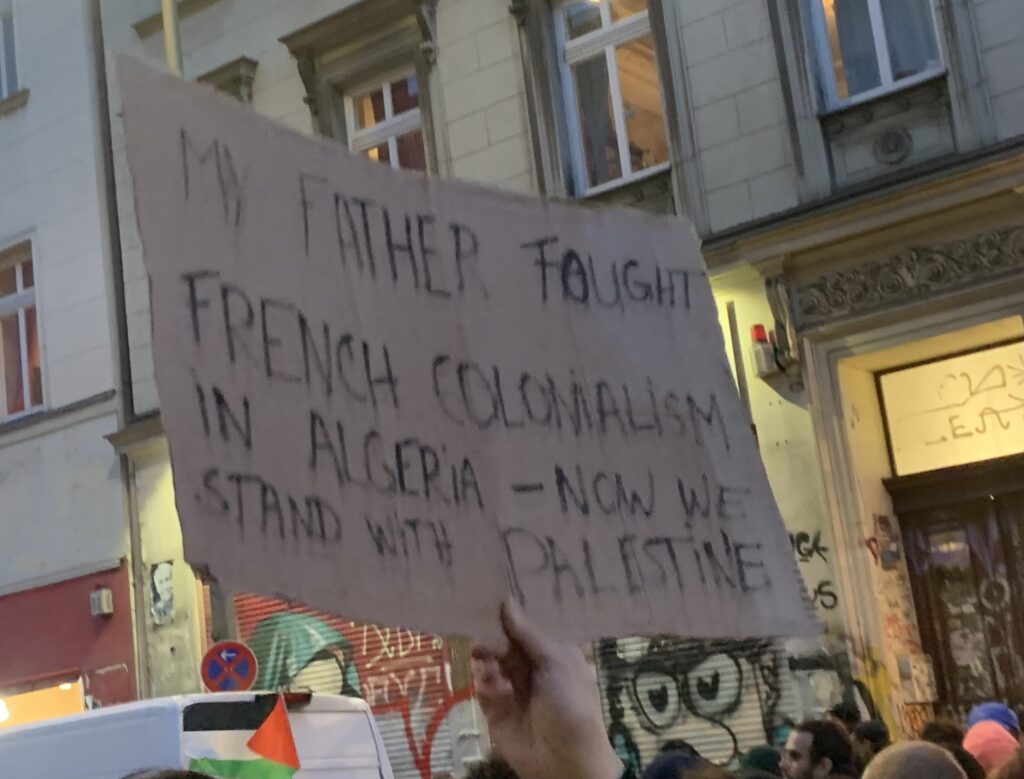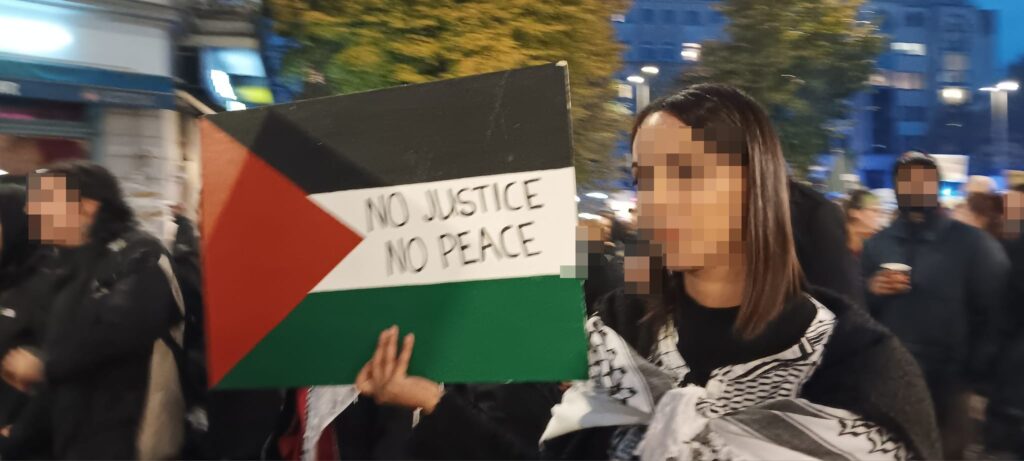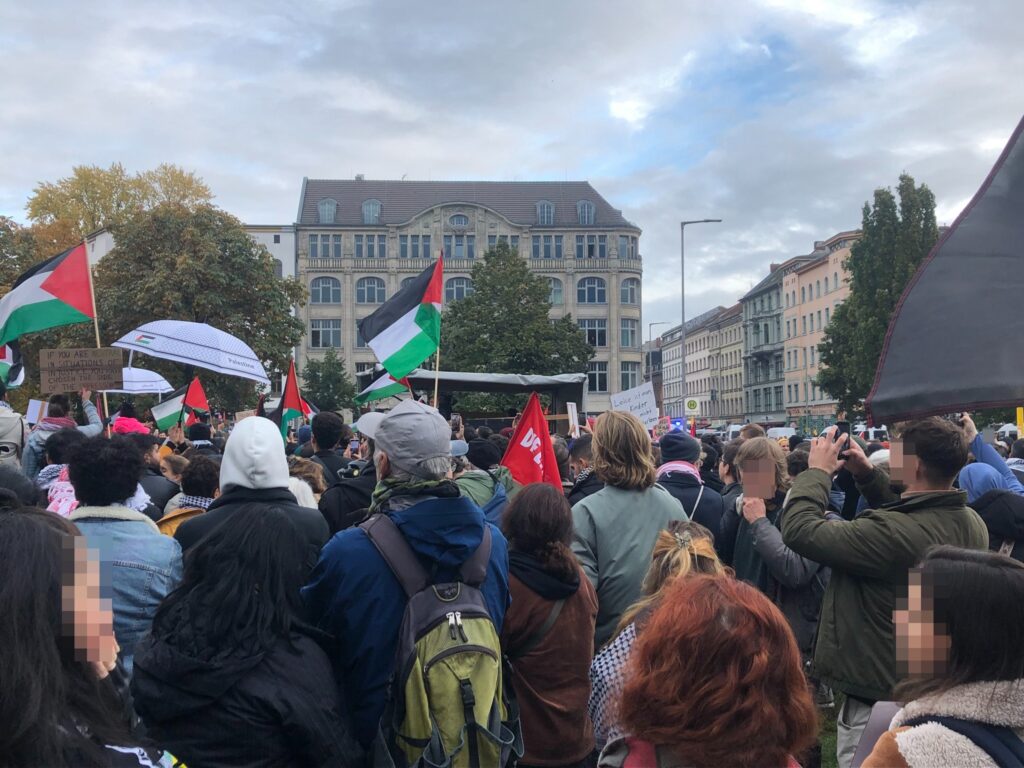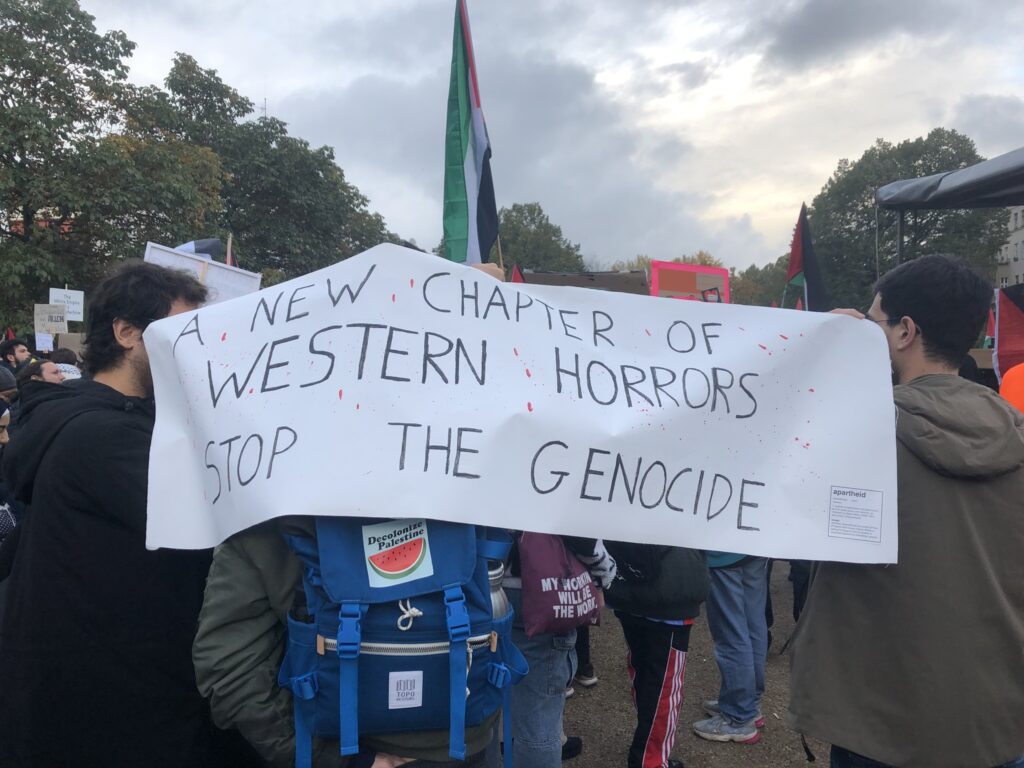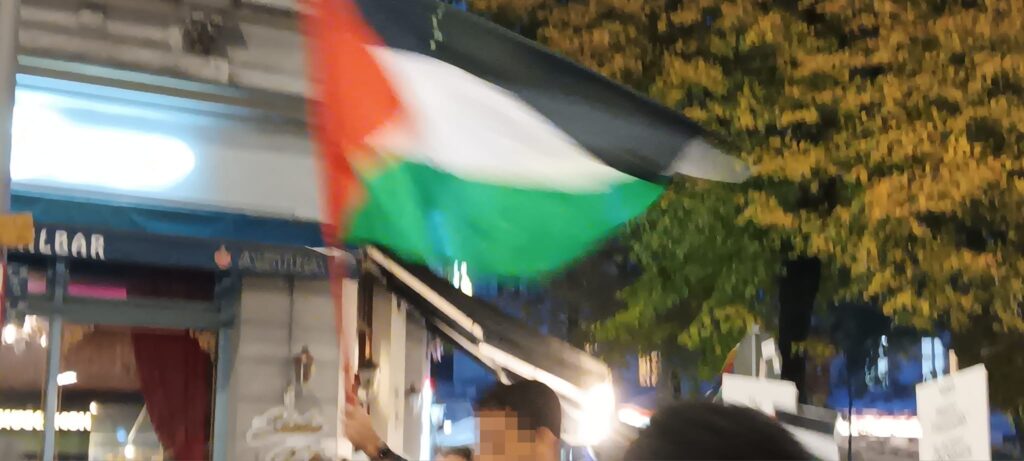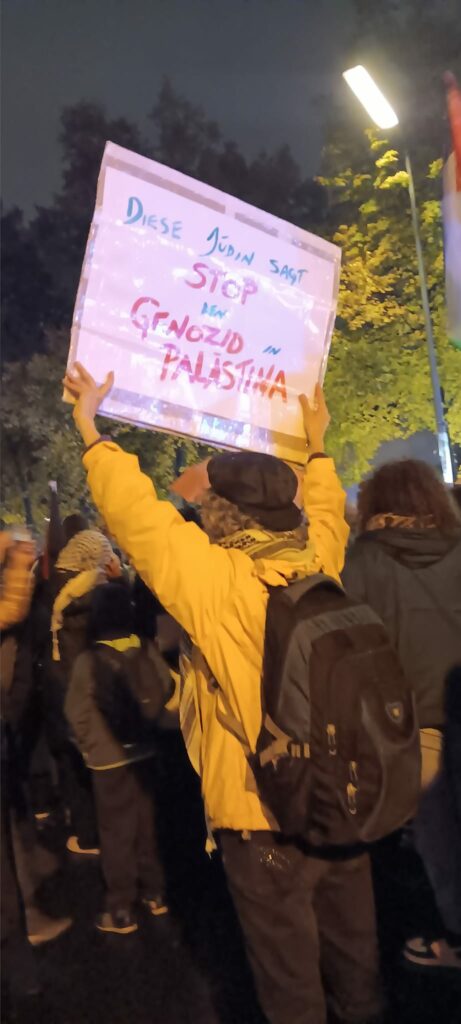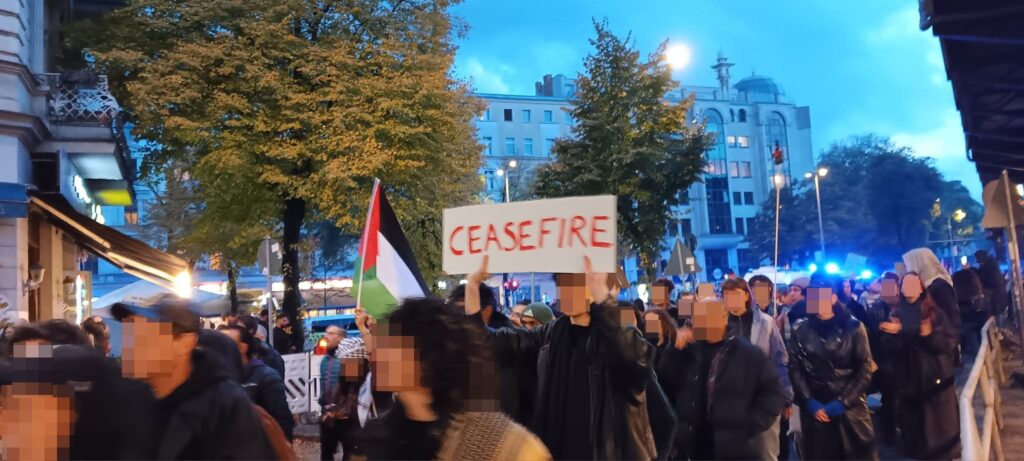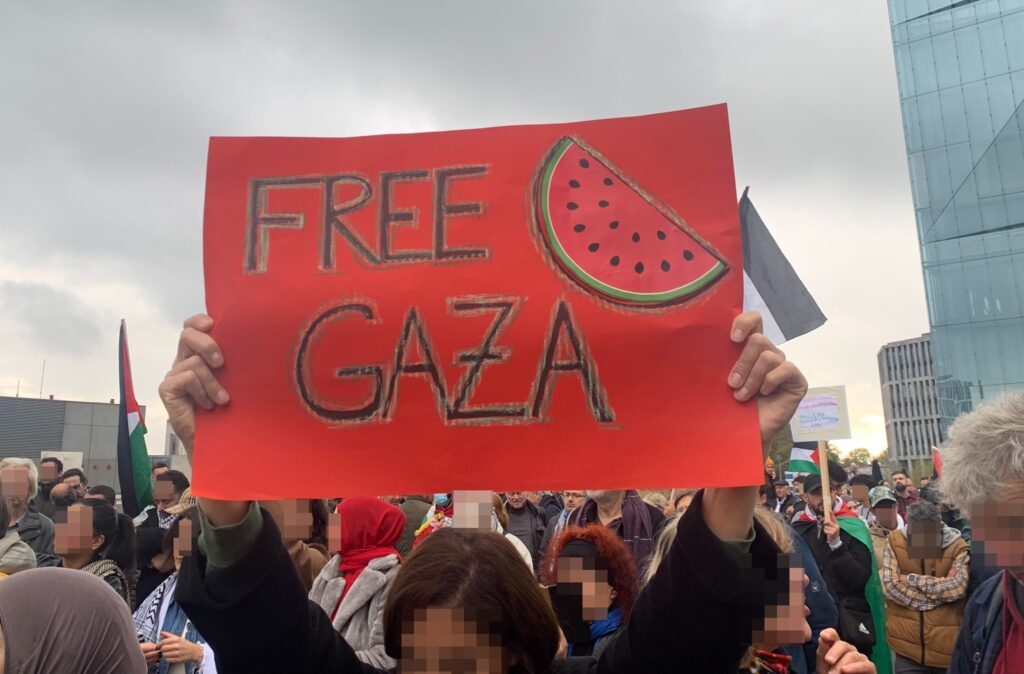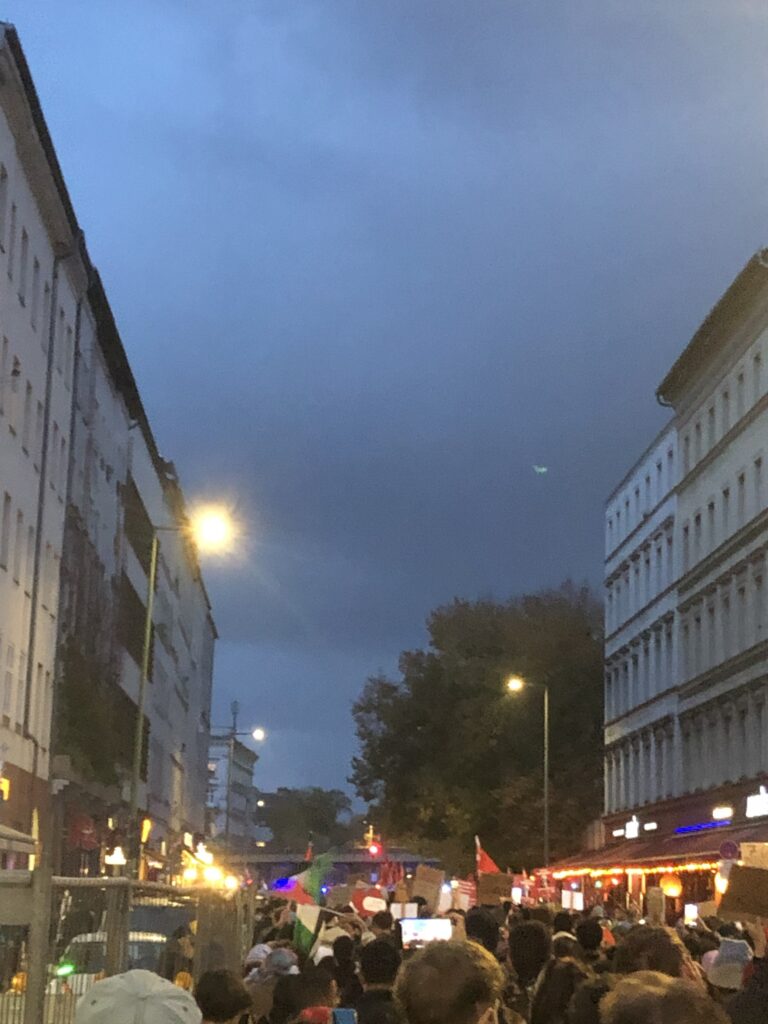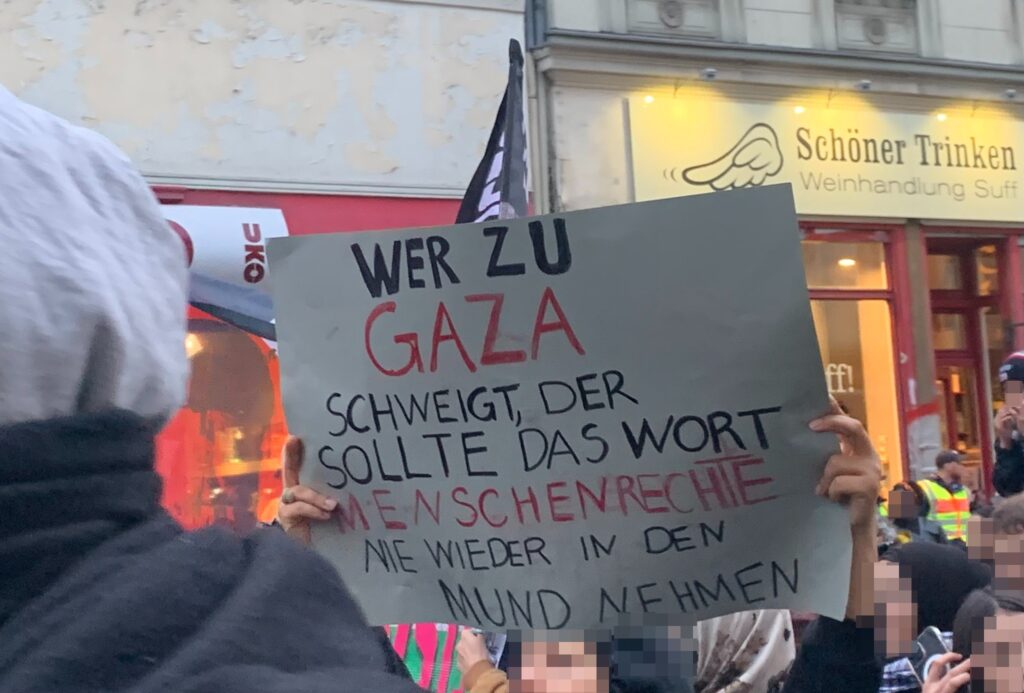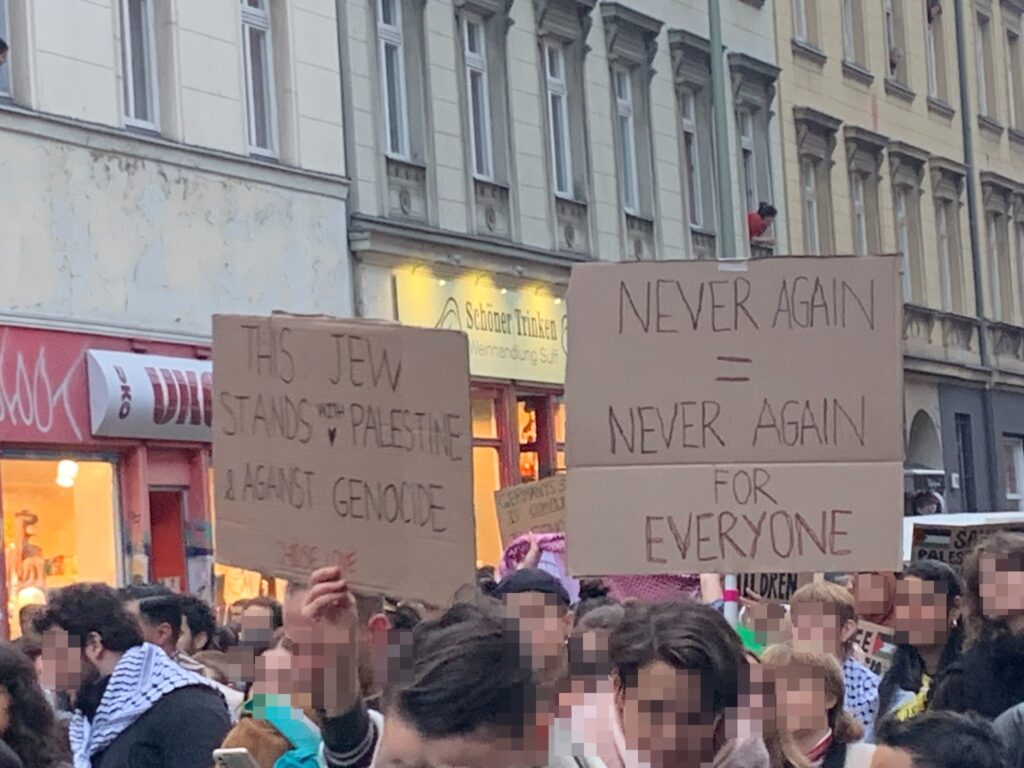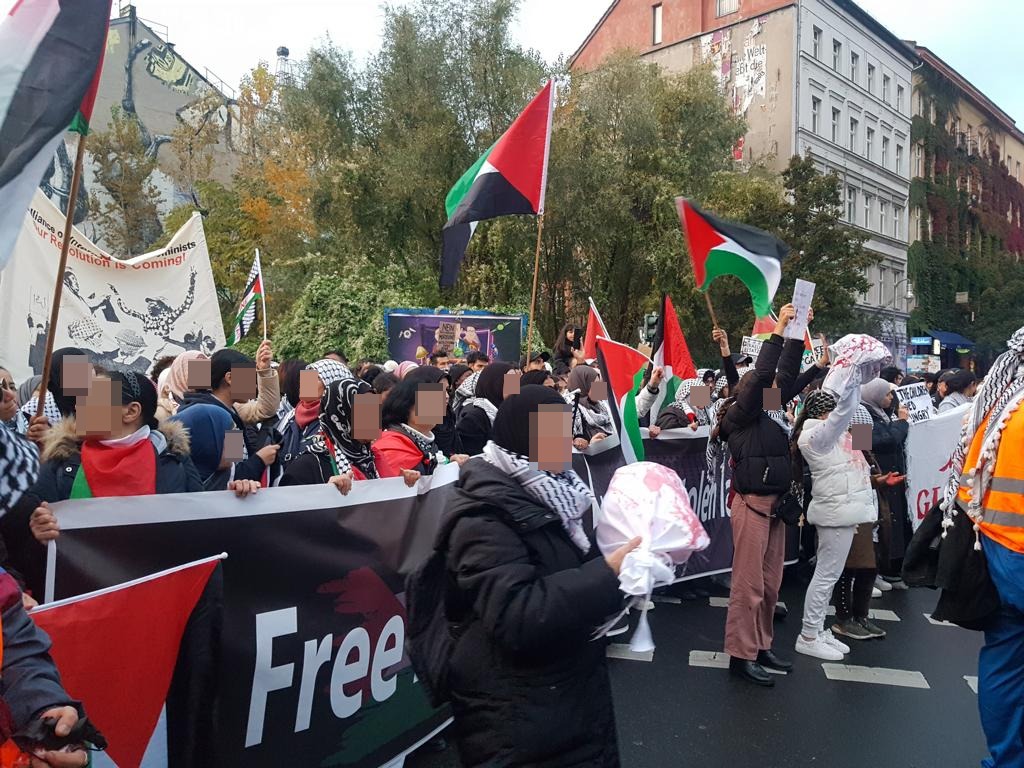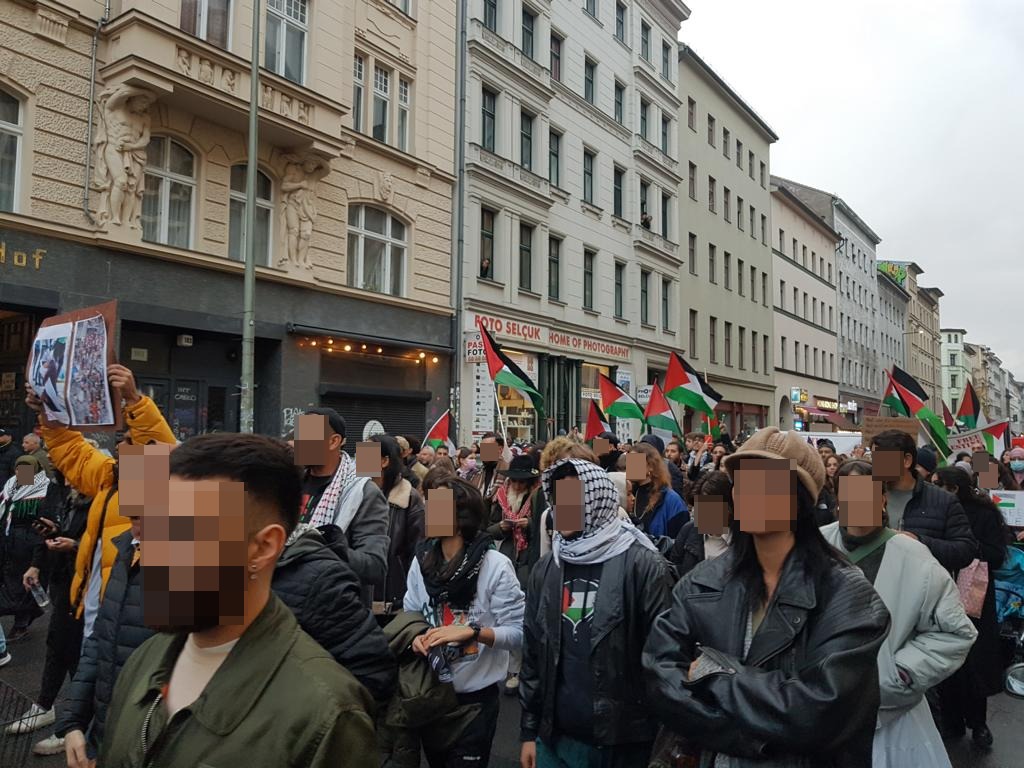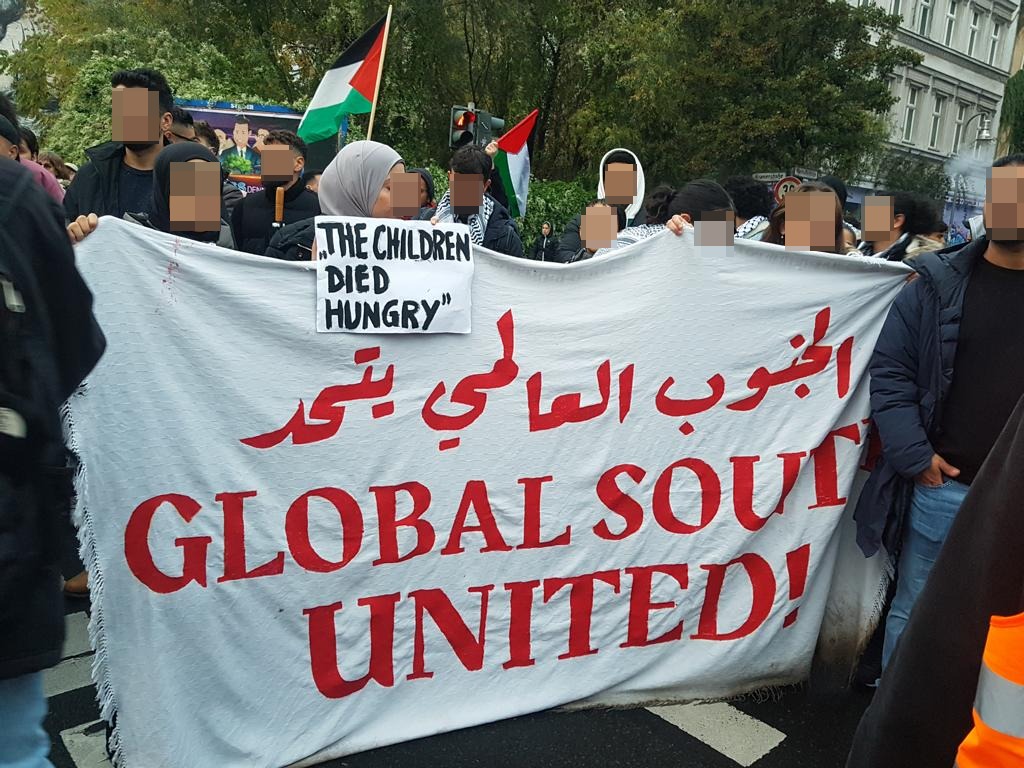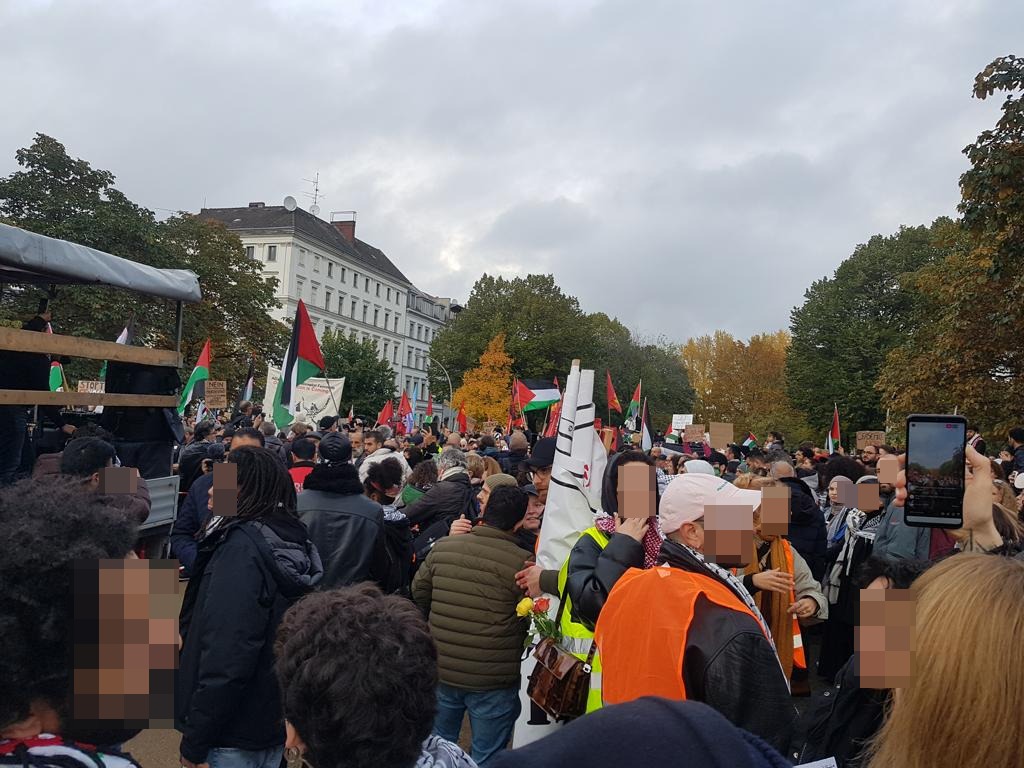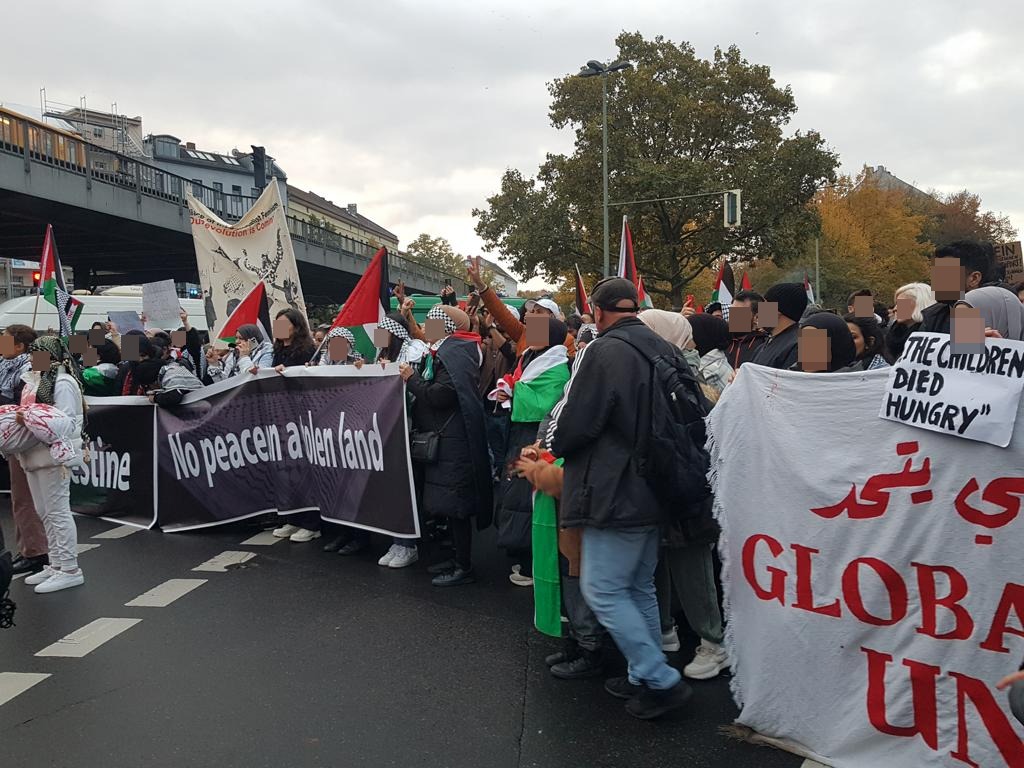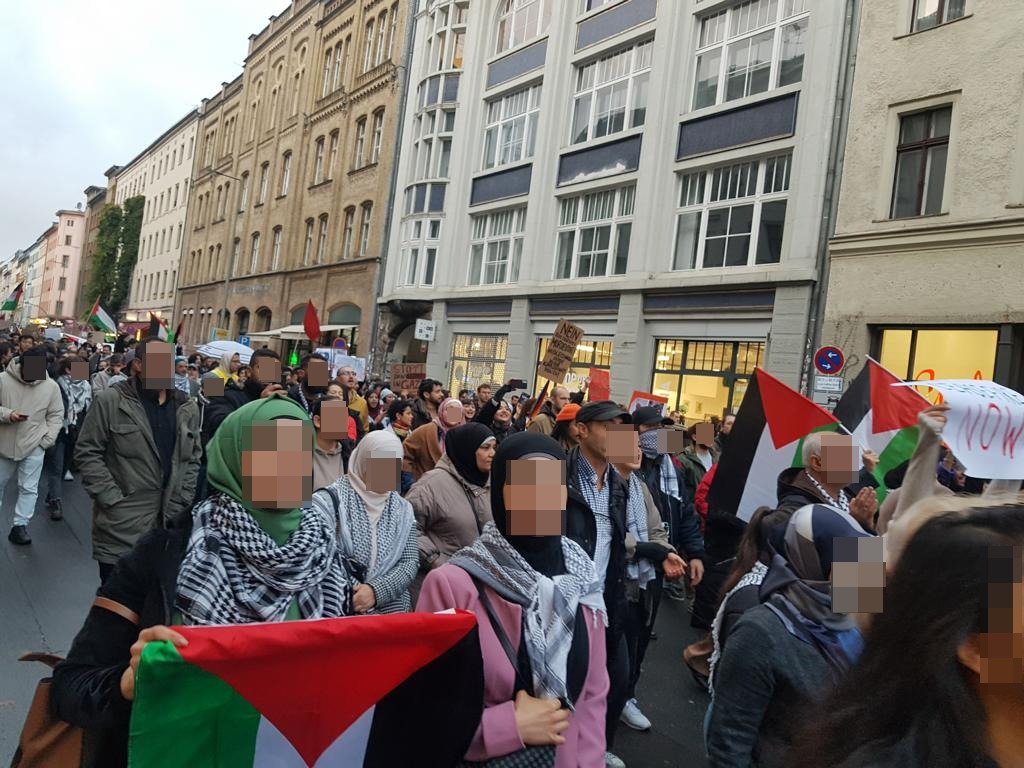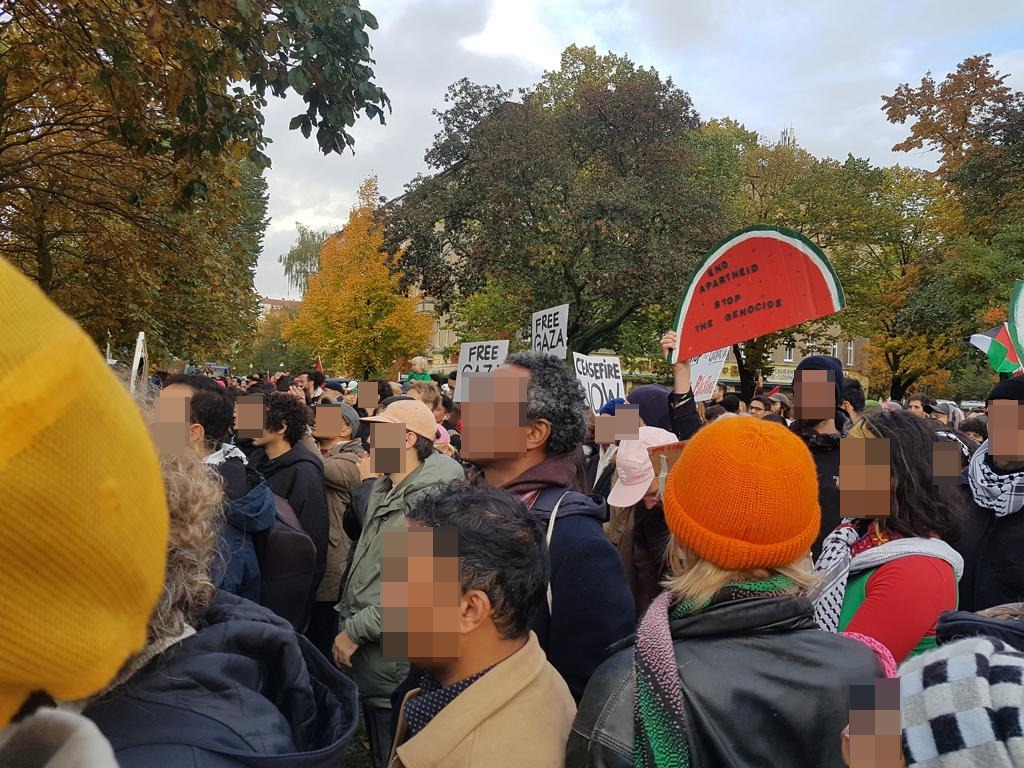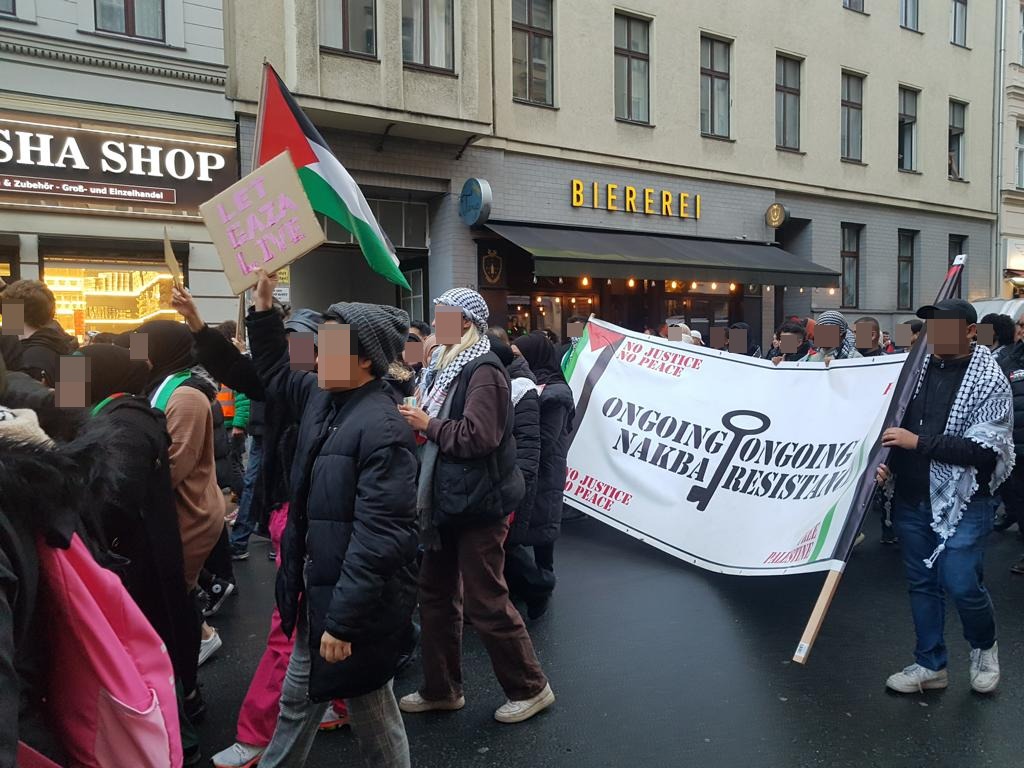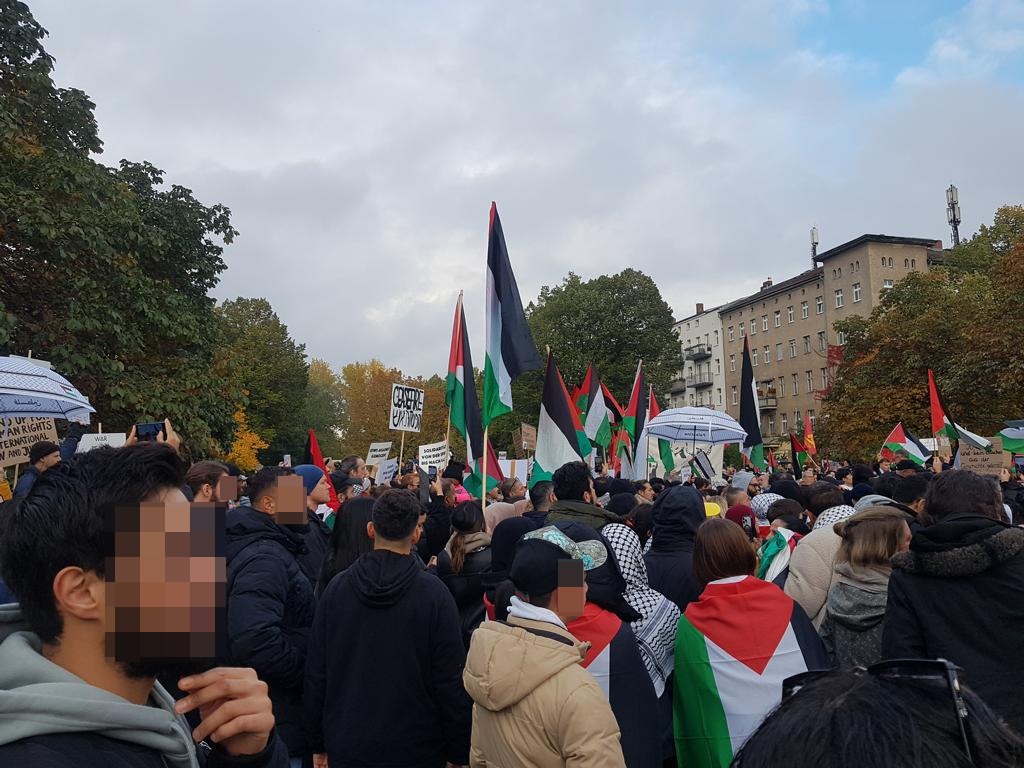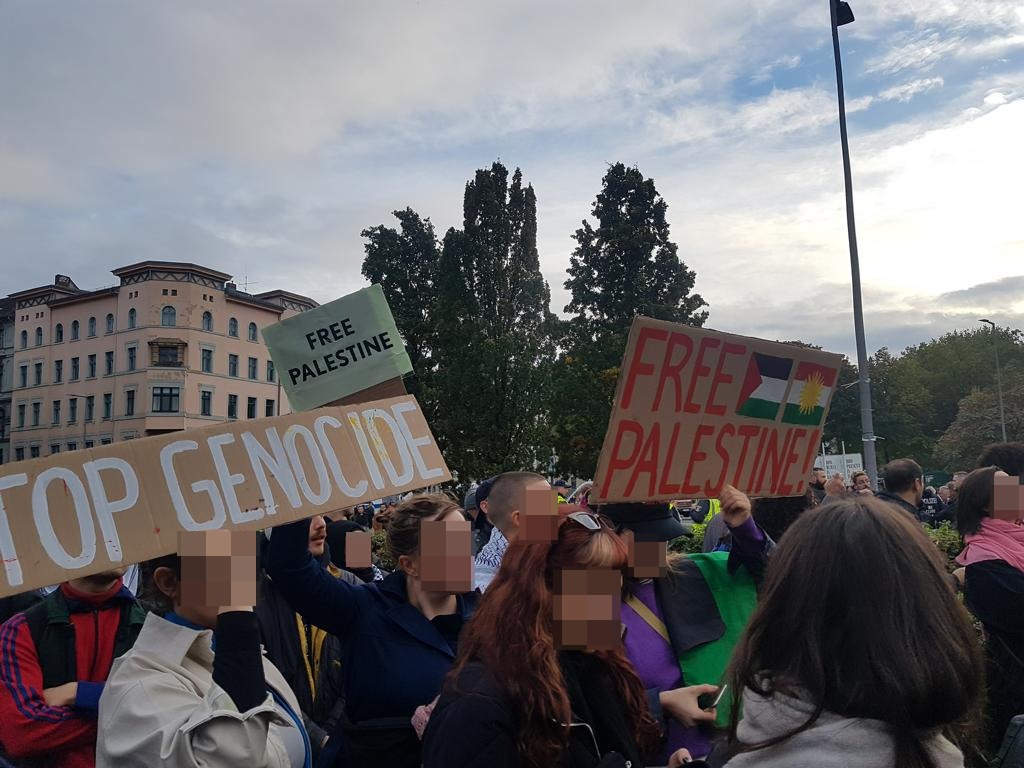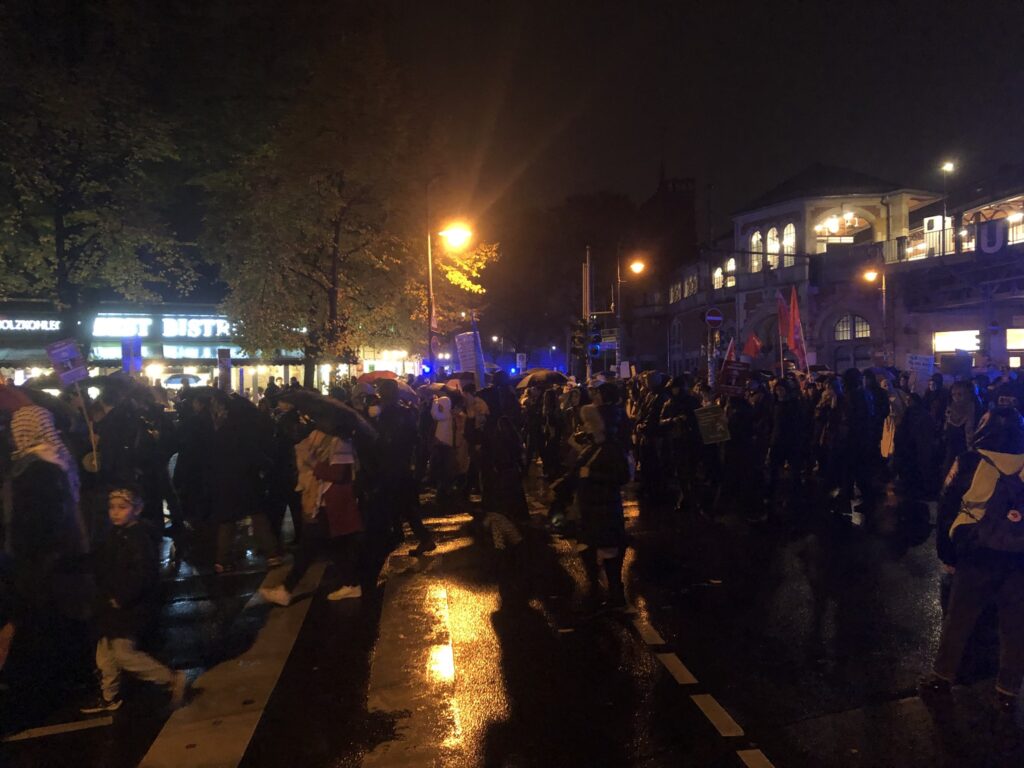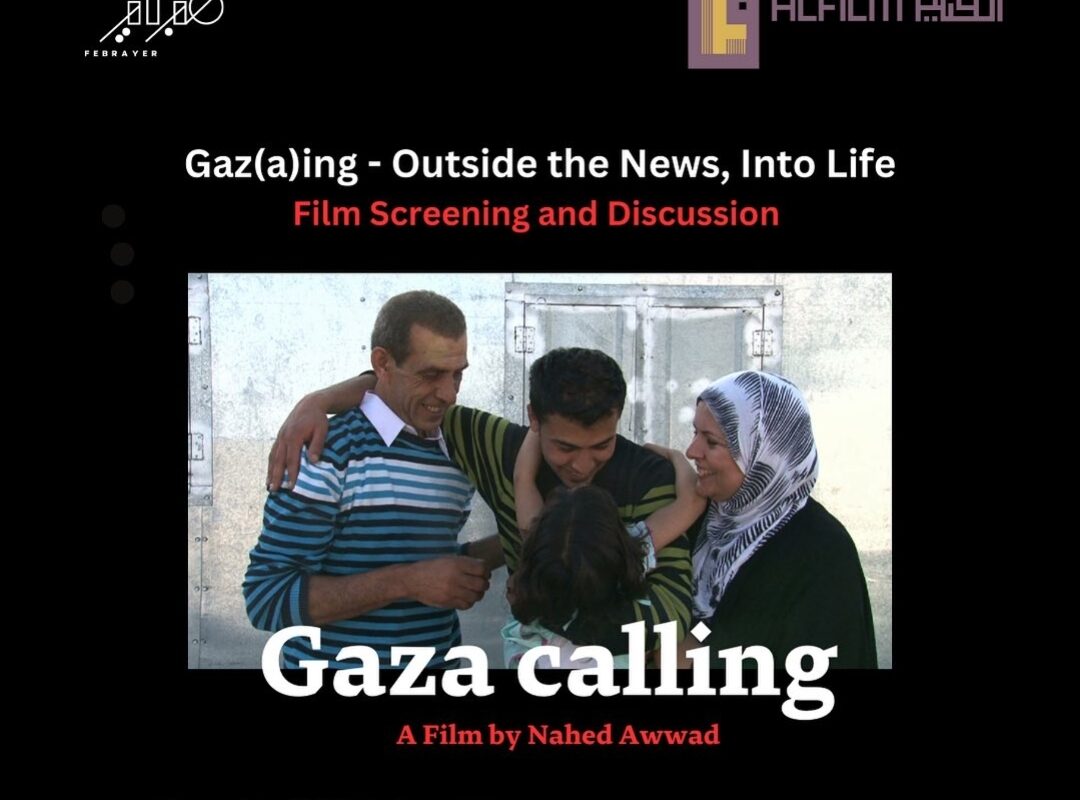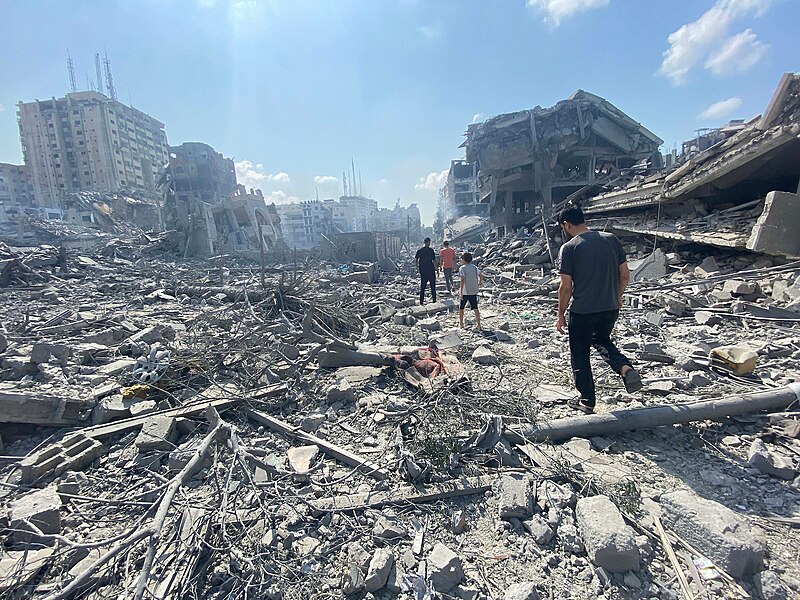To begin, can you please introduce yourself?
I’m Elisa Baş, I’m 22 years old and I’m a climate justice activist. I work primarily with Fridays For Future (FFF) and BIPOC for Future. My perception of climate justice is very influenced by anti-racism, anti-capitalism and anti-colonialism.
Your name has been in the media a lot the last week or so. Why is that?
There were various headlines about me. All of them were negative, such as “climate activist shocks with accusations against Jews.” Essentially, the Bild and other Springer media were trying to present me, as a FFF spokesperson, as ignoring Germany’s history and acting distastefully. The original article by Julian Loevenich appeared first in the Berliner Zeitung, then an hour later in Bild and within a day even spread to the Austrian Exxpress and more.
The reason was that I shared a critique in my Instagram story of Josef Schuster, the president of the Central Council of Jews in Germany. This critique was written by someone else, and I shared it in my story as someone else’s words, something which was clearly visible but has been falsely portrayed in every article about me. In a guest commentary for Bild, Schuster wrote “the barbarians are among us” and “something must happen.” The photo accompanying the article showed someone waving a Palestinian flag, so it was clearly referencing Palestine solidarity.
You’ve been a public face in German activism for a while now, are you surprised by these attacks?
I knew that at some point, it would hit me. I’m public, I’ve been a spokesperson for about one and a half years now. I’m a very good target, they can speak about me and use my face in their pictures to underline their narrative about “Islamic antisemitism.” In Germany, the level of islamophobia is incredibly high right now, and is connected to immigration and the ongoing refugee debate. So I was very suitable. But, I didn’t think they would use such bad journalism, with lies and things that are such clear constructions, like claiming I was comparing Josef Schuster to National Socialism. Even the Green Party has put me down, saying that my comments could not be surpassed in viciousness. They don’t know my work, that I speak up against every form of oppression, and have spoken out several times against antisemitism. It was just the perfect time to attack me, and so they looked into my story and tried to scandalize me talking about genocide and anti-racism.
This character assassination against my person is in fact directed against the entire climate justice movement, and against the movement for the basic rights of Palestinian people. Racism and incitement are being covered up; no one speaks about the use of the term “barbarian” right now, in the media, or in the articles written about me!
These smear campaigns are common against pro-Palestinian activists in Germany and elsewhere. It’ll often be one newspaper which writes the first article based on weak arguments like this. After that, there’s this avalanche, where there’s just so many articles that it no longer matters what’s actually being written. Preparing for this interview, I looked you up on Google news. It’s just all these horrible headlines, and, the sheer number of them practically proves the point to the reader. And I think that that’s often how these smear campaigns take place, especially against racialized activists.
So in terms of the attacks, can you break down the accusations against you?
We have to understand that there is a very fertile racist ground for the campaign against me in Germany with the narrative of “imported antisemitism,” or “Islamic antisemitism.” So take a person like me, who wears the hijab and is clearly Muslim, who does climate justice activism and dares to speak about anti-racism and white supremacy. And then I have an opinion on the so-called Israeli-Palestine conflict, which is different from the hegemonic opinion about it, and this also suits the narrative of “Islamic antisemitism.” So I was the perfect target for Bild, which is mostly read by right-wing and centrist people.
It was also claimed that I called for banned demonstrations or rallies, which is a lie. Every demonstration that I promoted was initially authorized by the police and allowed at the time I promoted them. If they were banned it was only several minutes before the rally and I had no way of knowing this at the time I posted.
My criticism of the racist term “barbarians,” which was used by Schuster, was construed as hostility towards Jews, which is an absurd perpetrator-victim reversal. The term barbarians has been used for centuries to racially dehumanize minorities, including here in Germany. Now it’s happening with Palestinians, and no daily newspaper or person, even if they’re Jewish, should be allowed to do that.
It was also partially because I used the word “pogrom.” Because Jews were murdered in pogroms during Nazi times, Loevenich claimed I was comparing the president of the Central Council of Jews to National Socialists, or specifically, putting him “in the vicinity of National Socialists.”
To be clear, a pogram is preceded by a pogrom mood or atmosphere. The comment I shared on Instagram spoke about a pogrom atmosphere that can be fueled, and thus could develop into a pogrom. Pogroms also have a historical connection to antisemitism, of course, but a pogrom mood is not limited to National Socialism. The term is much older and is still used today in a wide variety of contexts. Even the Duden dictionary, and the Federal Agency for Civic Education see pogroms as violent actions and riots against ethnic, national, religious minorities or political groups. The Israeli newspaper Haaretz described the settler attack on the Palestinian village of Huwara as a pogrom, for example. In the German context, even the pro-Israeli Anne Frank Educational Centre refers to the racist attacks of Hoyerswerda and Rostock-Lichtenhagen on migrants as pogroms. So it is perfectly possible that pogroms will take place again in Germany.
It is clear what is being attempted with this reinterpretation of the term. They want to blur the racism and silence the critical voices. A whole identity is scandalized, national symbols are banned, children are no longer allowed to wear their identity to school, like traditional Palestinian tatreez clothing. When everything Palestinian is equated with antisemitism, Palestinians are placed under general suspicion, this is incitement to pogroms. The consequences of this can be seen in Germany’s wide attacks on Palestinian identity, the police violence and the restriction of basic democratic rights of freedom of expression and assembly. I cannot and will not remain silent in the face of such an injustice. Raising my voice to end the occupation is not disturbing the public peace, it is maintaining it.
What would very clearly disturb the public’s peace would be collective attacks on Jewish people, communities and public institutions, for the actions of the Israeli state. This is clearly antisemitic, through the conflation of the Jewish people with the state of Israel. The throwing of molotov cocktails at synagogues or the drawing of Stars of David on homes is violence against Jewish life and must be rejected and condemned. Of course, justice in Gaza will not come when Jewish people are attacked, it will come with an end to the occupation.
There’s also your use of the term genocide, which has been criticized.
The term genocide is used by leading scholars to describe the systematic siege and area bombardment of Gaza. The Israeli Holocaust and genocide scholar Raz Segal called it textbook genocide, because the genocide of Gaza was openly announced by Israeli army mouthpieces. Palestinian people were described as animals who would be and have been cut off from water, food, electricity and fuel.
Even before the current war in Gaza, the UN declared Gaza was not fit to survive. 97% of the water was contaminated. The daily import of calories was limited and half of the children show no will to live. Over 90% of the children suffer from PTSD. This is clearly not a war against Hamas, but a war against all civilians in Gaza. We cannot remain silent when 2.3 million people are collectively condemned to genocide. And speaking the truth about it is a human duty in the face of such crimes.
Let’s move on to the wider context, what role does racism play here in Germany, for you as an anti-colonial activist?
There was a study in 2022 about racism in Germany, which showed that racist knowledge and ideas are deeply rooted in this society. 49% of respondents even believed that biological human races exist. Half of the people in Germany! Even though this has long been scientifically disproven, and this lack of scientific grounds is taught in schools. There’s also a strong increase in support for right-wing extremist positions, which is now at 6.3% compared to the previous year’s results which were just under 2% or 3%. This right-wing extremist self-image is now quite confidently presented in public. This is happening as the basics of life, like having shelter or something to eat, are becoming harder to guarantee. And around a third of those surveyed also believe that refugees only come to Germany to exploit the social system, which is fueled by almost all of the political parties. Olaf Scholtz has even recently announced in Der Spiegel that Germany must finally deport on a grand scale those who have no right to stay in Germany.
Talking about what it has to do with me as an anti-colonial activist, I think it’s important to speak about things as they are. It doesn’t help to cover things up, like the climate justice movement has done for a long time, instead of acknowledging that it is impossible to combat the climate crisis within this capitalist system of oppression. So as a climate justice movement, we recognize that the climate crisis has its origins in capitalist colonial structures. It would then be a perversion of the climate justice struggle itself, not to stand in solidarity with the colonized Palestinians. Within FFF International though, the German chapter has a special role. FFF Germany has a history of refusing to show Palestinian solidarity, despite international pressure from other FFF groups. While Greta Thunberg and other groups have in recent days reached the logical conclusion of solidarity with the Palestinians, this risks damaging the prestigious reputation which FFF Germany has in this country, a reputation they are not willing to risk.
You’ve mentioned how pogrom is a historical term, and the striking counterexample of Raz Segal’s use of the word genocide. But a major difference is that he’s in the US, and you’re in Germany. Even I find it difficult to engage these debates in Germany in conversations, nevermind newspaper headlines. I often even find myself having to almost tokenize the fact that I’m Jewish and am a descendent of people who died in Auschwitz, to be able to even put my position forward. How do you see Germany’s memory culture from your perspective?
Germany’s remembrance culture is simply focused on having good ties with Israel. Seeing Israel as a Jewish collective which must be saved, through protecting Israel the remembrance culture of Germany is effective. They measure the outcome, the success of the remembrance, by considering Germany’s diplomatic ties and support for the Israeli state and everything it does. And it is also indifferent which Israeli government is there, whether they are fascists or not. It’s really ironic, because we try to have remembrance around our fascist history, so we support fascists today because we remember and condemn our history of fascism. I don’t know what else I can say to such a weird approach to remembrance. It also only remembers one aspect of the genocide, while ignoring people from the LGBTQ+ community, Roma and Sinti people, and other marginalized people who died.
I would add, there’s a very obvious tokenization of not just Jews, but even Israel as a representative of Jews. This tokenization of the Israeli state leads to what you pointed out about the contradictions of Germany’s support for fascism in Israel. And I think there’s so many people, including both of us, who get erased in this narrative.
You’re totally right and I want to say that “Never Again” is right now legitimating a genocide against the Palestinians. This is a very narrow-sighted view on remembrance culture. Because as you said, the remembrance culture is limited to Israel, including through the German Staatsräson. This allows them to feel like they’re purged of their guilt, and have purified and reformed a new idea of Germany. This capitalist and imperial form will not be able to have a radical shift in its ties with Israel, when it defines the memory culture as it currently does. It also requires a radical shift in society to expand to all people, and to understand that it should be about Jewish people and other groups that were affected, rather than a state. But pointing to the state of Israel is easier for Germany than actually dealing with antisemitism, work which is not actually happening.
If it was happening then the Corona demonstors would not have been allowed to wear the Star of David trivializing and downplaying the Holocaust. But German media couldn’t have such a racist debate as is currently happening, because these were white Germans, and so there was no debate about deporting them. There was no racists grounds for these criticisms to flourish on. Likewise with the clearly antisemitic conspiracy theories about the planned nature of the COVID pandemic, but again there was no scandal. It has become obvious that it’s not about antisemitism itself. Remember that the police said they couldn’t ban the Corona protestors, because they could not anticipate that people would commit crimes, since we are in a democratic state. They said they had to let things happen, and then they could ban. And right now, I mean we’re both laughing because we know that there’s no similar explanation right now, but instead on solely racist grounds pro-Palestinian demonstrations are repeatedly banned before they even start.
I feel like all these points you’re raising, whether we’re talking about false antisemitism accusations, or supposed “Islamic antisemitism,” calling people “barbarians,” or these Corona protestors with the Stars of David, there’s a clear line running through all of these. This is the refusal to consider either colonized perspectives, or really anything outside of the German narrative.
To add to that, Germany consistently disregards the historical responsibility it bears for the overall situation in Israel and Palestine. Not only in Israel and towards the Jewish people, but also how the Holocaust was used to justify the dispossession and disenfranchisement of the Palestinian people for decades, as Israeli historian and socialist activist Ilan Pappé has pointed out. Germany categorically disregards this and refuses to take historical responsibility towards the Palestinian people, due to the role the Holocaust had in causing the Nakba, as Jewish people were fleeing for safety.
One last point I’d like to touch on after this last week. We’ve seen racist comments being put forward so openly, and comments such as your twisted so easily. From a strategic perspective, how do you think we on the left can do a better job communicating directly to people and getting our anti-racist message across?
I think it’s very important to make clear that we also have a colonial past in Germany, and we also used terms such as barbaric to legitimize colonization, just like Great Britain and France. The current discourse is very much based on racist and colonial grounds, even if people think colonialism is something of the past. About Palestine, I think we have to push forward with anti-racist and humanitarian groups who need to take responsibility for what is happening. Clearly this would be difficult in the German context, where we’ve seen the apartheid reports about Israel being delayed in translation and so on. So I think right now is the time to speak into their response and responsibility. For example, Amnesty is now taking baby steps towards speaking about the repression of democratic rights. So maybe this is a first step in the right direction, although I know that the bar is very low. But we have to talk about Palestine in the context of anti-racism and anti-colonialism, and make clear that being pro-Palestinian is a logical consequence of these struggles. Central personalities and ideas that gained prominence in Germany during the course of the racism debates through the Black Lives Matter movement in 2020, could also act as catalysts for linking the anti-racist struggle and the struggle for the liberation of Palestine.
